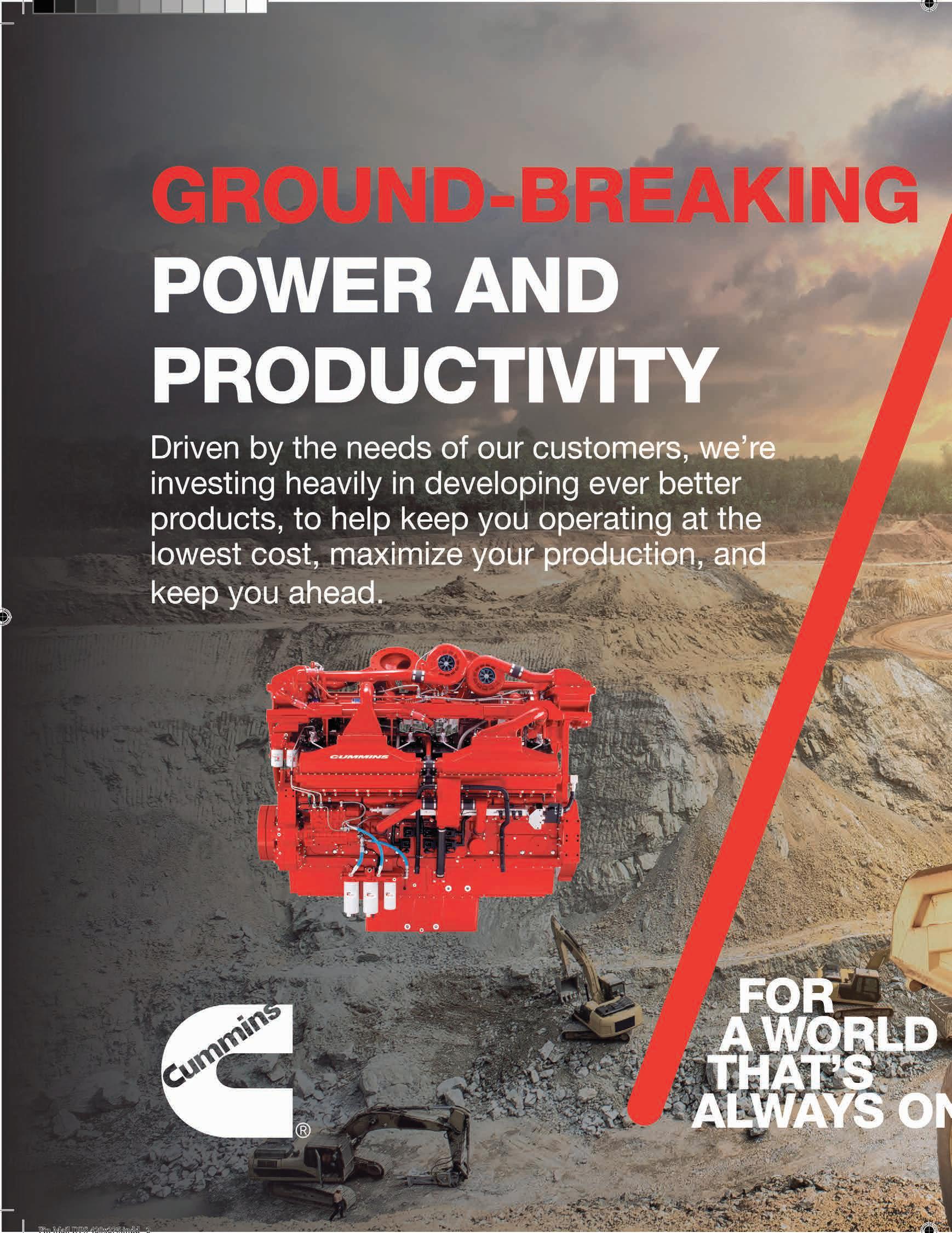


















































































JAGUAR TCS RACING is pioneering a transformative shift towards greater representation of women in the motorsport industry, which has traditionally been dominated by men
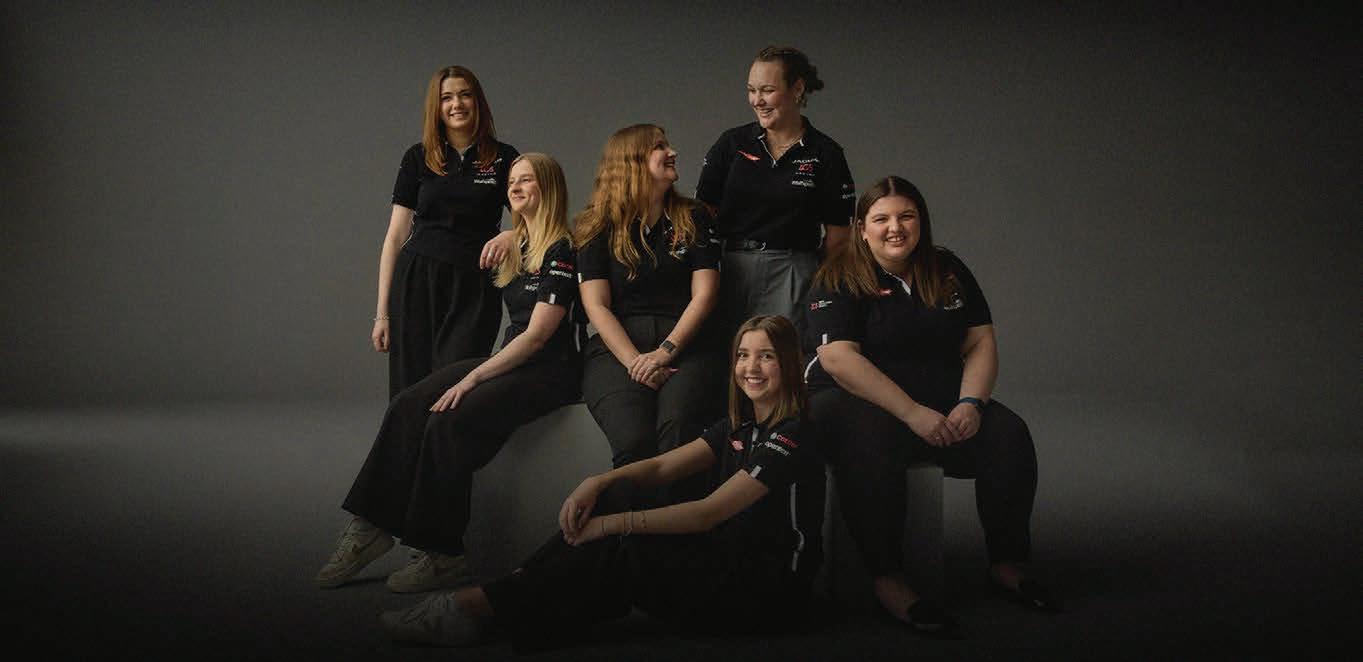
Through its Race to Inspire mission, Jaguar TCS Racing is committed to inspiring the future generation by using the race programme to create a positive impact on the planet and the communities where it races. From competing in the world’s rst net-carbon race car to supporting and training the next generation of engineers and motorsport professionals, Jaguar demonstrates its dedication to progressing women empowerment.
The Race to Inspire initiative goes beyond mere representation; it aims to create tangible pathways for young individuals to enter and thrive in the industry. The team is dedicated to promoting diversity and inclusion with a keen focus on inspiring women to pursue careers in motorsport and STEM (science, technology, engineering and mathematics) elds.
BY HIGHLIGHTING THE ROLES AND ACHIEVEMENTS OF WOMEN WITHIN ITS TEAM, JAGUAR TCS RACING IS HELPING TO DISMANTLE BARRIERS, BREAK GLASS CEILINGS AND CREATE A MORE INCLUSIVE AND DYNAMIC FUTURE FOR THE INDUSTRY.
Jaguar TCS Racing’s efforts are complemented by strategic programmes that target gender equality and educational outreach. Collaborations with educational institutions and community programmes aim to foster interest in STEM elds among young girls.
Internships, mentorship programmes and hands-on training
opportunities are also key components of its approach, ensuring that the next generation is well-equipped to enter the motorsport industry.
Ellie Spruce, partnerships account manager, underscores Jaguar’s role in promoting gender diversity in motorsport: “I believe there is room for more females to come into motorsport. Jaguar, especially, plays a big role in that with its Race to Inspire Initiative.”
According to Camilla Macliver, events executive for the team, the commercial team currently comprises 60 per cent women, this balanced representation underscores the team’s commitment to inclusivity.
Through its proactive efforts, Jaguar TCS Racing is not only championing gender diversity within its team, but also paving the way for future generations of women in motorsport. By highlighting the roles
and achievements of women within its team, Jaguar TCS Racing is helping to dismantle barriers, break glass ceilings and create a more inclusive and dynamic future for the industry.
Sara Morrow, head of motorsport business operations, says: “When I
helped establish Jaguar TCS Racing in 2016, I was the only woman in our small team. Today, I’m incredibly proud that we have numerous talented women in various roles, each contributing signi cantly to our success. It can sometimes feel like
Jaguar returned to racing in October 2016, becoming the first luxury manufacturer to join the all-electric ABB FIA Formula E Championship street racing series.
In the 2023 ABB FIA Formula E World Championship, Jaguar TCS Racing finished as runner-up with 292 points – the team’s biggest points haul in Formula E.
Mitch Evans finished third in the 2023 Drivers’ World Championship with 197 points, his biggest points score in Formula E. He continues to compete for the team in 2024. Nick Cassidy joins the team’s driver line-up for the 2024 season of the ABB FIA Formula E World Championship.
The 2023 season saw all teams race with the Gen3 car, the world’s first net-zero race car. Jaguar TCS Racing continues to race with the Jaguar I-TYPE 6 in 2024.
Beyond its all-electric concept, Formula E is unique in the world of motorsport for its choice of venues. The 2024 world championship will take place on existing tracks and temporary street circuits in the centre of the world’s major cities, including Mexico City, Diriyah and Monaco, with new locations including Tokyo and Shanghai. The season finale will play out across a double-header race weekend in London.
As an official manufacturer team in Formula E, Jaguar TCS Racing designs its own powertrain, which includes the motor, transmission, inverter and rear suspension. Jaguar, via its long-term Formula E technical partner Fortescue WAE, will supply Envision Racing with its powertrain for the Gen3 era.
To control costs, the carbon-fibre chassis and battery are common components and the same for all 11 teams. This allows the focus to be on developing efficient and lightweight electric vehicle powertrains that will improve the performance and range of future Jaguar Land Rover (JLR) electric vehicles.
Formula E remains a key priority for JLR and the company’s Reimagine strategy. As the premier all-electric world championship, Formula E allows the team to test and develop new electric vehicle technologies in a high-performance environment. It continues to be the test bed for the team’s Race to Innovate mission that will see Race to Road and Road to Race learnings to help shape the electric future – a future that Jaguar is passionate about and dedicated to for the benefit of society, the changing landscape of mobility, sustainability and its clients.
Tata Consultancy Services (TCS) is an IT services, consulting and business solutions organisation that has been digitally transforming many of the world’s largest businesses for over 55 years. A long-standing strategic technology partner of Jaguar Land Rover, TCS leverages critical and emerging technology to help the race team accelerate its electrification journey, win races and create a more sustainable future. TCS works to build better futures and uses learnings from the racetrack to transform the mobility ecosystem. A part of the Tata Group, TCS has over 603 000 consultants worldwide.

a male-dominated world, both in motorsport and in leadership.”
Increasing the visibility of women in key roles plays a signi cant role in inspiring future generations. Lais Campelo, a software and data engineer at Jaguar TCS Racing, emphasises: “Representation is important. If young people, especially girls, see women like me and others on the team talking about our work, they can picture themselves doing our jobs.”
By showcasing the roles and achievements of women within their team, Jaguar TCS Racing is not only changing the face of motorsport today, but also inspiring the engineers, drivers, and leaders of tomorrow.


JAGUAR SOUTH AFRICA celebrates women empowerment and creativity by amplifying the #GiveHerACrown platform through art and storytelling. It showcased the work of six South African women creatives at a #GiveHerACrown event at the South African Consulate in New York

Jaguar South Africa displayed the exquisite artistry of six women from the 2023 #GiveHerACrown campaign at an event at the South African Consulate in New York. Launched in 2020, The #GiveHerACrown empowerment platform uses storytelling and the arts to ght for gender equality.
Empowered by Jaguar, this event plays an important role in uplifting female artists, enabling them to showcase their talents and share their stories, proudly curated from South African roots.
More than 80 guests, including diplomats, local and international business leaders and gures from art, fashion and the media, attended the event. The campaign was acknowledged for its impact, purpose, women empowerment and creating a platform to celebrate South African stories and creativity.
The artists each created a bespoke piece on the theme of “Celebrating the exquisite details”. Each piece
portrayed a story to inspire and encourage women to embrace their uniqueness and individuality. As a result of Jaguar exhibiting the artists’ work in such a renowned venue, two designs have now found a home at the South African Consulate in New York. The rest found buyers on their return to South Africa, following the New York event that took place in March.
Irene Kakooza, PR and Jaguar Brand Manager for JLR South Africa, says: “Jaguar understands that culture and art have the power to tell untold stories, subvert stereotypes, shed light on our collective values and explore different facets of our complex identities. Through their creative expressions, these artists provided insight into the human experience from their perspectives and diversity. It was a great honour for Jaguar to be part of this showcase.”
Jaguar is proud to amplify the #GiveHerACrown platform as it continues to empower a select number of women creatives and further their education in the creative sphere.

The proceeds have gone towards the Crown Bursary Fund, which will further educate 14 women creatives at private education institutions. Ten students will attend the Inscape design school, while four will attend the BHC School of Design x Visi. The two have partnered to create new modular online courses for interior design. To date, 20 students have bene tted from the bursary programme.
Over the years, the Crown Collection has also helped raise funds to promote an innovative schools’ education programme, with the assistance of nonpro t organisation Lalela, which uses the arts to promote gender equality.
The #GiveHerACrown campaign is part of JLR’s wider commitment to diversity, equity and inclusion by supporting women across the globe to thrive in creative industries.
Visit www.giveheracrown.co.za for more information and follow @giveheracrownsa on Instagram for exclusive content and announcements. Scan to go to the JLR website





For more information: www.jaguar.co.za
There are signi cant bene ts to a diverse and inclusive environment where everybody’s voice is heard and each individual is valued for their unique perspective. Diversity and inclusion is about leveraging the power of the differences and uniqueness that each of us bring, whether it can be seen or not, because we are all different, we are all unique. Here we pro le two women who not only embody this value, but who are signi cantly in uential in our organisation.
Since joining JLR in 2012, Beauty Luti has held various pivotal positions, including regional business manager South Africa and sub-Saharan Africa, eet and business manager South Africa and sub-Saharan Africa and international key accounts business manager North America.
As the current regional performance lead for sub-Saharan Africa, Luti has played a crucial role in driving retailer performance across the region. Her primary responsibilities encompass being the liaison between retailers and the National Sales Company (NSC), addressing business-related issues across nance, marketing, network, sales and service. She is instrumental in developing and negotiating retailer targets for sales and customer service, ensuring overall retailer pro tability and managing key performance indicators (KPIs) to enhance sales and service performance.

With a robust educational background that includes an MBA from the Tshwane University of Technology, a bachelor’s degree in nancial management from the University of
South Africa and a national diploma in cost and management accounting from Technikon South Africa, Luti brings a wealth of knowledge to her role. Her career highlights include a three-year tenure in North America as the international key accounts manager, where she contributed to JLR’s growth and strategic initiatives. Prior to JLR, she garnered valuable experience working with DaimlerChrysler South Africa and Volkswagen South Africa, enriching her industry insights and leadership skills.
she collaborates closely with various departments, fostering a cohesive approach to nancial planning and execution.
Cornelissen started her tenure at JLR as a nance analyst, a position she held for four years. In this capacity, she developed a deep understanding of nancial analysis, budgeting and strategic planning – skills essential for her subsequent promotion to her current managerial role.
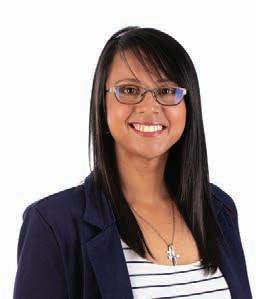
Re ecting on her time at JLR, Luti says: “After seven years at JLR, I can con dently say that our commitment to innovation and excellence is unmatched. It’s incredibly rewarding to be part of an organisation that continually pushes the boundaries of automotive technology and design. What I admire most is the company’s dedication to creating a progressive and inclusive environment, intentionally supporting the growth and development of all team members, especially women.”
With six years of dedicated service at JLR, Cornelissen is integral to the nancial stewardship of the South African and sub-Saharan African regions. In this role, she holds overall responsibility for preparing and analysing regional budgets and performance indicators, ensuring nancial goals are met and providing strategic insights to drive the company’s success. As a nance business partner,
Diversity and inclusion is about leveraging the power of the differences and uniqueness that each of us bring
Before joining JLR, Cornelissen built a robust career in nancial management. She served as a nancial controller at Vector Logistics for three years, managing nancial reporting and controls. At South African Breweries, she spent seven years as a nancial planner, focusing on nancial forecasting and strategic planning. Earlier in her career, she was a cost accountant at Distell for four years, specialising in cost management.
Cornelissen holds a BTech in internal auditing from Cape Technikon University of Technology, completed in 2001, providing a solid foundation in auditing and financial management.
Guided by Warren Bennis’s quote, “Leaders are people who do the right thing; Managers are people who do things right,” she exempli es the dual qualities of effective leadership and meticulous management, driving both ethical and operational excellence at JLR.

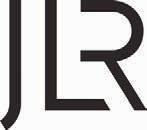
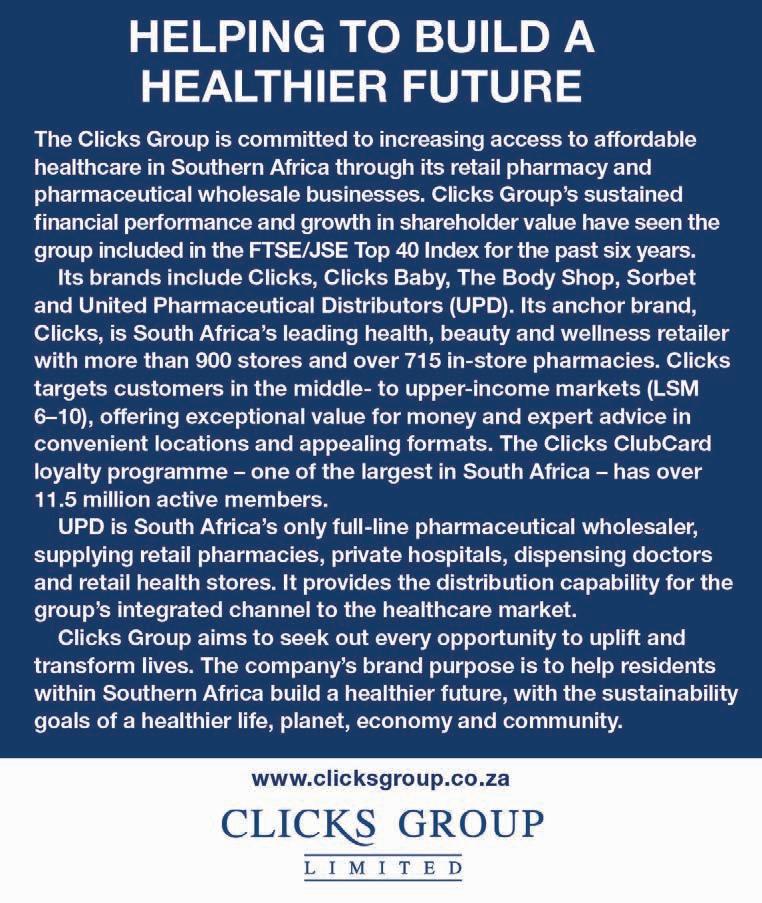
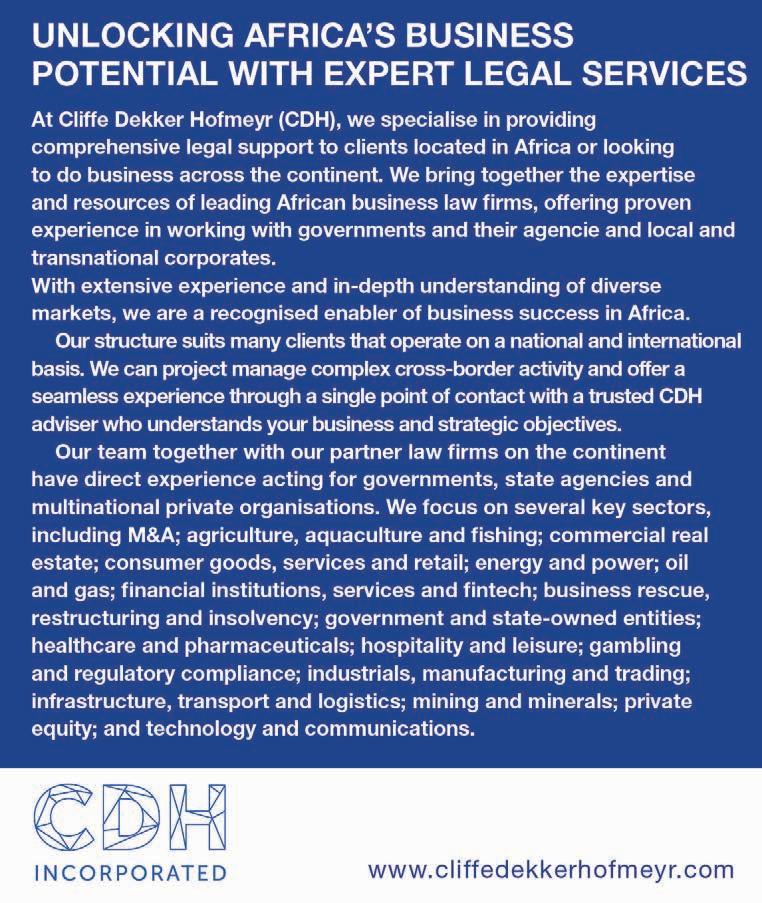
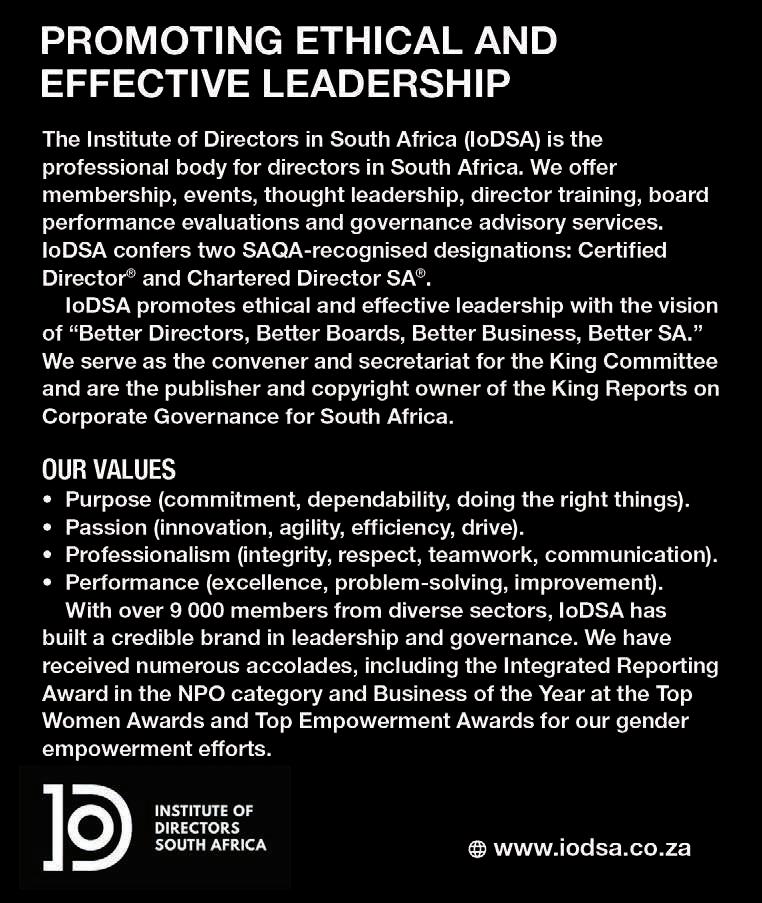
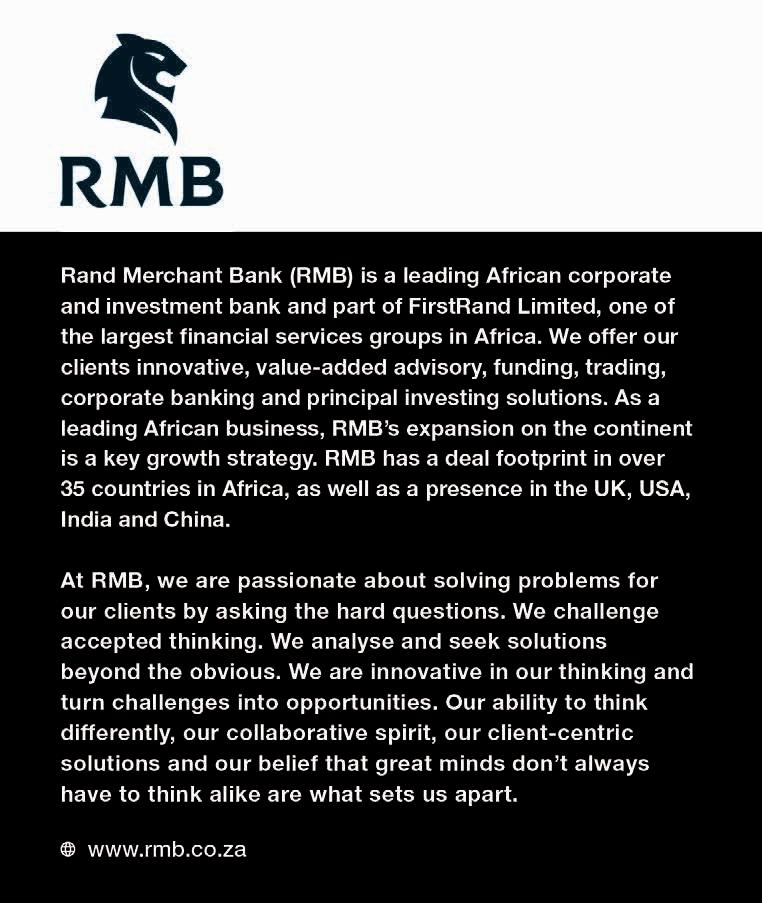


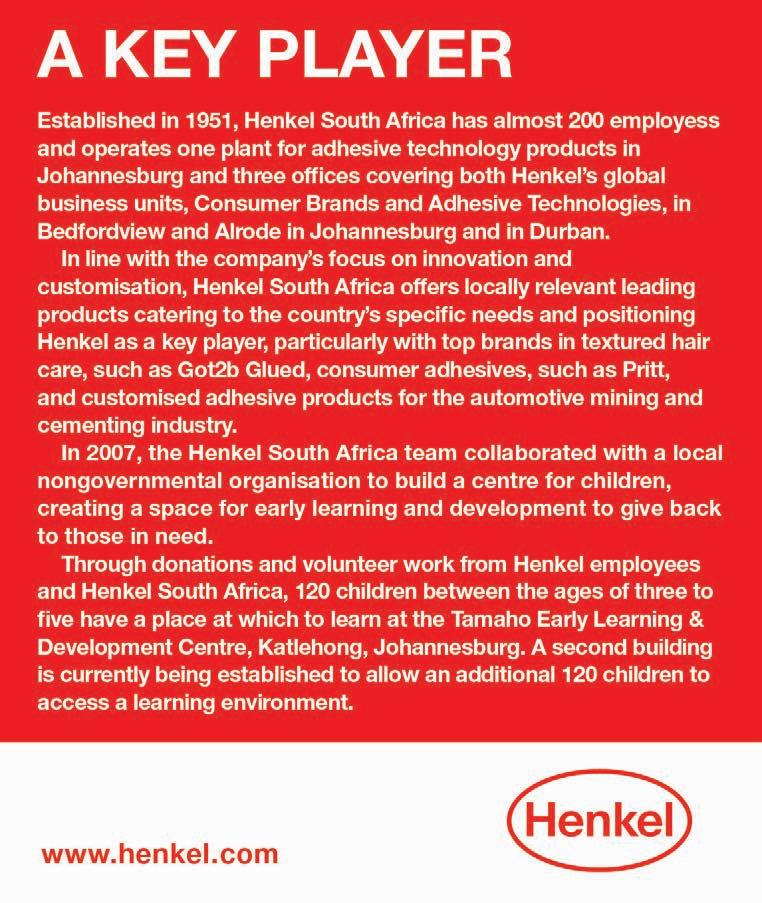
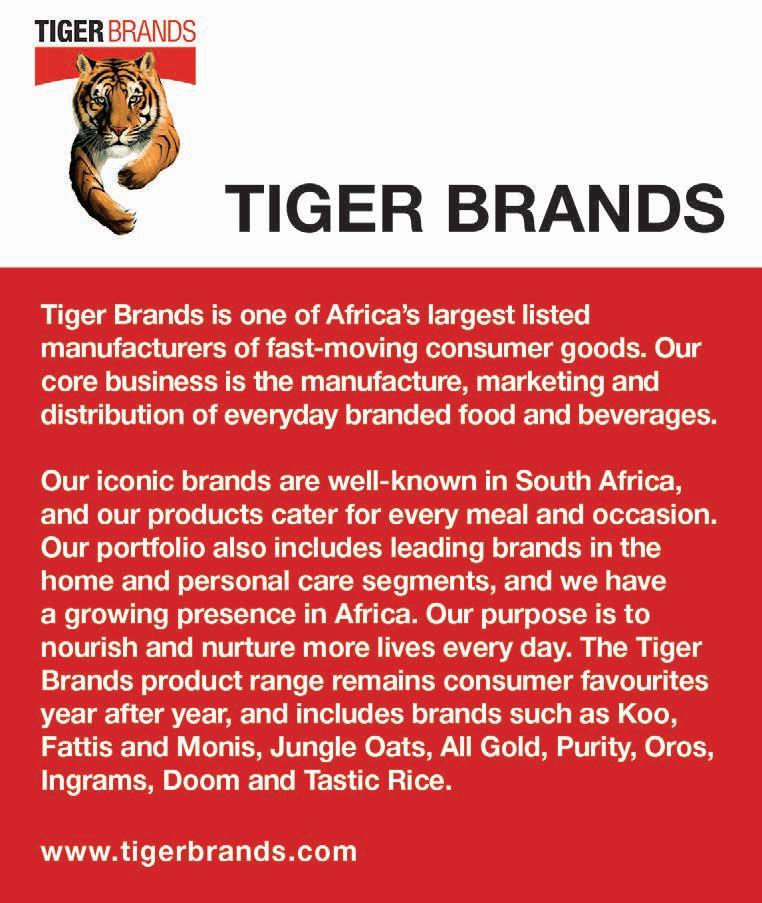

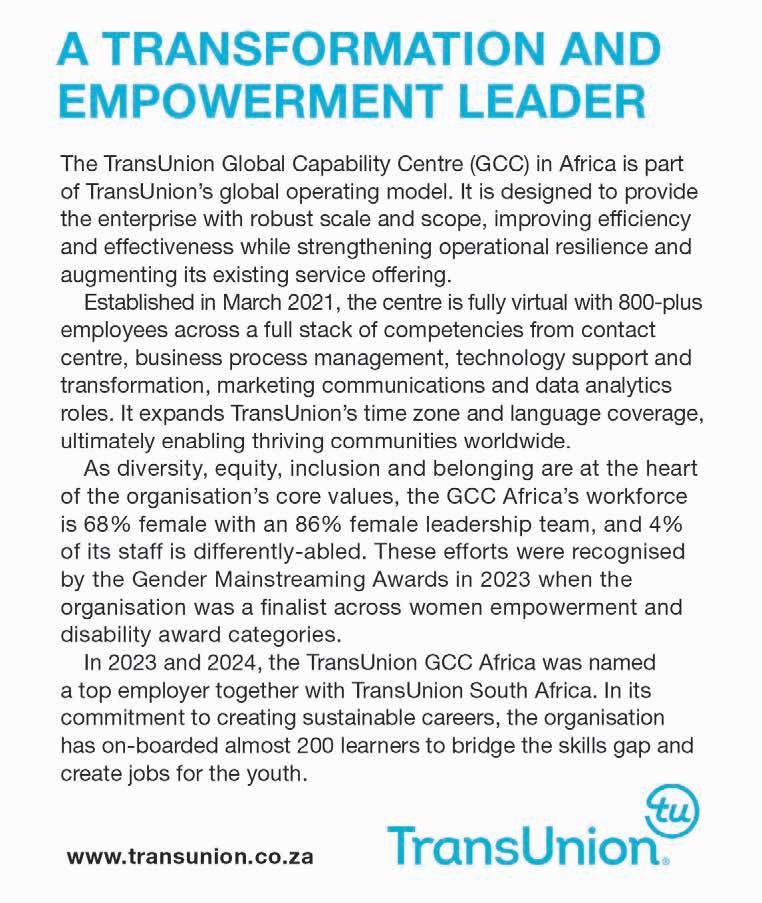


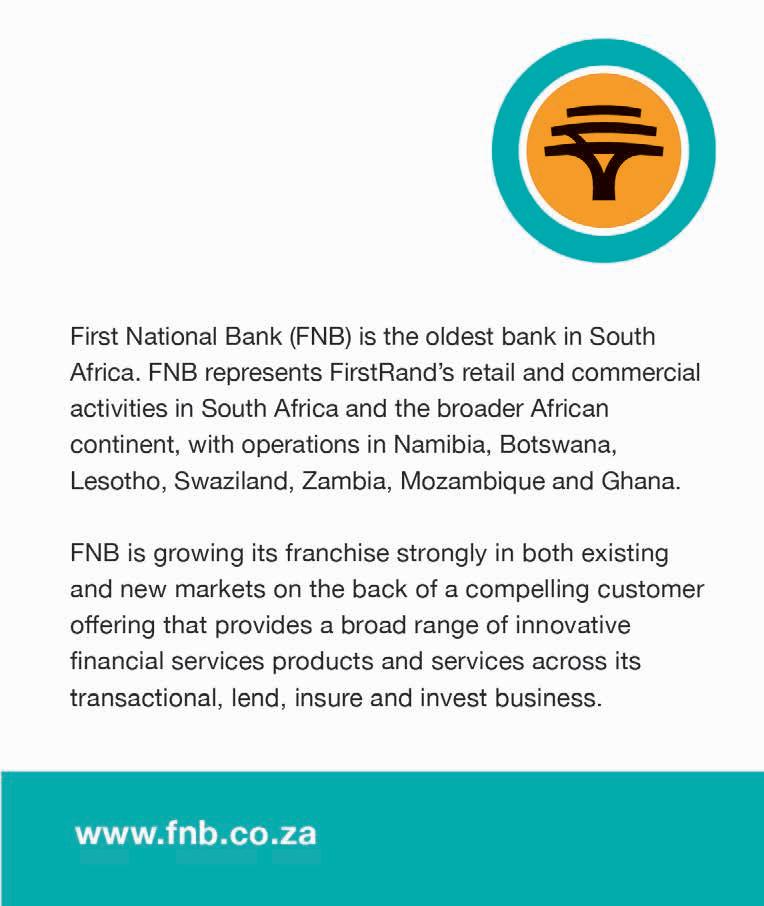

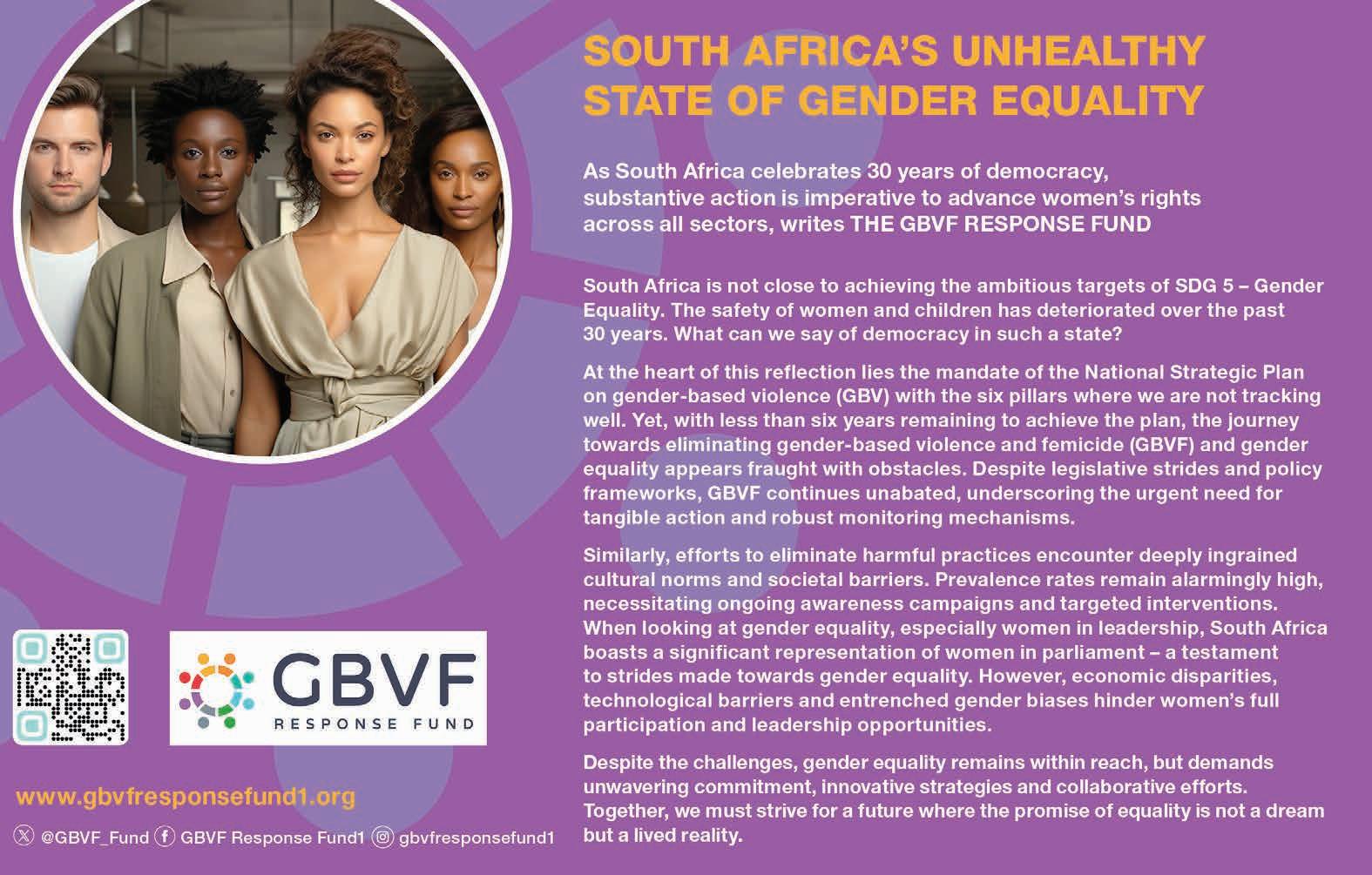
Given today’s rapidly evolving business landscape, celebrating female strengths and skills is not just a matter of social justice, but also a strategic imperative that can drive organisational success. Recognising and honouring the value women bring is crucial for creating an inclusive working environment that bene ts everyone.
Women come with particular skill sets, and while it’s not wise to generalise, women do, for the most part, excel in areas such as emotional intelligence, collaboration and multitasking, which are increasingly important in modern workplaces. Emotional intelligence enhances communication and con ict resolution, fostering a positive and productive work culture for everybody. Collaborative skills enable women to build strong teams and encourage diverse viewpoints. Moreover, the ability to juggle multiple responsibilities with agility makes women adept at managing complex projects and adapting to changing circumstances.
Despite these strengths, women frequently face barriers that hinder their full participation and advancement in the workplace. Gender biases, unequal pay and limited access to leadership
opportunities are persistent issues that need to be addressed. Creating an inclusive working environment that supports women involves more than just policy changes; it requires a cultural shift that values and promotes gender diversity at all levels of the organisation.
To cultivate such an environment, organisations must implement concrete measures. Fortunately, as you will read in these pages, such measures are taking shape. The conversations that will drive change are being had, and reading through the content of this year’s FM Women, it is clear that corporate South Africa is making strides towards greater inclusivity.
Celebrating female strengths and skills and fostering inclusive working environments are essential for the sustained success and growth of any organisation. By continuing on the trajectory created by our female leaders interviewed for this edition, South Africa will be in a good position to lead the continent towards greater inclusivity, reaping all the bene ts that a diverse workforce brings.
Lindi Botha Editor
Leaning into female strengths to overcome disengagement in the workplace.
Leading in emerging landscapes.
Embracing a diverse and inclusive workforce.
Passion and purpose: 30 years of leadership lessons learnt.
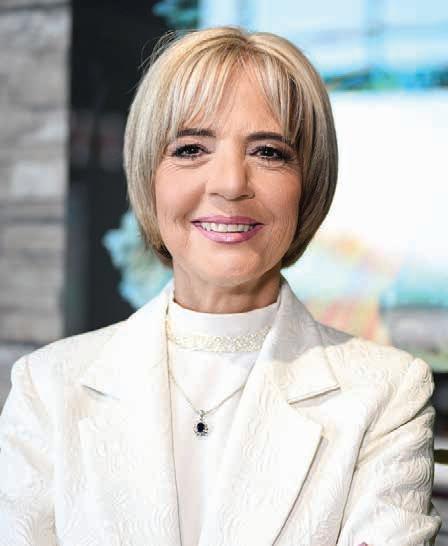



PUBLISHED BY
A proud division of Arena Holdings (Pty) Ltd
Hill on Empire, 16 Empire Road (cnr Hillside Road), Parktown, Johannesburg, 2193
PO Box 12500, Mill Street, Cape Town, 8010 www.businessmediamags.co.za
EDITORIAL
Editor: Lindi Botha
Content Manager: Raina Julies
rainaj@picasso.co.za
Contributors: Latiefa Behardien, Elsabe Coetzee, Sakhile Dube, Denene Erasmus, Mari Janzen, Bridget Lepere, Kim Mutandiro, Carl van der Riet
Copy Editor: Brenda Bryden
Content Co-ordinator: Natasha Maneveldt
Digital Editor: Stacey Visser, vissers@businessmediamags.co.za
Head of Design: Jayne Macé-Ferguson
Senior Design: Mfundo Archie Ndzo
Advert Designer: Bulelwa Sotashe
Cover images: Supplied
Project Manager: Merryl Klein, merrylk@picasso.co.za
+27 21 469 2446
Production Editor: Shamiela Brenner
Advertising Co-ordinator: Shamiela Brenner
Subscriptions and Distribution: Fatima Dramat, fatimad@picasso.co.za
Printer: CTP Printers, Cape Town
Management Accountant: Deidre Musha
Business Manager: Lodewyk van der Walt
General Manager, Magazines: Jocelyne Bayer




Copyright: No portion of this magazine may be reproduced in any form without written consent of the publisher. The publisher is not responsible for unsolicited material. FM Women is published by Picasso Headline. The opinions expressed are not necessarily those of Picasso Headline. All advertisements/advertorials have been paid for and therefore do not carry any endorsement by the publisher.
Tackling gender equality requires both legal and social undertaking. By BRIGITTA MANGALE , director and CLAUDIA GROBLER , associate designate, Dispute Resolution practice
Cliffe Dekker Hofmeyr
The achievement of gender equality is a process dependent on various interconnected factors. The law, economic realities and social and interpersonal dynamics must all work together if we are to triumph in this battle for equality. However, the importance of our law cannot be understated in realising the rights of women in our Constitutional dispensation. Our law continues to mutate in pursuit of these ideals.
In June 2022, the Constitutional Court in Women’s Legal Centre Trust v President of the Republic of South Africa (2022) handed down a powerful judgment progressing the rights of women in Muslim marriages. Here, two pieces of legislation were declared inconsistent with sections 9, 10, 28 and 34 of the Constitution as they fail to recognise the validity of marriages solemnised in accordance with Sharia law. In a unanimous judgement, the Constitutional Court found that the effect of this denial is to deprive Muslim women and children of the remedies and protections they would otherwise have. The court held that there is no justification for the continuing nonrecognition of Muslim marriages, especially considering “the historical context of systemic violation of the rights of Muslim women”. The court reasoned that a woman’s choice to conclude a Muslim marriage plainly “does not mean that she should not be protected from the economic and social hardships she suffers in such a marriage”.
In pursuit of equality, lawyers and lawmakers have a duty to interrogate missteps in our judicial processes
IN PURSUIT OF EQUALITY, LAWYERS AND LAWMAKERS HAVE A DUTY TO INTERROGATE MISSTEPS IN OUR JUDICIAL PROCESSES AND CORRECT THEM.
and correct them. In a matter before the Cape Town Magistrate Court, a protection order was granted against a woman who disclosed on a private social media group that she was raped by an ex-boyfriend. She intended it as a warning to others and a way to find healing, community and support. The protection order directed that she was “not allowed to tell anyone, in any manner, that [the applicant] had raped her”. The court stated: “It is ‘strange’ that she was ‘raped’ [previously] ... and yet failed to lay one charge of rape. This court by no means wants to silence the respondent ... but in my humble view, she cannot continue to tell others that the applicant had ‘raped’ her.” Extracts from this judgement serve as a stark reminder that our law cannot work in isolation from the social realities of our country and an understanding of rape culture.
Fortunately, review and appeal processes allow for an interrogation of the law and facts considered by lower courts.
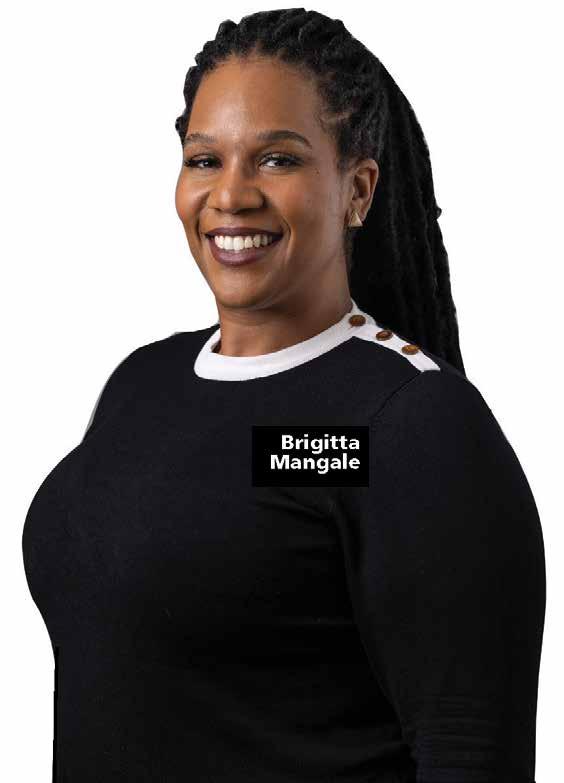
On appeal, the Western Cape High Court in Segerman v Petersen (2022) overturned the ruling of the Magistrate Court, finding that the court was incorrect in drawing a negative inference from the respondent’s failure to report the rape to the police as “the reasons why rape victims do not lay charges are well-known and our courts have taken cognisance of it”.
CDH’s Pro Bono & Human Rights Practice is committed to playing its part in moving toward generation equality. The Cape Town Practice,
in particular, is focused on implementing and developing the law to protect women against violations of their basic human rights, thereby taking meaningful steps towards gender equality.

Our practice is pursuing a matter in which section 12(4) of the Prescription Act of 1969 is being challenged as unconstitutional. The intention is that a successful outcome will positively progress our laws around sexual abuse, which we know disproportionately affect women. But as is evident from the Segerman lower court judgment, there is more to achieving generation equality than the letter of the law.
How women and girl children are viewed, rape culture and social dynamics will all directly inform our journey to equality – a journey we must all take together.


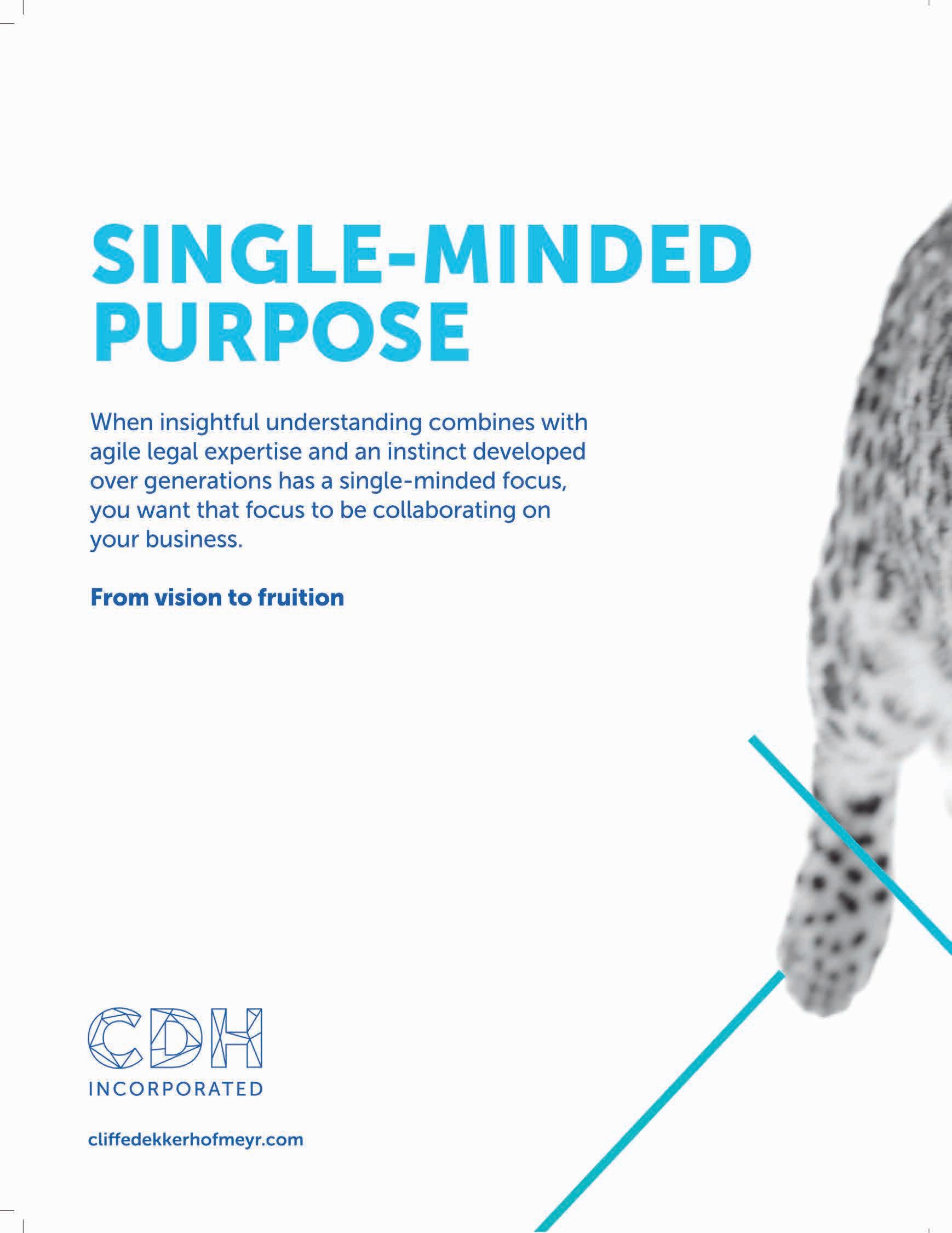

CLIFFE DEKKER HOFMEYR shares the inspiring story of one of its directors and her determination
There was once a little girl who survived life on the kindness of strangers. Legend has it that during the 2008 global nancial crisis, her parents became unemployed and battled to survive. They could not afford school fees, clothes or a home, let alone food. A community of women – strangers to the little girl –gathered resources to sustain the family until life eased. They collected a variety of canned goods and long-life items. Ladies with older girl children gave the clothes their little girls had outgrown to this little girl. One kind lady offered her cottage for the little girl’s family to stay in until the family was back on their feet. Most signi cantly, the school she attended offered the parents a grace period for payment of school fees for that year. The family made it out of that situation eventually, only because of the kindness of others. The little girl grew up to be a fairly successful attorney and her story was told countrywide.
That little girl was Nomlayo Mabhena-Mlilo, now director, dispute resolution at law rm Cliffe Dekker Hofmeyr (CDH), and was the youngest black female conveyancer this country has ever seen. The kindness of strangers underpins her inspiring story and her innate desire to give back to the community.



310 lecture while studying at university. “I did not understand why we had to read multiple articles and the writings of philosophers, including Tshepo Madlingozi’s article on how students must move beyond the ivory towers of universities to effect change.”
When tasked with her rst assignment, Mabhena-Mlilo took her le home. Smiling she says: “We used to print everything in those days.” She complained to her parents about the purpose of the module. Mabhena-Mlilo’s father, a deeply astute man, took the le from her and read each article. As is with all great teachers, he did not provide her with the answer she was seeking. Instead, he handwrote his own article titled “This is the Gospel of Jurisprudence according to your Dad”. This article turned out to be instrumental in de ning the way Mabhena-Mlilo plotted her signi cant career path.




and apply the law as it is without critically looking at the morality of these statutes and how far these laws inhibit or enhance fuller participation in the social discourse of the population of South Africa.
“Alternatively, we could become conscientious legal practitioners who see the legal profession as a vehicle to bring social change and justice and desire to question the moral legitimacy of our law.”
Once Mabhena-Mlilo understood the importance of jurisprudence, it changed her world view and underscored her career trajectory.
Mabhena-Mlilo believes we are all here to make an impact on society and a difference in the world. “In a world where you can be anything,” concludes Mabhena-Mlilo, “be part of a community that supports others, like the community that raised me – that is where our humanity lies.”

you will be and,








In his article, Mabhena-Mlilo’s father explained the importance of jurisprudence and how it would de ne the type of legal practitioner Mabhena-Mlilo was to become. “Every other module teaches you what the law is and where to nd it,” says Mabhena-Mlilo. “However, jurisprudence makes you think about the type of legal practitioner you will be and, importantly, your relevance and impact in society.”





Scan to visit the CDH website




Mabhena-Mlilo readily admits that she did not initially enjoy her Jurisprudence


would become lawyers who would defend
















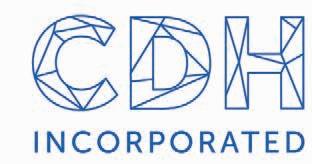

“I then understood,” she says, “that Tshepo Madlingozi’s question was whether we, as law students, the status quo.

That is to follow



For more information: www.cliffedekkerhofmeyr.com
CLIFFE DEKKER HOFMEYR writes that one of its directors, Megan Rodgers, is considered a global leading female expert in local markets
Despite the increased number of female law school graduates, the legal fraternity remains disproportionately male-dominated and challenging for women. However, Megan Rodgers, director and head of the oil and gas sector at Cliffe Dekker Hofymeyr (CDH), believes that goal-orientated women hold the power to break down barriers and become trailblazers, no matter in which industry they operate.
This innate belief is re ected in her being named one of IFLR1000 2021–2023
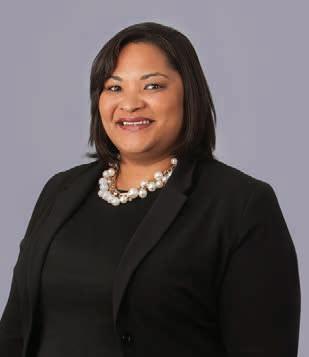
Women Leaders – an elite cohort of globally leading female experts in local markets.
Rodgers overcame considerable odds to get where she is today. After matriculating, she wanted to study law, but nancial constraints prevented this. She was forced to enter the job market immediately, but the desire to study law did not dissipate. She saved every cent she could for university fees and four years later was nally able to start her LLB on a part-time basis at the University of the Western Cape (UWC). While studying, Rodgers continued to work full-time and at the end of the working day, commuted to part-time lectures at UWC. After completing her LLB, Megan went on to complete her LLM cum laude at UWC.
Rodgers re ects on this time with pride: “It was not easy, but it was worth it. Our ability to multitask is one of the most
sophisticated and valuable attributes women have and we should never allow this to be downplayed as a cliché. As women, we juggle the demands of work and family life daily, but there are times when we need to focus that energy towards achieving our personal goals, and we should not feel guilty in doing so; it is not sel sh behaviour, it is deserved.”
Megan Rodgers
Before commencing articles, Rodgers was appointed as a graduate lecturer at UWC and during this time completed her LLM by full thesis. She then joined a leading commercial law rm where she completed articles and legal training in the oil and gas sector and later a niche oil and gas practice in Cape Town. In 2015, she joined CDH to lead its oil and gas sector offering.
Rodgers is one of the rst black female lawyers in South Africa to tackle the male-dominated upstream oil industry.
“I rejected the myth that certain types of law are better suited for women early in my career. It took a while to break down the barriers, but I was not about to back down from a challenge – I had worked hard to be there and if my presence caused discomfort to some, I unapologetically embraced it. With discomfort comes change and I believed I was at the forefront of change,” she explains.
Rodgers earned the trust of her clients by submerging herself into the intricate details of the high-risk/high-reward oil business and supported their
strategic objectives by providing fresh and innovative legal advice. “You must understand your clients and their business outside of the legalese. I developed a commercial appreciation for the dayto-day risk associated with the oil industry and my seat at the head of their negotiating table was secured.”
Megan has assisted clients with oil and gas projects in more than 14 countries across ve continents. She has worked closely with independent oil companies, national oil companies, service providers to the industry and regulatory authorities. She provides commercial, regulatory and advisory legal services to the upstream, midstream and downstream oil and gas sectors. She has advised on the F-A Gas Field Development and the Ibhubesi Gas Field Development in South Africa and the Kudu Gas Field Development project in Namibia.
Following client feedback, leading rankings agency Chambers Global 2024 ranked Rodgers in the Namibia General Business Law category as “Foreign expertise based in South Africa spotlight”.




South Africa’s modern-day female business icons are taking conversations about gender diversity and inclusion to the boardroom. This is how greater female representation on boards can be achieved, writes KIM MUTANDIRO
For centuries, women were viewed as incapable of making key business decisions. Gender diversity and inclusion discussions were not prioritised and women’s voices were silenced. This resulted in gender disparity, with women taking on mediocre roles and frequently facing discrimination in business organisations, creating psychological barriers for aspiring female leaders.
Gender disparity in boardrooms has continued to be a global phenomenon. The Global Board Diversity Tracker report for 2023 found that South Africa is ahead of the global curve, with 37 per cent of board seats held by women. This is remarkable when compared to global standards, especially given the European Union’s recent mandate to have 40 per cent female nonexecutive directors by 2026.






However, local experts believe that a much higher proportion of women should be represented in boardrooms.
Due to the increasingly volatile business environment, businesses are looking at embracing change in the decision-making process. Strategic business approaches have become increasingly important in navigating unpredictable and often risky business challenges. As the famous Chinese philosopher Lao Tzu once said: “The journey of a thousand miles begins with a single step”, the steps toward inclusivity are well underway. Having more female speakers marks the beginning of a greater diversity of skills, experiences, opinions and approaches.
Despite signi cant progress in making boardrooms more gender-representative in South Africa, Professor Parmi Natesan, CEO of the Institute of Directors in South Africa (IoDSA), believes there is still much work to be done. Inclusivity targets should be established and hard work should be put in to achieve them.
“It could be argued that the relative lack of female role models contributes to the dif culty of changing corporate culture. Systemic barriers, such as a lack of childcare support and biased recruitment practices, further impede women’s advancement up the corporate ladder,” she says, adding that by bringing up relevant topics, it may be possible to remove such barriers by altering attitudes and expectations.
Other key topics that should be constantly under discussion include the importance of inclusive policies that provide a framework for equal opportunities and coming up with policies for setting the agenda and providing the rationale for change.
The latest information in the World Economic Forum’s Global Gender Gap Report 2023 shows that South African women are paid between 23 and 35 per cent less than men doing the same job. Professor Natesan sees transparency in compensation practices as an important topic that needs to be kept on the front burner, with the gender pay gap remaining an unfortunate reality.








While other important issues should be addressed in the boardroom, she believes it is critical to understand the barriers to gender equality in the workplace. This would entail abandoning old business practices that make it dif cult to embrace change and including more female representation as a key to changing corporate culture.
Topics around the need for better gender representation in leadership and decision-making roles, as well as exible work arrangements, are also important in creating a better work-life balance for women, who traditionally assume a greater share of home and childcare responsibilities.
“The creation of leadership development programmes that identify and train female
“THE CREATION OF LEADERSHIP DEVELOPMENT PROGRAMMES THAT IDENTIFY AND TRAIN FEMALE LEADERS IS ESSENTIAL IN CREATING NOT ONLY A PIPELINE, BUT ALSO PRESSURE FOR CHANGE.”
– PROFESSOR PARMI NATESAN


leaders is essential in creating not only a pipeline, but also pressure for change. To support this, putting in place strong mentorship programmes encourages and empowers younger women,” she says.
Creating a more conducive environment for women to recognise and celebrate their accomplishments may inspire future female achievers. Such changes in inclusivity are an important impetus for the change that should be at the centre of boardroom conversations, Professor Natesan says.
Issues around unconscious bias and challenging “accepted biases” continue to be an issue in boardrooms. Colleen Larsen, chief executive of Business Engage, believes businesses should embrace gender disparity by “making it a business issue, not a women’s issue”. “As a norm, business organisations only wait for International Women’s Day or Women’s Month events to discuss diversity and inclusion.”
However, Larsen says, boardrooms need to continuously foster collaboration, addressing a need for inspirational stories to be told around how Africa can become the gender hub for gender mainstreaming success.
Normalising taboos, such as promoting conversations about women’s issues, for example, menopause, where men and women are aware of its effects on a productive workplace, is essential. In addition, the mental health of female workers needs to be protected as this is instrumental in curbing gender-related stereotypes.
“Boardrooms must have conversations on collaborative leadership, incorporating diverse attributes as key to driving an ever-changing landscape. The decisions that got us to this point are not necessarily going to take us forward. Conversations should be normalised rather than made a women’s issue,” Larsen says.
Zodwa Velleman, group executive at the Oceana Group, says ensuring inclusivity means investing in women at every level to create successful organisations.
“To support such initiatives, we need to foster boardroom conversations on how women can grow from junior employees to being elevated to higher-ranking positions. This also includes coming up with initiatives to ensure they can be made susceptible to accountability in their own growth process.
“Suspending personal biases relating to what people can or cannot do based on preconceived ideas is crucial to ensuring a more inclusive corporate environment. Individualism versus collectivism can impact workplace dynamics,” she notes.
As a result, encouraging open communication, collaboration and ultimately greater success in boardroom conversations would enable a more nuanced understanding of how different cultural perspectives in uence behaviours and decision-making, resulting in more inclusive and culturally competent organisations.
Yashmita Bhana, CEO of the Nihka Technology Group, believes discussions about gender equality and diversity should take place alongside the debate about intersectionality.
“The conversation must go beyond gender to include ethnicity, sexual orientation, physical ability, class and socioeconomic status. These all pose challenges, which is why programmes have been developed to address diversity.
Understanding intersexuality motivates programmes that are more inclusive, diverse and multidimensional.”
Bhana believes this will aid the development of gender-inclusive policies while reducing disparities and inequalities.
Challenging long-held beliefs and institutional bias to implement change requires a hands-on approach and practise in putting action before words to ensure proactive approaches to inclusivity. Recognising ambition, commitment and implementing skills development are all important conversations to have in the boardroom when dealing with gender diversity and inclusion.
As we delve deeper into conversations about gender diversity and inclusion in the boardroom, it becomes imperative for business organisations to walk the walk to ensure that these conversations continue to affect larger change in the journey towards inclusivity.
“WE NEED TO FOSTER BOARDROOM CONVERSATIONS ON HOW WOMEN CAN GROW FROM JUNIOR EMPLOYEES TO BEING ELEVATED TO HIGHER-RANKING POSITIONS.” – ZODWA VELLEMAN









Gender equality is an economic imperative with corporates playing a pivotal role in advancing the meaningful representation of women in business, writes the JOHANNESBURG

The private sector has the potential to drive signi cant changes in corporate culture, policies and practices. Doing so will create environments where women are not just present, but also empowered to thrive, unlocking substantial bene ts for companies and creating a positive ripple effect across societies.
Institutions such as the Johannesburg Stock Exchange (JSE) are leading by example in this regard, recognising the vital synergy of women in leadership and the importance of gender equality in Africa. As the continent’s largest stock exchange, the JSE advocates for creating platforms that provide female employees the same opportunities to grow in organisations as their male counterparts and a conducive environment for them to prosper.
It has consistently been shown that companies with gender-inclusive cultures see a 60 per cent boost in product development and productivity, enjoy better reputations, nd talent acquisition easier and experience greater innovation and pro ts.
Despite these clear advantages, Statistics South Africa reports that the labour force participation rate for women
in South Africa, for example, stands at 54.3 per cent compared with 64.9 per cent for men – a gap of 10.6 percentage points. This trend is not exclusive to the country, but is indicative of the systemic barriers women continue to face in the global workforce.
To address these disparities, the private sector must commit to comprehensive gender mainstreaming strategies that go beyond tokenism and drive real change. The JSE has been instrumental in encouraging listed companies and the broader ecosystem to promote gender diversity through its various initiatives and regulatory frameworks.
Since 2017, the JSE, as a frontline regulator, introduced listing requirements mandating that listed companies have a policy for promoting gender diversity at board level and disclose their performance against it. Through these requirements, the JSE catalysed the enhancement of corporate governance and nancial reporting quality for companies listed on the exchange, which requires a broad diversity policy encompassing race, gender, culture, age, knowledge, skills and experience.
Additionally, listed companies must report to their shareholders on gender representation at the board level, a commitment mirrored in the JSE’s own board and executive structure with 56 per cent female representation on its board and 78 per cent on the executive committee.
The JSE has several initiatives to promote nancial literacy among women to empower and support them on their
investment journey. These include the annual #JSESheInvests conference, an initiative that provides expert insights and practical solutions to educate South African women about nancial literacy, investment strategies and the importance of economic inclusion.
Additionally, the JSE sponsors the Gender Mainstreaming Awards, an initiative aimed at underscoring the importance of promoting women’s representation in mainstream business and celebrating their excellence across all sectors of society.
By driving such initiatives, the JSE aims to play its role in driving the national agenda and achieving key national imperatives such as transformation, economic inclusion and gender representation in the workplace and society in general. However, while great inroads have been made in driving gender equality, much more needs to be done.
Companies must make deliberate efforts such as implementing robust policies and practices that promote gender inclusivity, create opportunities for women’s advancement and address systemic barriers that hinder their full participation in the workforce. This commitment to gender equality will not only enhance business performance, but also drive economic development across Africa, creating a more equitable and prosperous future for all.





Collaboration allows for cross corporate learning and sharing of best practice within organisations. Ultimately decreasing expenditure, it is a vital tool to master to get the most from collective knowledge and increase the bottom line, writes BRIDGET LEPERE
The core of successful collaboration is in pooling the knowledge of a diverse group of people to reach a whole solution, bene tting as broad a range of stakeholders as possible. At its best it can reduce operating costs, create win-win scenarios and elevate the experience levels of individuals.
“Our business would not be where we are today without collaborations,” says Sapi Bachi, managing director of advertising company TBWA Zimbabwe. With over 11 000 creative minds in agencies in more than 40 countries, TBWA Africa needs to maintain a collaborative mindset to get the best from such an extensive and diverse workforce.
As such, the company focuses on supporting the building of positive relationships conducive to collaboration and the merging of complementary strengths that make the business thrive.
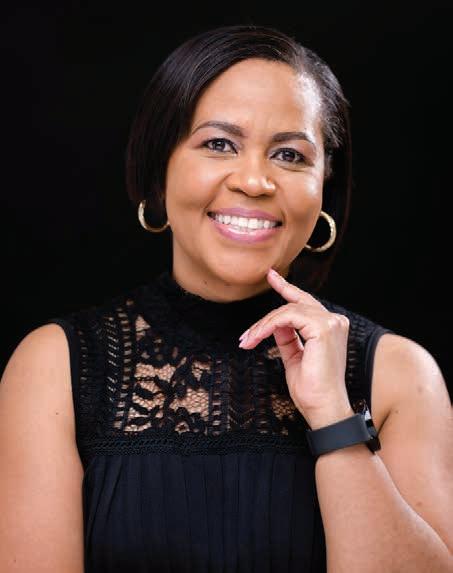
While some collaborations are based on accessing tools and technology, others provide access to different markets, giving the business a competitive edge and expanding reach and competitive edge.
Bachi explains that understanding individual strengths and everyone’s contribution and willingness to adapt ways of working during projects is essential for effective, meaningful and successful collaborations.
“There are projects we have worked on that have positively impacted our bottom line and also provided the team with learning experiences and exposure, the kind we would not have had the opportunity to experience otherwise,” she notes.
She adds that internal collaborations help individuals appreciate the role played by a colleague. “Without internal partnerships, it would be very challenging to run any business, particularly one in the advertising space. No one team is an island. There is an African proverb that says, ‘if you want to go fast, travel alone, but to go further travel together’, essentially meaning, together you can achieve more.”
The agency has had the opportunity of working with big brands across the region because of its ability to work with teams across country borders. Bachi points out that collaborations can sometimes be multilayered and pulling off big projects requires acquiring more
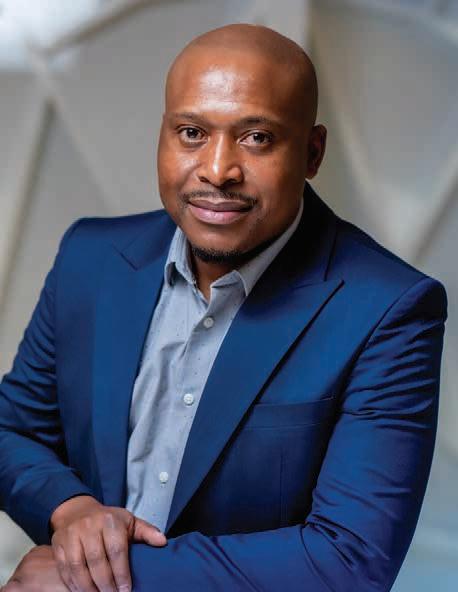
capacity and bringing in experienced human resources in areas such as creativity or strategy.
“One of the greatest and most notable outcomes has been the relationships forged from working with others across the network and the continent. Our teams have worked on projects in other markets, interacting with people from different cultures. From a human capital perspective, this adds depth to one’s experience.”
From a business development point of view, collaboration can go a long way to give new businesses the tools they need to succeed. A case in point is in the nancing sphere, where banks need to ensure the businesses they back can pull off a pro t.
“OUR TEAMS HAVE WORKED ON PROJECTS IN OTHER MARKETS, INTERACTING WITH PEOPLE FROM DIFFERENT CULTURES. FROM A HUMAN CAPITAL PERSPECTIVE, THIS ADDS DEPTH TO ONE’S EXPERIENCE.” – SAPI BACHI
Absa’s senior enterprise development specialist, Thys Tekela, explains that collaborations are central to how they fund small to medium enterprises (SMEs). “By setting up the SMEs with organisations that are experts in their eld, the SMEs gain technical support, business coaching and mentorship. In turn, the organisations receive an opportunity to transform their supply chain by having access to partners that would otherwise have fallen by the wayside.”
This ecosystem ensures that all business aspects required for the business to thrive are covered.
Tekela notes that some SMEs in sectors such as farming, for instance, need to purchase land, but lack the collateral for a loan. “From an enterprise development perspective, we seek support for such SMEs by teaming them up with experienced farmers to assist them with skills training, business development and experience to qualify for funding.
“The quality of service is a great concern to us as a funder, so the technical support provided by our partners helps ll in SME skill gaps, alleviating the risk factor to funding.”
Achieving a conducive collaboration environment is no easy feat since, at its core, it requires people from different walks of life to work together and reach consensus. A company that not only understands how to get the most from collaboration, but also how to put teams together, is Business Engage.
This organisation develops platforms where businesses can collaborate to create momentum for key issues that need addressing. One such issue is gender mainstreaming, where diversity efforts are supported to promote gender equality at all levels in the work environment, since they consider both women’s and men’s interests and concerns.
“WORKING TOGETHER ENABLES IDENTIFYING THE BEST INITIATIVES, THE MOST EFFECTIVE WAY TO EFFECT CHANGE THROUGH ENGAGING VARIOUS THOUGHT PROCESSES AND CREATING IMPACT RATHER THAN JUST TALKING SHOP.”
– COLLEEN LARSEN

Business Engage’s chief executive, Colleen Larsen, explains that collaborations drive the necessary conversations and champion action in gender mainstreaming initiatives. “Working together enables identifying the best initiatives, the most effective way to effect change through engaging various thought processes and creating impact rather than just talking shop.”
The company has recognised the appetite for diversity, inclusion and policies geared towards gender equity and the implementation thereof, especially in the senior management structures of its partner companies. The Gender Mainstreaming Awards have grown exponentially over the years inspiring change by sharing the success stories of Business Engage’s many partners.
“By implementing the feedback and advice from senior leaders within the business community, we have seen companies that were not even nalists
in the rst year, later crowned the Gender Mainstreaming Champion years later,” Larsen adds.
She notes that organisations that win the award did so by making gender mainstreaming a fundamental aspect of the business’ character and putting plans in motion.
Gender parity can assist with diversity of thought and the subsequent ful lment of the desired outcome. However, Larsen stresses that gender equality should be merit-based and that on its own it will not guarantee nor should it be a hindrance to successful collaboration.
She explains that leaders should have a clear vision of their end goal and be able to communicate this effectively. “Two-way communication is vitally important; leaders need to be exible and open to new ideas and ways of doing things. Team members must be able to provide feedback, input and concerns without fear of judgement or victimisation.”
To get the most from collective knowledge, Larsen suggests establishing a steering committee comprising representatives from each company.
“Such a union can foster understanding for the kind of support required by each business, keeps companies engaged in the various activities and allows the steering committee a platform to provide valuable input. It also keeps ideas in the network current.”
Partnering with a diverse group of people will never be easy, and undertaking such a project requires accepting that different experiences, backgrounds and unconscious biases should be incorporated, understood and harnessed for a wholesome experience.

Organisations are increasingly enjoying the commercial benefits of diversified groups of employees and clientele. Diversity is more than a catchphrase to be inclusive; it makes sound commercial sense and offers a broader perspective vital for organisational longevity and relevance, writes MARGARET NIENABER , chief operating officer, Standard Bank Group
The concept of diversity brings together people from different backgrounds, cultures, perspectives and ways of thinking. This melting pot of experiences and perspectives encourages innovation and creativity. When people with diverse points of view work together, they can challenge assumptions, perceive opportunities from different perspectives and create novel concepts. The new approaches that emerge give businesses a competitive edge.
A diverse and inclusive society enriches everyone, fostering creativity, innovation and mutual respect. By understanding and accommodating different perspectives, we create a more equitable environment where everyone has an opportunity to succeed.
Perhaps the rst step is ensuring everyone feels welcomed and respected. Discussions about race, gender, ethnicity and other characteristics should not be mere checkboxes. Sometimes corporations meet diversity targets yet people leave due to an unsupportive environment that may cater predominantly to stereotypical needs.
The foundation of diversity lies in building trust – creating an environment where individuals feel empowered to express themselves freely. Understanding and valuing diverse perspectives ultimately cultivates a culture of trust and collaboration. Authentic diversity fosters an environment where different viewpoints and experiences are not just tolerated, but also encouraged.
“This diversity of thought often leads to more creative problem-solving. It’s through such an environment that people

can begin to embrace a popular quote by Oscar Wilde, to “…be yourself, everyone else is taken.”
In celebrating Women’s Month and the broader global movement advocating for increased gender representation, it’s clear similar spaces must be created for other marginalised groups, including people with disabilities, youth and individuals from diverse religious backgrounds.
Prioritising inclusivity and diversity is imperative. As signatories to the United Nations Women Empowerment Principles, Standard Bank aligns with initiatives promoting women’s education, training, professional development and public reporting on gender equality progress. Our commitment is evident with 41.5 per cent women in senior leadership roles and majority female
“It is not our differences that divide us. It is our inability to recognise, accept and celebrate those differences,” – Audre Lorde.
representation at middle and junior management and general staff levels. Our workforce’s diversity extends beyond gender equality. With employees from 81 nationalities, 98.2 per cent of our staff outside South Africa are local nationals, re ecting our dedication to local representation. In South Africa and Namibia, we prioritise promoting historically disadvantaged individuals in line with Employment Equity requirements.
This inclusive atmosphere fosters better communication and collaboration. It’s no easy feat, especially for an organisation spanning 20 countries across Africa.
Numerous studies highlight the tangible bene ts of embracing diversity, from enhanced nancial performance to heightened innovation. By fostering such an environment, individuals can thrive and pave the way for a future where every voice is valued, regardless of gender, disability or age.
Embracing diversity isn’t just a moral imperative; it’s a strategic imperative for organisational success and societal progress. By dismantling barriers and championing inclusivity, we unlock the full potential of every individual, fostering a culture where diversity is celebrated, and all are empowered to thrive.
At Standard Bank, we’re committed to cultivating an environment where all individuals nd belonging. It’s no easy feat, especially for an organisation spanning 20 African countries. It’s through such practices that we can truly drive Africa’s growth.



Bridging the investment gap between men and women is critical for South Africa, writes FUNEKA MONTJANE , Standard Bank chief executive personal and private banking
When you consider the centrality of the country’s nancial services sector, particularly banks, to our economy, one can easily forget just how much work took place in the decades since the dawn of democracy to simply get the majority of South Africans banked.
When bankers of yesteryear met with Trevor Manuel’s Treasury of cials in Pretoria to agree to what was the rst industry-speci c transformation in the very early 2000s, little over a fth of the country’s population could be considered banked. It’s quite a thought when you consider that today, more than 85 per cent is banked. (Bank account penetration rate in South Africa from 2011 to 2021 by Statista shares that 85% of the population was considered banked in 2021.)
Being in a re ective mood like much of the country has been this year, our 30 th since we became a democracy in 1994, we can con dently say one of the nancial charter’s main aims of broadening access to nancial services to the vast majority has been successful. There are other details that we can squabble over, but in the main most people have been offered a less crippling alternative to the local mashonisa.
We’ve come a long way, but as with many things in this country, there’s still
some road to travel. As an executive of one of the largest retailing banks in South Africa and the continent, my drive is to not only grant access to nancial services, but also help build prosperity. Our vision is to leave each generation better off than the last and forms the core of our stated purpose “… Africa is our home; we drive her growth.”
It’s a drum I bang loudly within the hallways of the bank. I know there’s an education aspect to it, but I feel it needs to be more acutely targeted to women because of the gender investment gap.
While women statistically live longer than men, a 2017 report from the World Economic Forum
showed that pre-COVID-19 they retire with 30 to 40 per cent less money than men. This is a global issue, but in the case of South Africa where more than two- fths of households (42.1 per cent) are headed by women, with female-headed households most common in rural areas, according to Statistics SA’s 2022 census, you can quickly see that we have a huge problem on our hands.
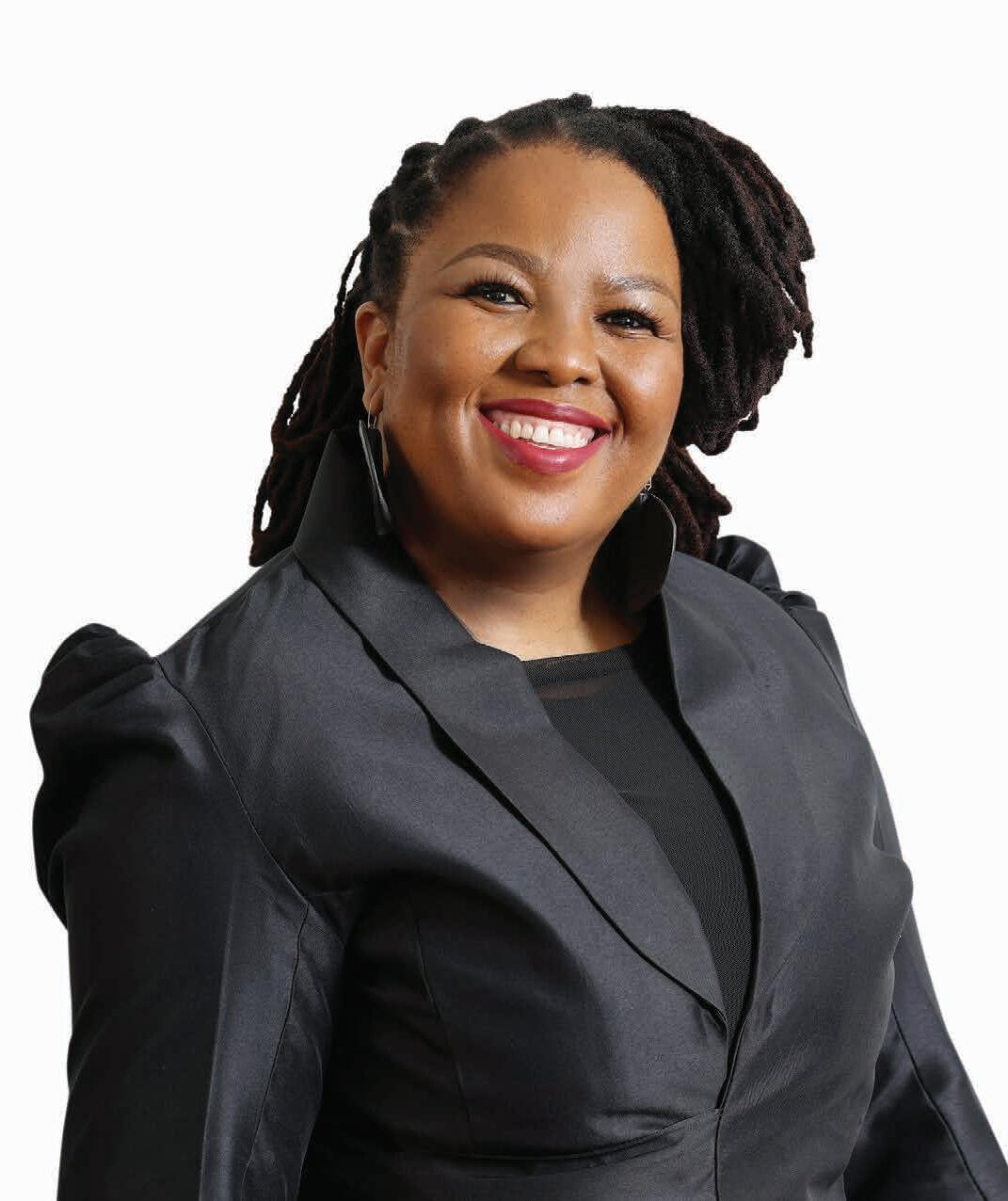
South African women make up a large percentage of the workforce and it promises to grow even more given the number of female graduates emerging from our tertiary institutions. It’s a labour force, though, that earns on average up to 35 per cent less than male workers. If we are to build prosperity in the country, breaking the mindset many women have that seeking nancial advice is only for people with lots of money or, more crassly, the “rich”, is critical and a job for Standard Bank and other nancial services companies.
In South Africa, women are less likely to have a nancial plan or an adviser than men with a recent survey by Goldman Sachs showing that only about 53 per cent of women have retirement plans.
Outside of retirement plans, women must prioritise having personal investments, regardless of relationship status, to maintain nancial independence. Often dubbed a runaway fund, its necessity extends beyond marital concerns. For instance, when a spouse dies, estate winding delays are common. Having immediate funds to carry on with life and honour debt obligations can secure livelihood until policies pay out and estates resolve.
Looking at our own data, women are less likely to go into excess on their transactional accounts intra-month, which means they are less likely to access an overdraft or revolving facility in the month. This can suggest that they plan their expenses better than men. About 54 per cent of women save for short-term emergencies or unexpected costs versus 46 per cent of men.
With Standard Bank being the biggest home loan providers in the country, our data shows that women are more likely to look at secured credit, such as home loans, compared
Outside of retirement plans, women must prioritise having personal investments, regardless of relationship status, to maintain financial independence.
with men. This act of nancing assets suggests that women are practising responsible debt management and credit behaviour.
While perhaps managing your money in the short term is slightly easier, research indicates that we need to appreciate that men are more con dent in making investment decisions. Dealing with this con dence starts with women setting themselves up for the long-term by getting a trusted nancial adviser – a professional who has the appropriate quali cations and experience to help them reach the goals or the needs they have.
The important thing in this journey is nding an adviser with whom you are comfortable, someone you can ask the questions you need answered and who will be real with you, telling you things even if you don’t want to hear them. And there are things we all don’t like or want to hear.
Women will have to factor in their risk tolerance and tax aspects as well. There are many tax incentives available for people to save towards retirement, which highlights the importance of getting a trusted adviser.
The big thing is striving for balance, being disciplined with the plan, but also including those indulgences that are important, whatever they may be. After all, life can be short, but a startling bit of research by Sanlam in 2021 showed that about 86 per cent of South African women ranked nancial worries as the top reason for their sleepless nights. We must get
IF WE ARE TO BUILD PROSPERITY IN THE COUNTRY, BREAKING THE MINDSET MANY WOMEN HAVE THAT SEEKING FINANCIAL ADVICE IS ONLY FOR PEOPLE WITH LOTS OF MONEY OR, MORE CRASSLY, THE “RICH”, IS CRITICAL.
more women onto a plan that builds greater prosperity.
The key to keeping with any nancial plan is being consistent and sticking with it when markets are acting up or there are other more immediate things you want to spend money on. I know this is dif cult, given just how much marketing is targeted towards the female consumer, especially in consumption-led economies such as ours or the United States.
Several consumer research ndings show that women make more buying decisions than men. According to Marti Barletta, author of Marketing to Women, women in uence at least 80 per cent of all household spending; they make 75 per cent of decisions about buying a new home and 81 per cent about groceries.
The investment gap, a global and local af iction, will not be easy to deal with. For other countries that don’t have as large a proportion of its households headed by women, it’s not as critical perhaps. But for South Africa and over the next three decades, there’s much work for Standard Bank and our industry peers to do in building a new culture that the rest of the world can possibly follow as the nuclear family continues to lose its appeal.





The right to work and the financial emancipation that comes with it has granted women freedom of choice. Exploring the complexities of the different choices on the the table, ZANDILE MAKHOBA , economist at Liberty, says their research reveals some of the unique trade offs the working woman has to make.
Making life-changing choices is not always easy, and the growing tension among women when making – or balancing – the choice between career progression and motherhood, puts nancial wellbeing at the centre of it all.
Women in South Africa are choosing to work. According to Statistics South Africa’s Labour Force Survey 2023/4, women account for 45 per cent of employed individuals in the country. Over time, the proportion of senior level roles held by women has improved to 37 per cent of managerial roles and 25 per cent of executive roles, with visible signs that the C-Suite is gaining momentum on achieving gender parity. For example, more women are pursuing MBA quali cations and postgraduate studies in pursuit of career success and progression.
Yet, there is a fear of losing this momentum in pursuit of another dream, motherhood.
While several global studies have highlighted a growing trend for women delaying or even opting out of motherhood to advance their careers, we wanted to nd out if this trend was true for South African working women, and what it means for their nancial
planning. Liberty commissioned a research study surveying a cohort of South African women.
We found that South African women aren’t choosing motherhood over career or vice versa, but instead desire both. By and large, working women in the local context are parents: 77 per cent of our Liberty survey respondents were already mothers.
The survey showed that 63 per cent of respondents wanted to have a child or add more children to their family.
For a large majority (63 per cent) of those who already had children but did not want anymore, nances were the main reason for opting out (children are expensive), highlighting the signi cance of income and household wealth to the decision. In preparing for motherhood, 69 per cent did nancial self-education and 66 per cent started or increased their savings and investments. However, less than 50 per cent had spoken to a nancial

adviser as part of their preparation. Many women may have missed out on viable nancial options to suit their circumstances by not getting advice.
It poses an interesting challenge to the nancial services sector in terms of making information readily available and accessible to women, but also
Many women may have missed out on viable financial options to suit their circumstances by not getting advice. It poses an interesting challenge to the financial services sector in terms of making information readily available and accessible to women.
ensuring the advisers and the advice process are welcoming to women. Adding to the above are those women who wanted more children and showed greater career ambition than those who did not. Professional success was more important to them than those who did not want children, possibly due to the signi cance of nancial success and stability of deciding to become a parent. This debunks the long-held assumption that mothers tend to be less committed to their careers, but rather assets to a business, being more invested in their careers, which may translate to increased commitment and drive in the workplace.
Fortunately, employee bene ts and workplace policies are increasingly becoming friendlier to prospective moms and dads, with some companies extending paternity leave to give men more time to bond with their newborns and support their baby’s mother.
Much like the global trend, some South African women are opting out of motherhood altogether. Our survey showed that a notable 12 per cent of working women don’t want children. This represented 55 per cent of the respondents with no children. A closer look at this group showed that these were predominantly business owners or individuals in senior positions. However, the primary reason for this choice, representing 50 per cent of this group, was that they felt they were too old to bear children (most respondents in this group were over 35). It was more of a dream deferred. Only 25 per cent of this group didn’t want children because they had no desire to be mothers.
Growing conception options and rising life expectancy may in time encourage maturing women to conceive while pursuing nancial success, especially having had the advantage to grow their wealth over some years. This would introduce a new dynamic to long-term nancial planning – balancing retirement planning with conception costs and the nancial demands of raising children.
GROWING CONCEPTION OPTIONS AND RISING LIFE EXPECTANCY MAY IN TIME ENCOURAGE MATURING WOMEN TO CONCEIVE WHILE PURSUING FINANCIAL SUCCESS, ESPECIALLY HAVING HAD THE ADVANTAGE TO GROW THEIR WEALTH OVER SOME YEARS.
The average age for giving birth in South Africa has gone up to 28.2 years old in 2022 from 26 years old in 2012 (Statistics South Africa’s Report on Recorded Live Births), indicating some delay in child-bearing age among women. When working women were asked what the ideal age for child bearing is, the aggregated response was 26 years old, slightly below the country’s average age rate.
Interestingly, respondents with no children but who wanted children had already surpassed this “ideal” age by around ve years or more. Much anxiety might come from entering the 30s and not yet having had a child while nursing a career about to launch. With that said, only 40 per cent of women said they knew and understood egg freezing while 37 per cent said they would consider egg freezing as an alternative to natural conception and 35 per cent a surrogate.
Single motherhood is not seen as an undesirable “second-best”, but is often a deliberate choice. Our survey showed that while 63 per cent of working women desire to have (more) children, only 53 per cent indicated that getting married or having a partner is important to them. Nevertheless, women remain more conservative around the path to parenthood. Only 25 per cent of those who wanted children said they would consider a sperm donor as an alternative to natural conception.
The option of self-reliance does increase the importance and signi cance of nancial planning among working women, placing the nancial services provider in a special place in a woman’s life.
Of those considering conception alternatives, 29 per cent planned to fund this via medical aid, 23 per cent via long-term insurance or employee bene ts, 15 per cent expected to self-fund the chosen treatment with savings or investments while 11 per cent considered credit options.
Less spoken about, are the challenges with unwanted pregnancies. Across the sample, 1 in 10 women had terminated a pregnancy. While some medical aids cover the termination procedure, this option may be subject to preapproval, further complicating an already dif cult journey. It is an important reminder for the nancial services sector to be deliberate about customer empathy.
Choice is one thing, but it must still be afforded, in money, time or effort, if it is not to be bargained or negotiated with others. The nancial service sector can be instrumental in the decision-making process, so let it be the role of this industry to continually expand choice and affordability to women, whatever choice they make.
Liberty Group Limited is a licensed Life Insurer, an Authorised FSP (no.2409) and part of the Standard Bank Group. Terms and conditions, risks and limitations apply.





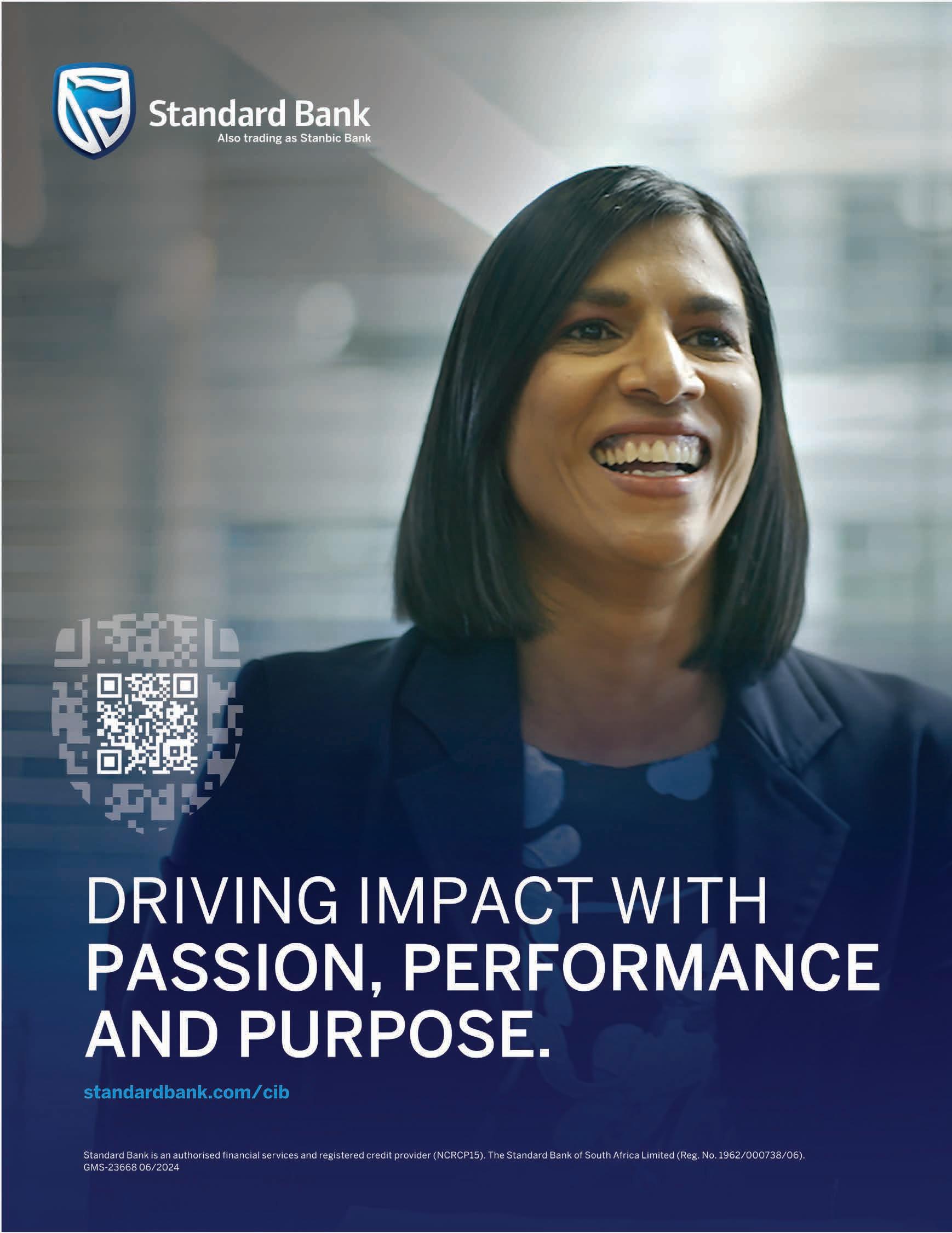
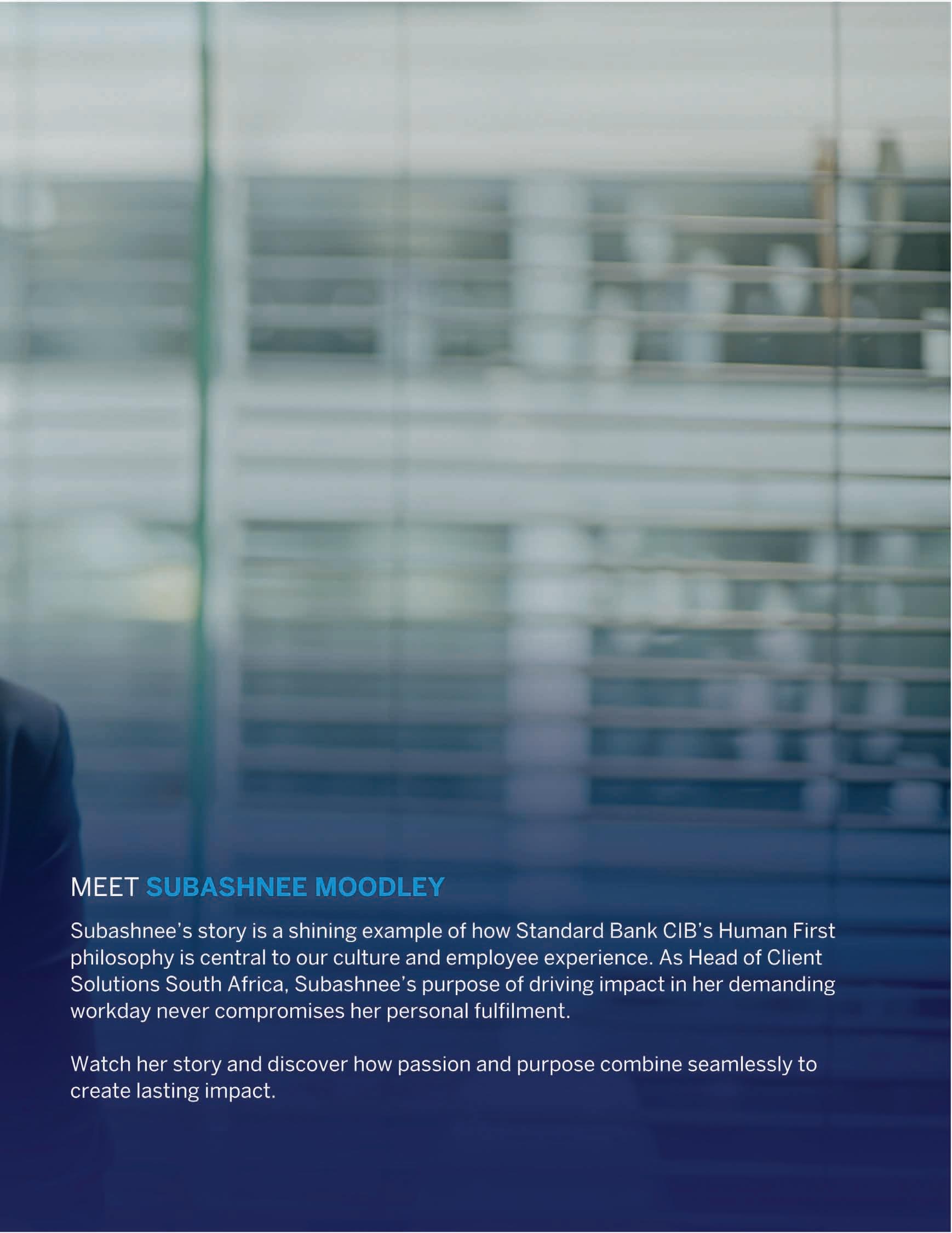
The Tiger Brands value, “we embrace diversity and inclusivity” underlines the company’s commitment to gender equity and is a business imperative. Our targeted Gender Equity strategy aims to improve the representation, engagement, and development of women in leadership and core functions where decision-making resides. It deliberately creates a cultural shift that supports an environment where women can thrive and grow into leaders.
S’ne
Magagula – Chief Human Resource Officer, Tiger Brands.
1. Integrate Gender Equity Focus in Talent Management - Targeted sourcing and increased representation of women in early careers and increased representation of women in Leadership and decision-making roles.
2. Integrate Gender Equity Focus in Leadership Development & Learning - The Gender Equity Strategy aims to increase women participation in leadership development; career growth and progression initiatives, as well as targeted mentorship, coaching and sponsorship programmes.
3. Create a culture where women are included and ignited to grow and thrive.
Tiger Brands’ core leadership development programmes are intended to develop the skills and leadership capabilities of talented individuals identified within the business. The inclusion of women in these programmes is a strong focus area. Our goal is explicitly clear. We aim to have the most talented and diverse workforce that is intimately connected to the Tiger Brands purpose of nourishing and nurturing more lives every day, and who operate in an inclusive, agile and collaborative work environment that inspires each and every single Tiger to bring their best game to work
LIFT - A leadership programme that enables first time leaders or junior management leaders to master leadership skills, interpersonal dynamics, self-awareness, emotional intelligence, resilience, and commercial acumen.
Women representation = 45%
GAME CHANGER - Geared to transform the leadership style of Tiger leaders from command and control to more inspirational, engaging and values-driven, so that our leaders galvanise their people to bring their A-game.
Women representation = 50%.
SOAR - Provides experienced leaders in middle management with crucial skills for leading winning performance in a dynamic business environment. It equips leaders with concrete strategies for transforming leadership abilities. They learn how to communicate a compelling vision that will inspire others to perform beyond even their own expectations. Women representation = 56%.
WINGS - A leadership programme designed and developed to accelerate the development of diverse high-potential employees through 12 to 18-month assignments in different parts of the organisation to ensure adequate bench strength and depth to meet future business requirements.
Women representation = 80%

In addition to its core leadership programmes, Women in Tiger is a targeted programme aimed at accelerating development and career growth in traditionally male-dominated divisions within the business such as Supply Chain, Customer (Sales) and Bakeries.
The Tiger Women’s Network offers women in the business a platform to engage on issues that matter most to them. It is also an opportunity for us to recognise and celebrate our own women that are breaking stereotypes, as well as female role models that are achieving career success and are real examples of inspiring inclusion in the workplace.
The network facilitates diversity and gender equality awareness dialogues, including issues such as unconscious bias and other barriers in the workplace that may stand in the way of women advancing their careers or feeling a sense of belonging.
Men who act as allies in supporting and promoting the development, growth, and empowerment of women in the workplace are encouraged to act as sponsors.
South Africa has seen a gradual increase in the number of women serving on the boards of JSE-listed companies, with female representation reaching 35 per cent as noted by the recent Gender on JSE-listed Boards report. By SAKHILE DUBE
A2022 report, Women in the Boardroom, by Deloitte reveals that globally women hold only 19.7 per cent of board seats. Fortunately, South Africa surpasses the global average by 10 percentage points in large-cap companies, according to the Global Board Diversity Tracker report by Egon Zehnder. Africa exhibits a slightly higher rate of women on boards, reaching 21 per cent, with South Africa at the forefront, according to the 2023 Gender Equality in Corporate Leadership Africa report by International Finance Corporation and Sustainable Stock Exchanges.
While these numbers represent an improvement, there is a signi cant gap compared to the 55.6 per cent of women participating in the labour force as indicated by the Quarterly Labour Force Survey Q1: 2004. Women still face barriers and challenges in ascending to board positions. Understanding these underlying issues is crucial to accelerating women’s participation on South African boards.
Geraldine Fraser-Moleketi, chairperson of Tiger Brands, notes with concern that women’s representation in the workforce decreases as they climb the ladder, preventing them from sitting on boards. “Education and skills, systemic inequality and perceptions of power and privilege are some of our greatest impediments. Organisations will not meaningfully move the needle on women’s progress if we do not address some of these barriers.”
A Hewlett Packard internal report found that women often apply for senior positions only if they meet all the quali cations. “This hesitation to self-nominate limits women’s opportunities for advancement, creating a cycle where lack of experience prevents them from gaining the experience they need to be at board level,” says Debbie Ransby, an independent nonexecutive director, executive business coach and board member of Adcock Ingram.
The disparity in professional networks between men and women poses another challenge, says Ransby. “Men generally have stronger networks, often leading to their recommendation and selection for board positions. This disparity marginalises women and limits their access to board roles.”


that businesses continue to promote partnerships and engagement with men who could advocate as allies and champions for women.
For many women, balancing family obligations with a career is a signi cant factor in uencing their professional path. Since women often shoulder a disproportionate share of household and caregiving responsibilities, this is a dif cult challenge to overcome. But Phiri notes that companies can do a lot to alleviate this pressure, including offering educare centres for employees’ children. “If the burden of care is reduced, women are less likely to step down from corporate positions.”


Nana Phiri, head of corporate client group at RMB, believes introducing sponsorships is one way to ensure leaders focus beyond their comfort zones and select diverse talent. “We have seen shadow boards where young women get a view of and start contributing to business decisions, building their con dence in their leadership abilities.”
Fraser-Moleketi highlights that it is also important
Fraser-Moleketi notes that more needs to be done in formalising and implementing family friendly and gender-equitable policies to offer better institutional and structural support. “When women step away from their careers for some time, they need support in their return through professional-level career re-entry programmes.”
While some sectors, such as the telecommunications and media sector, lead the way with an average of 39 per cent of board seats occupied by women,

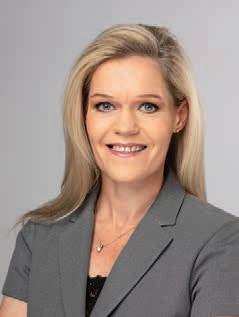
“MEN GENERALLY HAVE STRONGER NETWORKS, OFTEN LEADING TO THEIR RECOMMENDATION AND SELECTION FOR BOARD POSITIONS. THIS DISPARITY MARGINALISES WOMEN AND LIMITS THEIR ACCESS TO BOARD ROLES.” – DEBBIE RANSBY
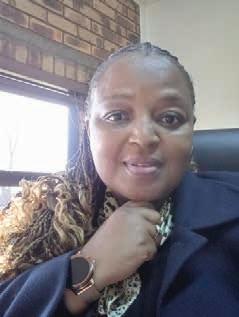

as highlighted in the Global Board Diversity Tracker report, this progress is pulled down by other sectors such as mining that are still highly male-dominated.
Zinzi Mnisi, director of JIC Mining, says outdated stereotypes still need challenging, as does recognising the value women bring to the table.
“When companies offer exible work arrangements and support systems to help women balance their careers and personal lives, we will begin to see more women participating in board roles.
“The mining industry remains highly male-dominated, requiring nurturing future board leaders at an early age while exposing them to opportunities that allow them to learn and grow to partake in decision-making,” highlights Mnisi.
South Africa’s drive for gender diversity in corporate leadership is rooted in its Constitution and supported by measures such as the B-BBEE Act, the Employment Equity Act, the King IV Report on Corporate Governance and stock exchange listing requirements.
However, Fraser-Moleketi points out that while these policies offer a good framework in which to work, transformation in a meaningful way is required rather than submitting to compliance. “Gender must be a key part of the transformation culture within companies.”
Ransby notes that policies aimed at increasing female representation on boards can sometimes lead to token appointments to meet targets. “It is crucial to implement policies that not only mandate female representation, but also provide support structures to ensure women are placed in board roles where they can succeed and contribute effectively.”
A 2020 McKinsey report reveals that companies prioritising gender diversity
“WHEN COMPANIES OFFER FLEXIBLE WORK ARRANGEMENTS AND SUPPORT SYSTEMS TO HELP WOMEN BALANCE THEIR CAREERS AND PERSONAL LIVES, WE WILL BEGIN TO SEE MORE WOMEN PARTICIPATING IN BOARD ROLES.” – ZINZI MNISI
outperform those with less female representation by at least 25 per cent. Additionally, these companies often demonstrate stronger performance on environmental, social and governance (ESG) priorities and successful innovation.
“Having more than 30 per cent female representation at board level helps make the required changes from a leadership perspective. When women see leaders who look like them, it helps them believe they can achieve similar goals. Representation is crucial for inspiring the next generation and ensuring diverse perspectives in leadership,” highlights Phiri.
The University of Stellenbosch Business School’s Women at Work 2020 report highlights that many companies are not fully leveraging the value women bring to the boardroom. Notably, women’s diverse perspectives and networks contribute to more effective and informed decision-making, corporate strategy and governance.
“It is important to showcase the success stories of women leaders in different industries as evidence of the possibilities and the inherent value women have as leaders. Initiatives such as the Gender Mainstreaming Awards play an important role in celebrating the progress companies are making and the contribution of women in business,” notes Fraser-Moleketi.
To accelerate women’s advancement to board positions, comprehensive training, mentorship and enhanced recruitment processes are crucial. These efforts play a vital role in promoting con dence in young women and guiding their career paths.
“Organisations must allow cross-pollination, which brings in women from different elds. Diverse female board members signi cantly strengthen a company’s ESG as they
bring a deep understanding of the social aspect within ESG,” notes Phelisa Nkomo, a development economist and board chair of Oxfam.
Nkomo further notes that developing and nurturing female talent internally helps women gain con dence and experience in a familiar environment. Internal succession planning also provides stability and demonstrates career progression to other employees.
Accelerating women’s participation on boards is not only a matter of fairness, but also a crucial strategy for companies aiming to thrive in a rapidly changing global landscape.
“A key component for women to be resilient is the willingness to learn consistently from those around them and, in turn, show leadership by sharing knowledge and experience for the upliftment of other women inspired to progress in leadership. Women’s unique background and culture make a valuable contribution to ensuring effective solutions are implemented for the good of the organisation,” concludes Fraser-Moleketi.




GENDER EQUALITY IN CORPORATE LEADERSHIP AFRICA DOWNLOAD
GLOBAL BOARD DIVERSITY TRACKER


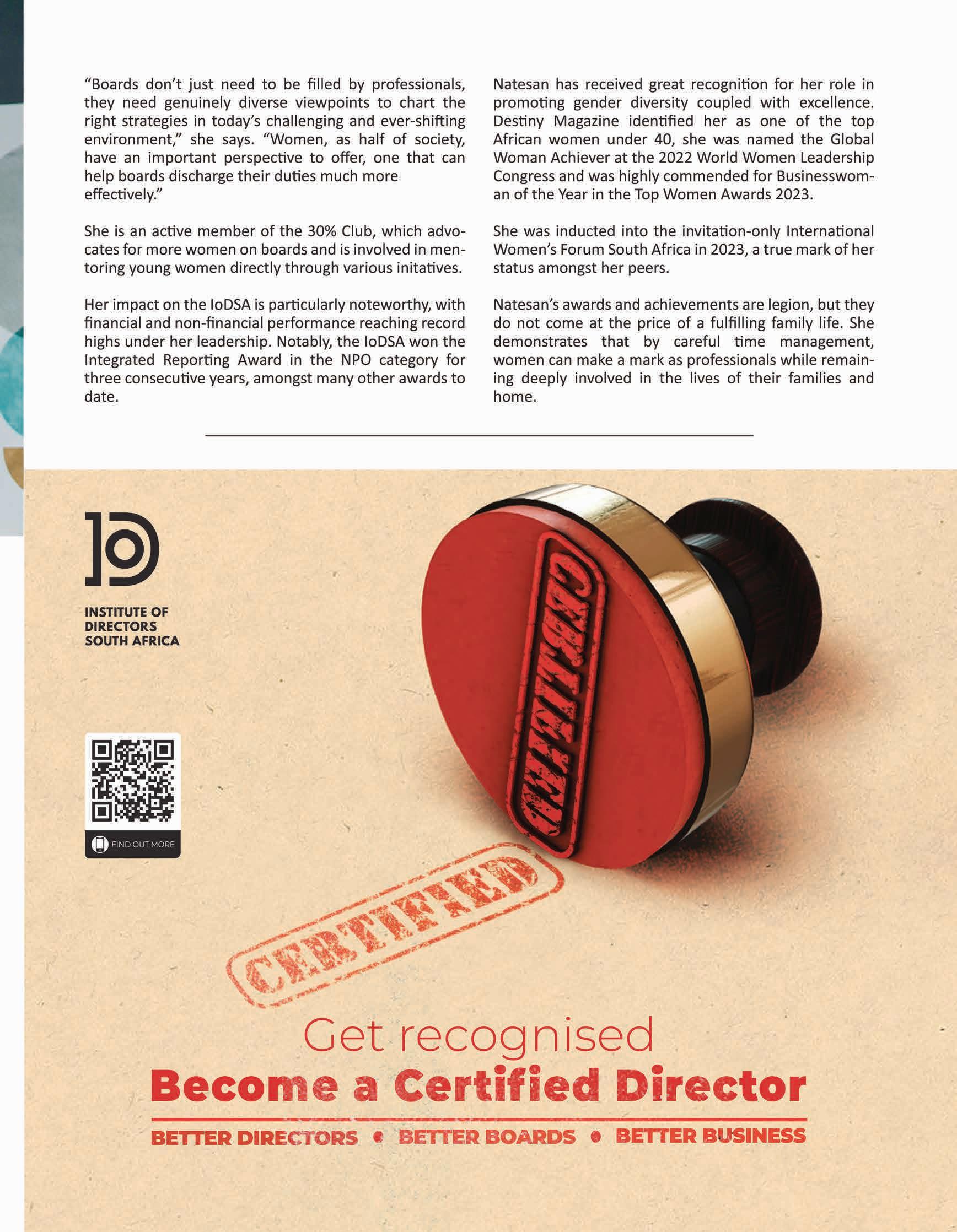
Despite just five per cent of CEOs on Africa’s 29 stock exchanges being women, as highlighted by the Africa.com and Standard Bank Group’s 2023 Definitive List, these leaders are shattering glass ceilings and driving financial success for their companies across the continent. By SAKHILE DUBE
From Algeria to Zambia, women are shaping the trajectory of multinational businesses. Beyond these achievements, they have implemented key leadership strategies that have effectively driven this change.
Valdene Reddy, director of Capital Markets at the Johannesburg Stock Exchange (JSE), explains that in shaping the business landscape, women marry their passions to their purpose. “In so doing, they become motivated, inspired and satis ed for a long trajectory.”
Bertina Engelbrecht, Group CEO at Clicks, notes how she made a deliberate decision to lead from the heart, with heart. “I believe this philosophy has made the leaders throughout our organisation accessible and our staff aware that we share some of the same challenges.”
In recent years, the landscape of leadership has begun to shift, with women increasingly stepping into leadership roles across various sectors. While this trend impacts gender equality, it also represents a profound transformation in how organisations operate and succeed. The female impact is evident in improved organisational performance, more diverse and dynamic teams, innovation and strategies
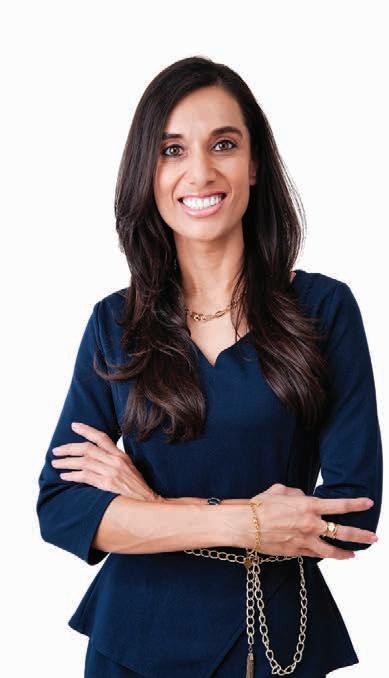

emphasising sustainability and community engagement to keep their businesses competitive and forward-thinking.
“A lot of women are naturally inclined towards planning and nurturing. These are skills they bring to their roles in management, leading to more thoughtful and inclusive decision-making,” says Edna Sathekga-Montse, group executive: transformation and sustainability at Africanbank.
Strategic recruitment and comprehensive talent development are vital in enabling women to transform and shape their businesses. Engelbrecht believes that if organisations have taken the time to recruit and develop the best talent, they should be allowed to shine. “That’s why my job as one of the leaders in our organisation is to remove obstacles that may impede the progress and development of our talent pool and to act as a sounding board.”
The COVID-19 pandemic was a period of immense challenge, disrupting economies and pushing businesses to their limits. Engelbrecht and Reddy highlight that their leadership roles came at a time when, like many other friends and family, their staff shouldered the weight of caring for those impacted by job losses or reduced salaries, while still meeting work demands.
“As a leadership team,” says Engelbrecht, “we showed that we understood this dilemma and empathised with our staff by being gentler in our engagements. This approach has paid off handsomely: our staff are motivated and engaged, and our improved metrics re ect this.”
During the pandemic, businesses were tested and those that were female-led demonstrated resilience by employing an empathetic leadership style during the crisis. “Leading through a crisis really brings a humbling factor, we had to lead with empathy and then with stability,” notes Reddy.
In recent years, South Africa’s focus on environmental, social and governance (ESG) has been rising, with diversity, equity and inclusion a key concern.
According to Sanlam’s 2023 ESG Barometer, companies with poor social indicators risk pro t damage. This trend is likely to continue in the coming years as companies are increasingly being held accountable for their social impacts by investors and other stakeholders. Reddy states that at the heart and centre of
solving these challenges, is ensuring that there is suf cient female leadership in place.
Women in leadership roles in uence management practices by bringing diverse perspectives that enrich decision-making processes and drive organisational success. Their unique viewpoints stem from different life experiences, backgrounds and approaches to problem-solving, which can lead to more innovative and comprehensive solutions to business challenges.
Engelbrecht adds that lived experiences inform perspectives, and businesses that can fully leverage the diversity of their employee pool as a competitive advantage will be able to design products and services that resonate with their customers.
The World Economic Forum’s Global Gender Gap Report 2023 places African countries, such as Namibia, Rwanda and South Africa, in the top 20. While this is a positive indicator of progress towards gender parity, the pace of change is very slow. The September 2023 report, Women in leadership: Assessing gender equality in the JSE Top 40, shows that only three companies have reached a point where 50 per cent of their executives are female. These statistics make gender transformation critical and future-proo ng inclusion requires moving beyond simply ticking a box.

“GENDER TRANSFORMATION STARTS WITH HOW THE BUSINESS IS POSITIONED IN THE BROADER SOCIETY. THIS MEANS EMBRACING THE COMPANY’S MULTIFACETED RESPONSIBILITIES IN THE COMMUNITIES AND THE CONTEXT IN WHICH IT OPERATES.”
– BERTINA ENGELBRECHT
Sathekga-Montse stresses that gender transformation ensures a variety of perspectives are considered in decision-making processes, leading to more inclusive, innovative and effective solutions.
Engelbrecht notes that gender transformation starts with how the business is positioned in the broader society. “This means embracing the company’s multifaceted responsibilities in the communities and the context in which it operates. These responsibilities encompass not only its obligations to shareholders, but also the broadest de nition of stakeholders, including commitments to employees, customers, communities and the environment that includes future generations.”
Taking the bottom line into account, Sathekga-Montse says a leadership team that is representative of the broader community, including race and gender, is more likely to resonate with and attract customers, reach a wider target market and develop better products and services.
The McKinsey Diversity Matters 2023 report states that companies committed to diversity show a 39 per cent increased likelihood of outperformance. Diverse leadership teams are better equipped to understand and cater to the needs of different customer segments which is crucial for businesses.
Engelbrecht notes that promoting diversity and inclusion and ensuring it is front of mind means embedding levers into standard operating practices by ensuring that policies, practices and other initiatives promote equity, respect and acceptance of differences.
At a more operational level, this means establishing clear policies against discrimination, harassment and bias in all forms, implementing diverse recruitment practices, fostering an inclusive workplace culture and creating transformation forums
and employee resource groups. It also requires offering diversity training, conducting regular assessments and feedback, developing supplier development programmes and engaging with the community. Gender parity also bene ts from instituting exible work policies and practices, and ensuring transparency and accountability.
“The more you promote diversity, whether gender, race, age or experience, the more you have to start learning how to embrace diverse viewpoints and diverse thinking to really unlock what the collective will bring together for diversity of thought,” stresses Reddy.
Empowerment through knowledge and education is key to gender transformation. Reddy therefore adds that women with smart, curious minds who have invested and built up a repertoire of skills are really a powerful force.
Despite the challenges, female leadership in Africa is a powerful force on the rise. Women are investing in themselves through education and seizing opportunities to in uence policy and strategy. This combination will be key to Africa’s future success on the global stage.
2023 ESG BAROMETER

DIVERSITY MATTERS



A 2023 study on inclusivity by PwC found that while progress is being made, men still experience higher levels of workplace inclusion than their female counterparts. This status quo is being challenged at the CLICKS GROUP
The PwC study further found that women in more senior positions experienced higher levels of inclusivity. As the rst female CEO of the Clicks Group, Bertina Engelbrecht knows how support from both men and women can lead to greater feelings of inclusion.
“The gender challenge isn’t one that women must solve – it is a challenge everyone must solve,” says Engelbrecht. “Organisations can help by clarifying what they stand for in terms of their




ethics and values. They must ensure they have programmes in place to support an empowered and inclusive organisational culture.”

Engelbrecht feels that executive women bring a unique perspective to the workplace.
“An executive woman doesn’t just do her job; she represents a category of under-represented people,” says Engelbrecht. “She always needs to be mindful of her role and the responsibility to create opportunities for greater inclusivity.

“THE GENDER CHALLENGE ISN’T ONE THAT WOMEN MUST SOLVE –IT IS A CHALLENGE EVERYONE MUST SOLVE.” – BERTINA ENGELBRECHT
If you can create a safe space and working environment, you create a culture where people will bring their best selves to their places of work.”
As part of Clicks Group’s senior team, each of these women plays a critical role in increasing gender representation and progressing inclusivity.

Nomgando Matyumza
“A company that gives all employees equal opportunities to contribute, excel and advance stands to bene t from fully engaged employees. Empowerment acknowledges that we need to be intentional in eradicating all forms of discrimination and in providing necessary resources and support to those who were previously excluded.”

Dr Penny Osiris
“My biggest inspiration has always been my parents. My father overcame immense obstacles and a very challenging childhood to gain access to education. He went on to become a committed educator. I am passionate about access to healthcare and helping abused children. To this end, I volunteer my time and other resources to a few NGOs in this space. I see a lot of alignment with my values and Clicks Group’s commitment to vulnerable communities.”
“If you can create a safe space and working environment, you create a culture where people will bring their best selves to their places of work.” – BERTINA ENGELBRECHT
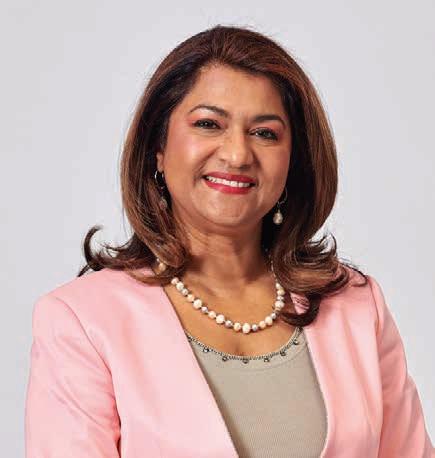
Christine Ramon
“As a single mom, it is essential for me to have a good support structure at home. I have personally met several female leaders at Clicks Group, and it is encouraging to see the majority of the group’s employees are women. The company embraces the UN Women’s Empowerment principles and gender diversity is a fundamental pillar of its values and strategic framework.”

Nina Hind, head of retail finance, Clicks Group
“I lead a team of twenty individuals from different cultures and backgrounds. The team is resourced
The investment in human capital development has contributed to the group maintaining its position as the top employer within the retail sector in South Africa for the seventh consecutive year.
Source: Clicks Group Integrated Annual Report 2023
properly, expectations within the team are clear, and the standards are consistent for everyone. If there is an issue, I encourage people to talk about it and try to deal with it as soon as possible.”
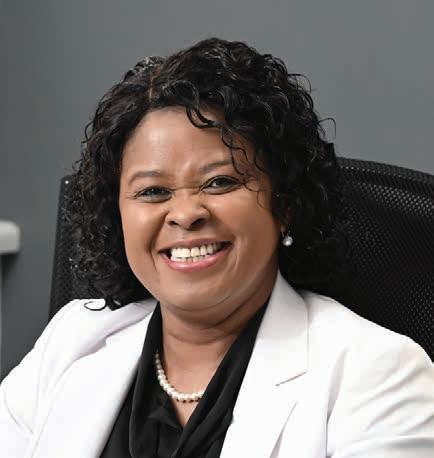
Germinah Nyikana, HR executive, Clicks Group
“Companies can do a number of things to create an environment where employees are fully present, engaged and motivated to deliver. HR’s role in this is to shape a safe and productive environment where employees can show up as themselves. An inclusive environment recognises and celebrates our uniqueness in terms of race, gender, religion, identity, orientation, age, thought, approach and world views.”

Dr Melanie van Rooy, head of marketing, Clicks Group
“I am extremely passionate about growing empowered talent in the marketing team to ensure our organisation has the skills and leadership needed to navigate future challenges and opportunities in a fast-moving, technology-driven landscape. Seeing team members, speci cally young females, thrive and achieve their potential because of my guidance and support is one of the most satisfying aspects of leadership.”
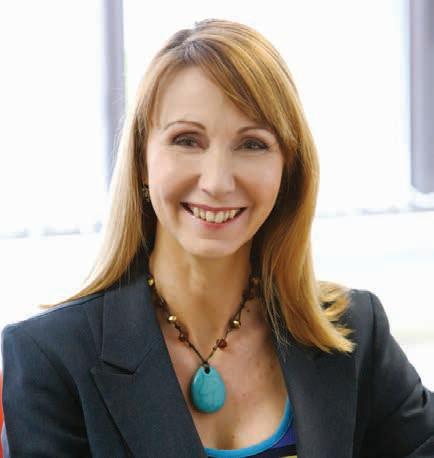
Rachel Wrigglesworth, chief healthcare officer, Clicks Group
“At our diversity, empowerment and inclusivity training, concerns were raised where established procedures existed but were not being communicated or adapted to meet changing environments and needs. By encouraging open communication, I have created an environment where any concerns can be raised and honest feedback can be given.”
“DIVERSITY, EQUITY AND INCLUSION ARE ESSENTIAL COMPONENTS FOR ORGANISATIONS AIMING TO EXCEL, AS THEY FOSTER INNOVATION AND SUSTAINABLE GROWTH.” – TSHWARELO MOUTLANE
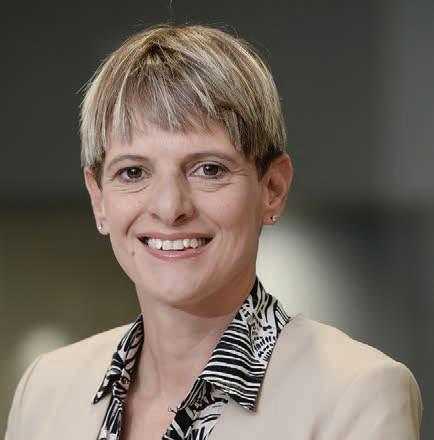
Annalize Barnard, tax executive, Clicks Group
“I allow my team to be proud of their differences and encourage them to respect and embrace those differences instead of discriminating against them. Being able to truly listen to their views and needs, and creating a supportive environment goes a long way to fostering inclusivity.”

Carika Hirschberg, IT solutions executive, Clicks Group
“When I entered the male-dominated IT industry, I didn’t think much of being the only female on the team. However, I soon realised that not everyone shared this
view. At Clicks Group, we have strong and inspirational women in leadership and we believe in a progressive approach towards inclusivity initiatives.”
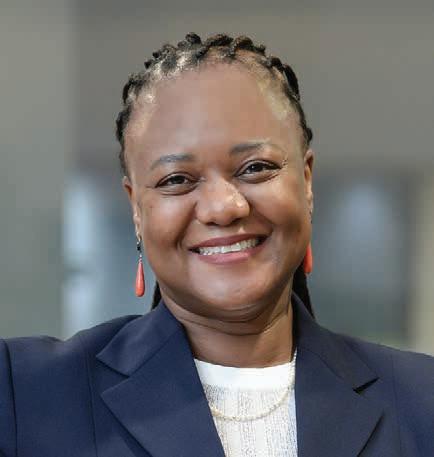
Tshwarelo Moutlane, head of internal audit, Clicks Group
“I make a conscious effort every day to bring my true self to work and not ‘ t the mould’. My ability to do this is driven by a clear sense of purpose and a commitment to stay true to my values and principles. Diversity, equity and inclusion are essential components for organisations aiming to excel as they foster innovation and sustainable growth.”

Karien Boolsen, Private Label executive, Clicks
“Collaborating with a diverse group of entrepreneurs is dynamic and exciting. I’m passionate about developing local entrepreneurs because I believe in the power of community-driven growth. By developing Clicks-branded products with
local partners, we’re creating a legacy that resonates with our customers, enriches our economy and shapes a brighter future for South Africa. It’s about building a better tomorrow, together.”
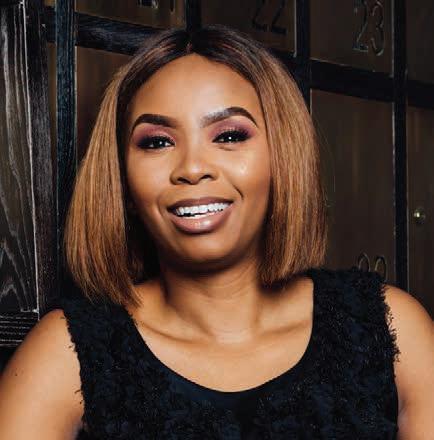
Phathiswa Sefatsa, brand executive, Clicks
“I work under two strong female leaders at Clicks who believe in gender inclusivity. I am allowed to bring my feminine strengths into the boardroom without being judged. I love that we also have he-for-she male supporters in the leadership team. There are a lot of women in my team, and in my position, I get to be an example to them of what is possible in their careers.”

Desree Smithwick, divisional operations executive, Clicks Coastal East
“The primary objectives of empowerment in the workplace revolve around enhancing individual and organisational effectiveness. This begins with me modelling behaviours that empower everyone to thrive and reach their full potential and creating a culture
of inclusivity that values diversity and promotes gender equality. I encourage my team to take this approach to their respective teams.”
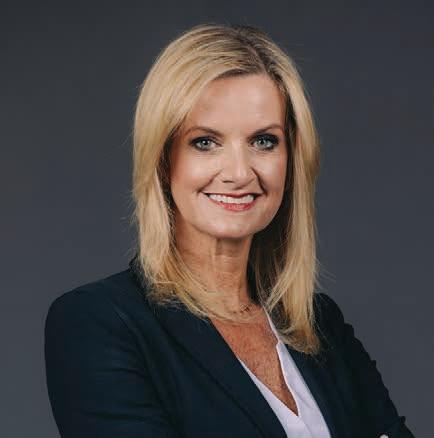
Linda Sinclair, head of Sorbet
“As a leader I am humbled and inspired by how the woman of Sorbet touch lives and make a meaningful difference to so many people every day. Woman empowerment and entrepreneurship is the heart of our business, and we understand the importance of this in building a prosperous future in South Africa. Our goal is to facilitate socio-economic upliftment by providing career, life skills and training opportunities to enable women to thrive in the beauty and grooming industry.”

Palesa Seakamela, general manager – inland, UPD
“Clicks has consistently prioritised the development of its employees, and this
strategy has yielded positive results in terms of a robust succession pipeline. My previous line managers took a personal interest in my growth and often put me in spaces that would challenge me to grow further. These platforms assisted many of us in creating networks that proved essential in reaching our performance objectives.”
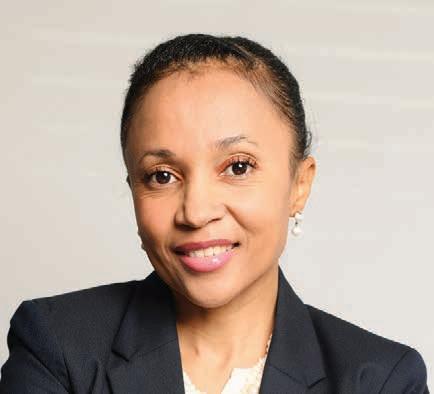
Portia Sibeko, HR executive, UPD
“In recognition of our very diverse heritage, it is important to create an inclusive work environment where people feel valued and supported. HR is a custodian of the ‘people strategy’ and plays a vital role in partnering with the business to create an environment that enables people to realise their full potential. Companies need to invest in employees’ growth and development and provide opportunities for career advancement.”
Source: Clicks Group Integrated Annual Report 2023

For more information: 021 460 1911 service@clicks.co.za www.clicksgroup.co.za
Agriculture is proving fertile ground for female participation in the business arena. As the world of food production enters a new era of high-tech, more natural cultivation practices and reputation management, opportunities perfectly poised for women are ample, writes ELRIZA THERON

The term gender equality is often used without giving much thought to the practical aspects of addressing this very complex and systemic issue, especially when considering how differently they can play out across various sectors of society.
According to the World Economic Forum, the global gender gap was closed by 68.1 per cent in 2022, which sounds impressive. However, it notes
THE AVENUES AVAILABLE TO WOMEN WITH AN INTEREST IN THE SECTOR ARE VAST, RANGING FROM SCIENCE, ACADEMIA AND RESEARCH TO BUSINESS, COMMUNICATIONS AND POLICYMAKING.
that at the current rate of progress, it will still take 132 years to reach full parity. Understandably, there is no one-size- ts-all solution to achieving gender equality across the board. That gender equality is number ve on the list of the United Nations’ 17 Sustainable Development Goals shows the global commitment towards striving for a better, more inclusive and sustainable way of life for all.
As we make headway in achieving these goals, agriculture is proving to be fertile ground for female participation, with an average post-COVID-19 real output growth rate of 2.2 per cent, according to Dr David Fowkes from the South African Reserve Bank, outshining other sectors such as mining and manufacturing.
Agriculture consists of much more than traditional farming. While female farmers are making their mark in the world of agriculture, the avenues available to women with an interest in the sector are vast, ranging from science, academia and research to business, communications and policymaking. As varied as these opportunities are within agriculture, there are de nite similarities in the opinions shared by some of these women when asked what it takes to make their way in what is traditionally considered a “man’s world”.
Michelle Lesur, CEO of Andermatt Madumbi, a company developing biological solutions for farmers, agrees that women are making their mark in numerous areas related to agriculture.

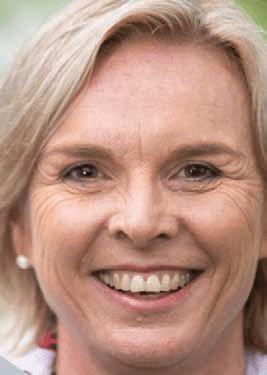
This includes academia, where new biotechnology is being created, in commerce and retail, or on farms at the heart of sustainable food production.
She is inspired to see more and more women coming to the table as valuable contributors to the conversations, offering new ideas and innovative thinking. She is also excited to see the increase in the number of women choosing agriculture as a career and having a powerful impact in their speci c areas of in uence. “We are seeing this a lot in the biologicals industry speci cally, where change on all fronts is
being driven. In my opinion, driving this kind of change across industry requires a female touch, a healthy dose of grit and bold leadership.”
Lindi Botha, chairperson of the Agricultural Writers of South Africa, a body representing communication professionals in the agricultural sector, says that not only has there been an increase in female farmers, but there is also a host of careers within agriculture being followed by women.


“As farming becomes more specialised, opportunities for a diverse range of careers are creating a space into which women can move. This includes public relations specialists, entomologists, IT programmers, spatial planners and human resources,” Botha explains. An interesting opportunity for women that combines the drive towards sustainability with a business mind and can-do attitude is pesticide container collection and recycling. The container management programme of CropLife South Africa ensures that nearly 80 per cent of empty plastic pesticide containers used on farms are collected and recycled. Five years ago there were no female service providers, today there are over 50.
Annelize Crosby, head of legal intelligence at the Agricultural Business Chamber (Agbiz), adds that there have already been signi cant strides, noting that the former minister of agriculture, land reform and rural development, Thoko Didiza, is a woman, and there has also been at least one previous female director general in the department.
“EXPERIENCED WOMEN MUST SUPPORT AND MENTOR YOUNGER WOMEN ENTERING THE FIELD, FOSTERING A CULTURE OF GROWTH AND EMPOWERMENT.”
– DR SAMIRA AMELLAL
Dr Samira Amellal, director general of CropLife Africa Middle East, agrees that female leaders are making their way in agriculture by showing their special skills, viewpoints and strong determination. She adds that education plays a vital role in helping women enter the agricultural world.
“I began my professional career in research, which encouraged me to explore the possibilities of science and innovation in agriculture and agricultural production, aiming to bring prosperity to communities in this sector. I then transitioned into the private sector and industry, hoping to make a difference and contribute to the enhancement of agriculture and the economy in Africa and the Middle East.”


quickly levelled between men and women, and there is no reason for a woman to stand back.”
She says when working as media in a specialised space such as agriculture, no one has all the knowledge, all the time. She recommends asking until the subject matter is clear rather than refraining from asking questions for fear of exposing a knowledge gap. “Not only do you then add to your knowledge, but you can explain it better to your readers.”

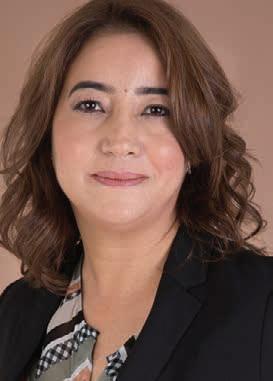
Mentorship from other women in senior positions in the industry is paramount, agree Crosby and Lesur. “All women need mentors and inspirational wing women,” Lesur comments. “Personal mastery programmes, such as Arbinger South Africa, which has bene tted me as a leader, are plentiful. Women in agriculture need to be committed to investing in themselves and their communities continuously. A rising tide lifts all boats.”
The advice from these female leaders to young women wanting to follow suit combines a few key elements, which can be summarised as having self-con dence, passion, perseverance, and putting in the hard work.
“The path to professional success is typically lled with obstacles and may lead us to question our decisions, making it important to persevere. Above all, believe in yourself and your convictions. Women should trust themselves and the process,” advises Dr Amellal.
Botha agrees, reiterating: “If you own your space with con dence (not arrogance), engage sincerely to learn and demonstrate that you can be trusted, the playing eld is
Dr Amellal adds that networking opportunities can signi cantly enhance gender equality. “I believe in encouraging female CEOs to create opportunities and open doors for younger women; everyone deserves a chance to learn and grow. Experienced women must support and mentor younger women entering the eld, fostering a culture of growth and empowerment.”
Agriculture remains a vibrant, growing sector with continuous innovations and technology coming to the fore, ensuring the people of our planet have enough food to eat, while improving production practices to safeguard the environment. Food is a basic human need, which is why most tend to have a strong emotional connection to it, and why women are perfectly positioned to take up the various opportunities the industry has to offer.
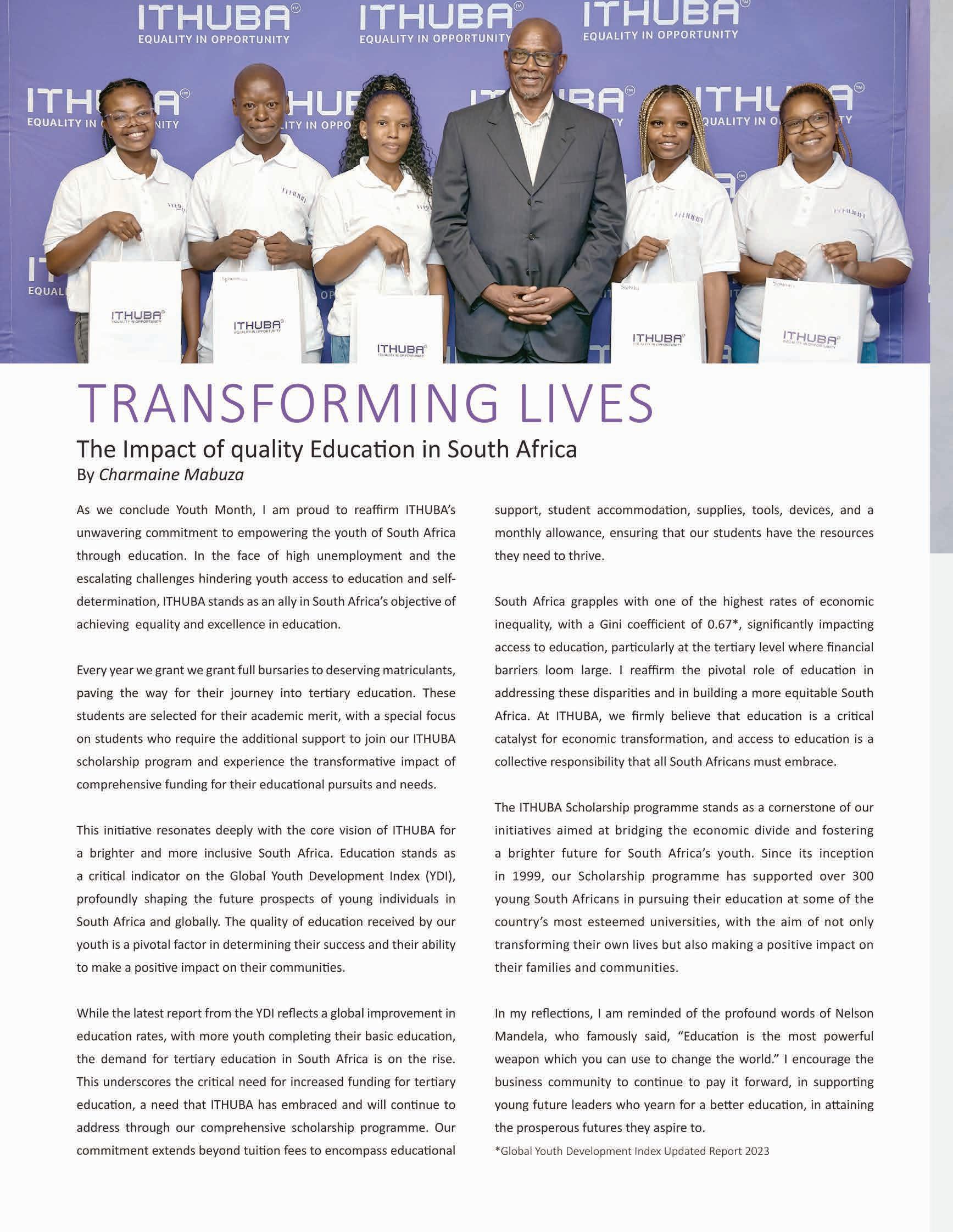

Support for menopausal women is gaining traction in the workplace, largely thanks to concerted efforts to normalise the topic and create understanding. But society is far from being able to rest on its laurels if women are to be truly accommodated and their skills retained.
By LINDI BOTHA

Menopause often coincides with a prime stage in women’s careers. Institutional knowledge is at its peak and maturity and wisdom that come with age make for ideally rounded individuals perfectly poised to lead organisations. Yet, menopause can be crippling, and if support structures are not in place, the organisations that can most bene t from this pool of talent, lose out.
South Africa for the most part does not fare too badly on global scales: a survey done in 2022 by market research company Ipsos shows that around
half of the adults across the world are comfortable discussing menopause with friends (53 per cent global country average). Leading the menopause discussions are Britain (65 per cent), India (65 per cent) and South Africa (63 per cent).
South Africa might rank high in terms of awareness and support, but industry leaders note that creating inclusive conversations on menopause is still a challenge in the corporate world.
Avanthi Parboosing, chief people of cer at Life Healthcare, notes that it is uncommon for human resources
“SUPPORTING WOMEN IN THE WORKPLACE WHO ARE GOING THROUGH MENOPAUSE IS NOT JUST A MATTER OF RESPECT, CARE AND COMPASSION – IT’S A BUSINESS IMPERATIVE.” – AVANTHI PARBOOSING
departments to have menopause policies or programmes. “In the absence of such policies, menopausal individuals will be inclined to conceal their symptoms and to ‘work through’ the challenges or take leave under false pretexts. They may lose con dence in their abilities and experience mental health challenges such as stress, anxiety and depression. All of this is exacerbated if women feel discriminated against as a result of these symptoms. Such conditions often culminate in these staff members – often the most skilled and experienced in the business – leaving their jobs and being lost to the company.”
But the tide is turning and corporate South Africa is being led by outspoken females and initiatives such as MenoMove, spearheading a transformative shift in addressing menopause and the issues women deal with in the corporate world. This includes introducing new cultures, emphasising awareness through education and showing support. Ultimately, MenoMove seeks to break down the stigma surrounding the effects of menopause and foster an environment of empathy and support.
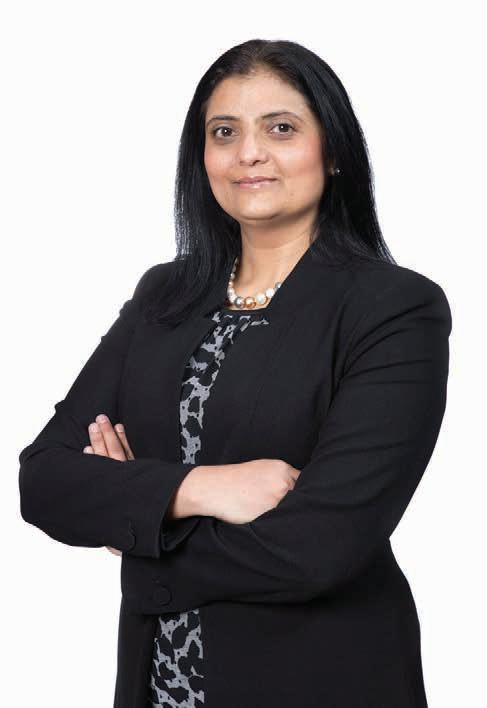
Colleen Larsen, chief executive of Business Engage, the company behind MenoMove, believes the biggest barrier and challenge in dealing with menopause is normalising conversations within the work environment. “There are support structures in place, but these tend to be geared towards the person experiencing symptoms. We need to ensure that more corporates understand that everyone within an organisation is impacted by menopause, not just the women.”
Amelia Beattie, chief executive of Liberty Two Degrees (L2D), believes tackling misinformation about menopause is the rst step to creating a more supportive environment. “People have not been comfortable talking about menopause due to the associated stigma and potential feelings of shame. But once the CEO, as the head of the company, can speak about it, it becomes less scary for others to do the same.”
Part of the conversation that should be taking place at corporate level is the consequences of not supporting menopausal women, since it has a direct effect on the bottom line.
Parboosing points to studies showing that businesses that neglect menopause-related support risk decreased productivity, increased absenteeism and negative effects on both individual wellbeing and organisational culture.
“A survey by the Mayo Clinic in the United States estimated that every year, menopause costs the US economy $1.8-billion in lost work time, and a total of $26.6-billion annually when medical expenses are added.”
Walking the talk, L2D is instituting a roadmap to provide support for menopausal women and is excited about pioneering radical changes as advocates of this topic. This includes reviewing policies to allow for access to healthcare
and information and creating wellness programmes centred on menopause. Practical measures include exibility to allow employees to handle issues such as fatigue, temperature control and hot ashes.
Beattie explains that menopause often coincides with a career stage where individuals are seeking new opportunities, pursuing promotions and transitioning into different roles.
“The physical and emotional challenges associated with menopause may impact their ability to navigate these career transitions successfully. By creating policies that accommodate menopause, companies can enhance employee retention and prevent talented individuals from leaving the organisation prematurely. Menopause is therefore a human issue, not a woman issue, and organisations should strive to create a conducive and supportive workplace.”
Larsen adds a key consideration: speak to menopausal women and ask them to contribute to the solution. “They need to be assured of inclusive actions and protocols, while encouraging them to become ambassadors.”
In the case of menopause, ignorance is not bliss, but it is easy to counter. With the right materials, policies and protocols, such as those provided by MenoMove, there are easy steps to follow from where the wheels will be set in motion for a more understanding, inclusive and productive workplace.
Tackling corporate stigma is but one part of easing the menopause period. The other is ensuring women treat themselves with the same respect and understanding they expect from others.
Parboosing encourages menopausal women to prioritise self-care and health. “You have to look after yourself if you are to be productive and engaged at
“MENOPAUSE IS THEREFORE A HUMAN ISSUE, NOT A WOMAN ISSUE, AND ORGANISATIONS SHOULD STRIVE TO CREATE A CONDUCIVE AND SUPPORTIVE WORKPLACE.” – AMELIA BEATTIE
work. Making healthy lifestyle choices is key – get enough sleep, stay hydrated, exercise regularly – consider taking yoga or meditation classes – and follow a balanced diet.
“Think about the clothes you feel most comfortable in for work and won’t elevate your body’s irregular temperature – dress in layers! Manage your symptoms as best as possible – use phone reminders to stay organised to address brain fog, keep cold water on your desk, ask for a fan to be kept in your work space to address your body’s uctuating temperature.”
Menopause is a time of great change, both physically and emotionally, as the body adjusts to uctuating hormone levels. While menopause can bring about various challenges, it’s also an opportunity for personal growth and self-care, which can make a signi cant difference in how women navigate menopause.
Beattie explains the P.A.U.S.E. approach, which can be applied to help women thrive during menopause. “P is for Prepare, A for Appreciate Your Body, U for Understand What Is Happening, S for Savour the Moments in Between and E for Express Yourself and Ask for What You Need.
“Through this approach women can make menopause a time of personal growth, self-discovery and empowerment. Remember, menopause is not the end, but rather a new beginning. The power to navigate it lies within you.”
Parboosing emphasises that supporting women in the workplace who are going through menopause is not just a matter of respect, care and compassion – it’s a business imperative. “By creating a supportive and safe environment, corporate South Africa will empower female employees to thrive, contribute and succeed, at any stage in their lives.”

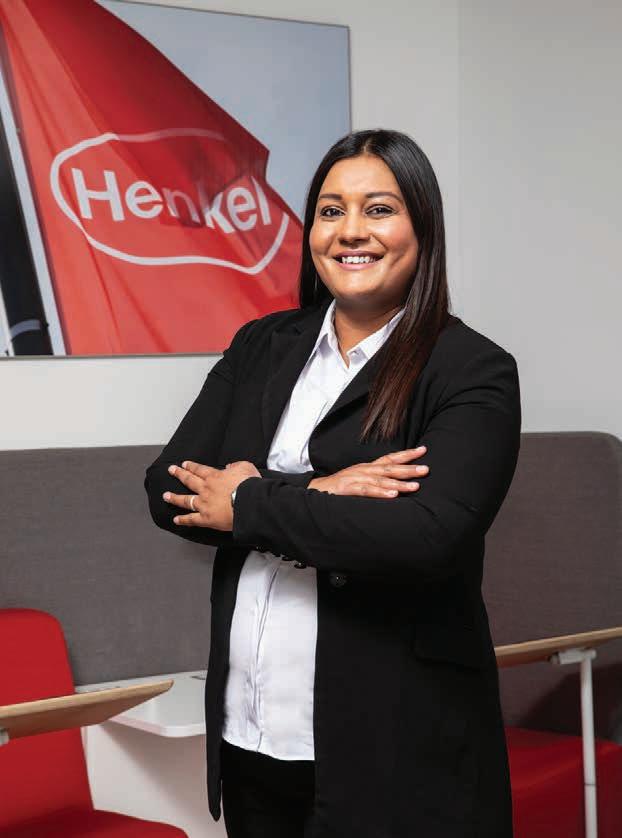
In the ever-evolving eld of industrial adhesives, Natasha Naidoo stands out not just for her technical acumen, but also her unwavering commitment to empowering women. As the head of adhesives industrial at Henkel South Africa, Naidoo brings a refreshing blend of strategic vision, innovation and passion for gender equity to her role.
Naidoo outlines her dynamic role at Henkel, the company’s robust initiatives for fostering diversity and inclusion and the personal journey that fuels her mission to elevate women in leadership.
Naidoo oversees various teams, including the company’s strategic vision division for Adhesive Industrial in South Africa. She emphasises innovation in technologies for industries such as automotive, mining and FMCG packaging. Naidoo also focuses on transformation within the company, highlighting its commitment to B-BBEE (Broad-based Black Economic Empowerment).
“Henkel is at level four, but we aspire to transform more and more,” she says proudly.
Naidoo points out that her drive for gender parity is rooted in the company’s culture.
“Henkel is very inclusive when it comes to gender, especially for women in this type of environment. We have a culture that fosters sharing our voices. This culture is re ected in our mentorship programmes and initiatives aimed at nurturing young talent, particularly women in technical elds,” she says.
Natasha Naidoo tells HAPPY ZONDI how she is using her passion to elevate women in her role as Henkel South Africa’s head of adhesives industrial
The company sponsors bursaries for students at the University of Johannesburg, providing practical skills and exposure to various business aspects. Naidoo plans to enhance this with a mentorship programme for female students.
Naidoo’s previous roles involved enterprise development, particularly for female entrepreneurs. In this role, she identi ed and supported women-owned businesses, and provided them with skills, training and nancial support.
She explains: “We would offer our time – the accounting, nance manager, myself, marketing, and so forth – to give them skill sets to help them in their business.” This experience has equipped her to implement similar initiatives at Henkel.
A notable project from Naidoo’s past is the collaboration with Unjani Clinics, a female-empowered clinic system providing primary healthcare in rural areas. Naidoo’s work involved launching the Access Oxygen Programme, which equipped clinics with oxygen machines, reaching over 500 000 people.
“It’s a female-operated system where nurses become entrepreneurs and run their own practices, serving communities with limited access to healthcare,” she explains.
Her commitment to female empowerment stems from her
“HENKEL IS VERY INCLUSIVE WHEN IT COMES TO GENDER, ESPECIALLY FOR WOMEN IN THIS TYPE OF ENVIRONMENT. WE HAVE A CULTURE THAT FOSTERS SHARING OUR VOICES.” – NATASHA NAIDOO
experiences and the mentorship she received early in her career.
Naidoo recalls: “Growing up as a woman of colour in South Africa was very tough, especially when you’re young and ambitious. I had a very strong mentor at my university who empowered me to dream big.”
Naidoo aims to continue developing female talent at Henkel, particularly in technical and engineering roles.
“Empowering technical and young female engineers with skill sets to work for Henkel and go strongly into the eld is key. This also aligns with Henkel’s broader DEI (diversity, equity and inclusion) strategy, which aims to enhance female representation in executive roles,” Naidoo adds.
Through Naidoo’s strategic initiatives, mentorship programmes and personal dedication, she is driving signi cant progress in nurturing the next generation of female leaders.






In a traditionally male-dominated manufacturing environment, one South African woman is breaking the glass ceiling with her recent appointment, writes HENKEL SOUTH AFRICA
With determination and hard work, Thelma Mamatlepa has become the rst woman in the history of consumer goods and industrial company, Henkel South Africa, to manage its factory in Alrode, Johannesburg.
Mamatlepa, 38, is a graduate of the University of Johannesburg and holds a bachelor’s degree in technology (chemical engineering) and a master’s in engineering management, although this was never her chosen career path.
“My ambition was always to become a medical doctor, but after being put on the waiting list for admission into the then-Medical University of South Africa (Medunsa), I was afraid they would take too long to get back to me, so I went with my second choice of chemical engineering, and the rest is history,” she says.
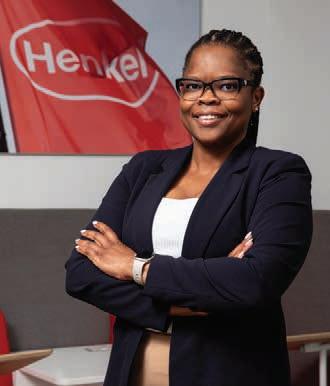
Mamatlepa’s career has spanned 17 years and included roles at African Explosives and Chemical, Air Liquide and Johnson Matthey South Africa. She joined Henkel South Africa in 2022 as a manufacturing manager. In January 2024, she assumed the plant manager position at the company’s Alrode plant.
Re ecting on her elevation to what is ultimately a male-dominated environment, Mamatlepa says the demands on women in the industry are high.
“Being a woman in this industry is extremely demanding as you are constantly required to prove yourself and work harder than your male counterparts,” she says.
“We need more organisations like Henkel South Africa to recognise and empower women. It should be part of more companies’ strategic visions to ensure women are afforded the same opportunities as their male counterparts. Women should be judged on merit and their capacity to do the job, not by an outdated agenda.”
Mamatlepa encourages young girls to believe in themselves as more women blaze their trails in the industry. “Just follow your passion,” she advises. “There is nothing to be afraid of – it can be intimidating to work with men in this industry, but women can coexist with men without compromising their femininity and losing their identity. We do not need to act like men to succeed – we can be ourselves. The industry is slowly transforming; diversity and gender equality are more apparent in our workplaces. Times have changed and the industry has and continues to evolve.”
Diversity, equity and inclusion (DEI) is deeply anchored in Henkel’s strategy and corporate culture. Striving for more gender diversity, the company is committed to reaching gender parity across all management positions by 2025.
Since earning her master’s, Mamatlepa’s learning has never stopped and she is currently studying for an MBA through the University of the Witwatersrand. She has also completed several short management courses through the University of Stellenbosch and is a black-belt-certi ed practitioner of Six Sigma, a lean manufacturing and continuous improvement certi cation that includes classroom studies and eldwork.
Mamatlepa has a people management vision for the plant that is all about continuing to empower staff with the skills they need to carry out their responsibilities. She acknowledges the inevitability that she will be compared to her previous male counterpart.
“My predecessor spent nine years in the position, so it’s challenging to come into an environment where there has been a certain way of doing things for so long. Also, as a woman, you must earn a level of respect that men seem to command automatically. As women, we are often seen as strict, when we are just standing our ground and owning our decisions as managers and leaders.”
Mamatlepa is appreciative of Henkel South Africa’s acknowledgement of her skills and expertise and of its belief in her sense of purpose and ability to take on this position.





Scan to go to the

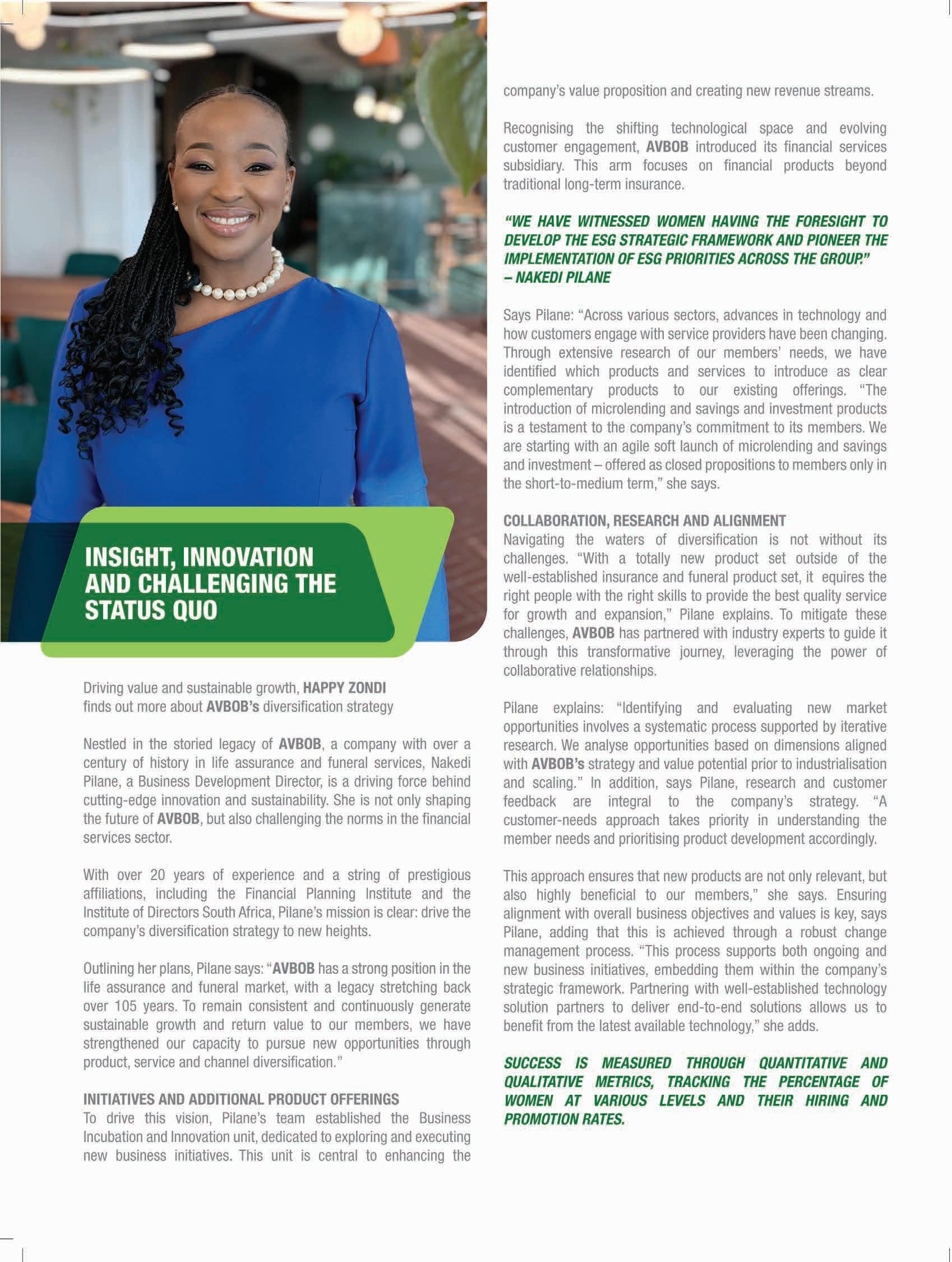


Many companies have made significant strides in promoting women into leadership positions, but gender parity in corporate South Africa is an ongoing challenge. Besides the corporate responsibility, women need to ensure they stand firm if they wish to progress. By DENENE ERASMUS
Women account for 45 per cent of the working population in South Africa, but only 17 per cent of the top executives are female, according to KPMG’s Women in Leadership report. Likewise, women globally are disproportionately concentrated in middle management positions.
Taelo Mojapelo, CEO of energy company bpSA, says corporates must gain a better understanding of why women are getting stuck in the “grey area between middle management and senior leadership”.
“We need to recognise the inherent biases regarding women’s motivations and capacity to lead. Even today, there are unconscious biases regarding people’s expectations of the role of a leader and their expectations of a woman’s role. This disconnect means that, very often, women do not have the same opportunities to progress,” she explains.
It is not enough, she says, to focus only on supporting women to develop the necessary skills and competencies to lead. Equally important is putting in place the right support structures and enabling an environment to nurture women’s leadership potential. “South Africa has developed great legislation to assist in elevating the role of women in corporate, however, the mindset in society is not catching up as quickly, limiting its full potential.”
“SOUTH AFRICA HAS DEVELOPED GREAT LEGISLATION TO ASSIST IN ELEVATING THE ROLE OF WOMEN IN CORPORATE, HOWEVER, THE MINDSET IN SOCIETY IS NOT CATCHING UP AS QUICKLY, LIMITING ITS FULL POTENTIAL.” – TAELO MOJAPELO
Nontobeko Ndhlazi, CFO of black womenowned investment company Wiphold, agrees that even though corporate South Africa has come far in terms of levelling the playing eld for women, barriers still exist.
Progress has been aided by South Africa’s employment equity legislation aimed at ensuring women, speci cally black women, are represented at all levels. But, says Ndhlazi, while legislation compels compliance, real change only happens when decision-makers believe that the meaningful inclusion of women makes business sense.
“The barriers, I feel, are now more subtle and are based on an individual’s usually unacknowledged bias rather than overt sexism, which would generally be frowned upon.”
At the highest level, South Africa’s corporate leadership environment still tends to be somewhat patriarchal. “What seems to be happening is that companies aspire to have some women on board and then they feel accomplished. Then you have a board with mainly men and some women. But is there anything wrong with having mainly women and some men?”
Ndhlazi says she has been lucky to have worked at companies where building female leaders is a recognised and stated organisational imperative, meaning there are systems and policies in place to support the growth of women in the workplace.
At Wiphold, she informs, they are intentional about ensuring young women leaders get the experience and exposure in spaces they would otherwise not generally have access to. “We encourage them to have a voice and an opinion, which builds critical thinking skills and their con dence.”
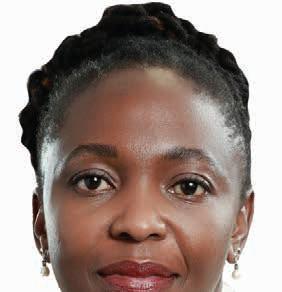




“WHAT SEEMS TO BE HAPPENING IS THAT COMPANIES ASPIRE TO HAVE SOME WOMEN ON BOARD AND THEN THEY FEEL ACCOMPLISHED. THEN YOU HAVE A BOARD WITH MAINLY MEN AND SOME WOMEN.” – NONTOBEKO NDHLAZI
At bpSA, says Mojapelo, efforts to support and nurture female leaders are guided by bp’s global sustainability aims towards improving people’s lives and advancing human rights. This involves greater diversity, equity and inclusion for the company’s global workforce and customers, including through its supplier spend. At bpSA, the drive to empower women within the company’s supply chain saw its spending with entities that were more than 50 per cent owned by black women increase to R4.9-billion in 2022 from R3.3-billion the previous year.
Globally, bp intends to have equal numbers of competent women and men in the top level of leadership by 2025, with 40 per cent of roles at the next leadership level lled by women. The goal is to have women occupying at least half of all group leader roles by 2030.
Likewise, bp in South Africa has been making progress towards these goals. At the end of 2023, 44.5 per cent of bpSA’s employees were women. bpSA was also the rst international oil company in South Africa to appoint a woman CEO in 2017.
“Internally, we are deliberate about equipping women for leadership positions by sponsoring customised leadership
programmes for employees, with an emphasis on women,” says Mojapelo.
“We are cognisant of the fact that women empowerment is an ongoing imperative and we continue to take intentional steps to create opportunities for under-represented groups in the energy sector, including women.”
Beyond the support that can be offered at the company level, both Mojapelo and Ndhlazi say there are some strategies women in leadership roles can use when they face gender bias in the workplace.
The rst, says Ndhlazi, is to always ensure that one is performing at the required level. Another is to build the courage to speak up – whether when sharing your views, making decisions or calling out behaviour. “Being vocally courageous requires that you do your homework to ensure that your words are backed up by facts,” she says.
Mojapelo agrees, saying women must be bold and courageous. “Far too often, we women ‘self-sabotage’ through our limiting beliefs, but stepping into zones of discomfort also indicates to those around us that we are capable.”
Women must also have the courage to know when it is time to move on, she adds.
“If you nd yourself at the bottom of the ladder or lling a meaningless position in a corporate environment that is clearly hostile to promoting women despite calls for intervention, move somewhere else.”
Mojapelo says women should guard against leaving their primary support structure – family – behind in their professional growth journeys. “Having a supportive family has given me the con dence to seize opportunities as they arose and to learn from my mistakes rather than be defeated by them.”
Women in leadership roles, she advises, should make time to support other women. “When my leadership journey started way back in 2002, I quickly realised the importance of nding support structures, as well as making myself available to other women who may need support. I had to remind myself that the best way to earn the licence to lead is to remain authentic and grounded in core values while elevating others.”
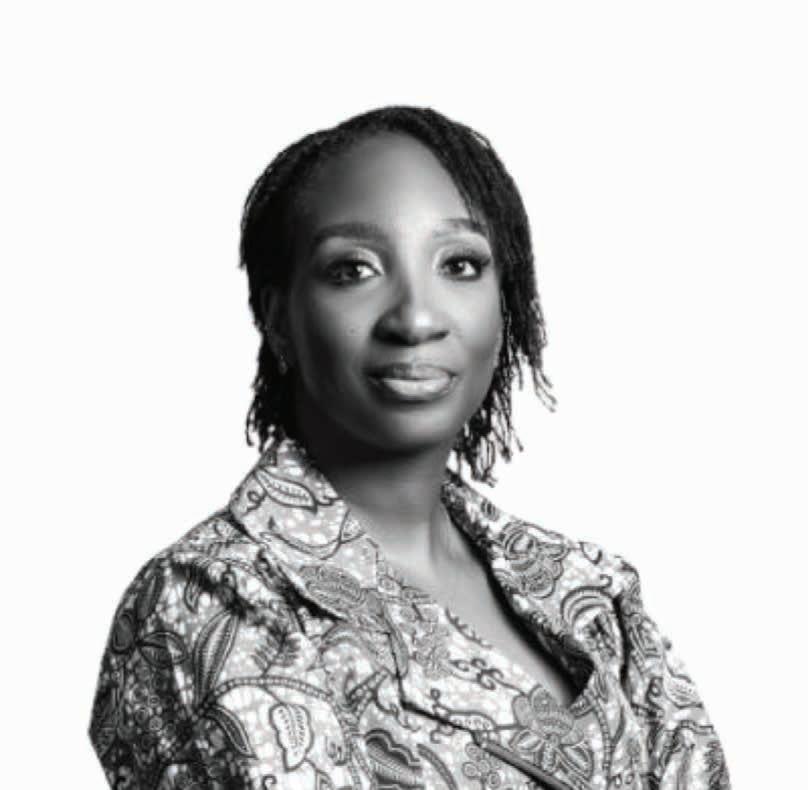


Promoting an inclusive culture and cultivating rewarding experiences are key drivers of FNB’S diversity goals
FNB’s focus on diversity and inclusion begins at the top, with goals and measurable elements incorporated into its strategic plan. So, in terms of gender, around a third of senior managers at FNB and just over half of middle managers are women. And women employees at nonmanagerial level account for around 70 per cent of the workforce.
It’s clear from these statistics that the promotion and empowerment of women into leadership positions is critical to the company. Here we chat to some of the women changing the face of banking at FNB.

Sharon Makhubela’s career is a blend of strategic transitions and diverse experiences. Initially starting in property asset management with a small rm specialising in retail assets, she quickly moved to the oil industry as a property specialist.
“I quickly realised that every property transaction is essentially a nancing transaction,” says Makhubela. It was this realisation that led her to the nance side of property management at FNB where she became an Investment Property Specialist.
“A BCom in nancial accounting enabled me to understand the nance industry,” she explains, adding that her postgraduate diploma in sales
management helped her build and maintain strong client relationships, essential for managing sales teams in high-pressure environments.
“Shopping centres and petrol stations are major contributors to the economy. I was drawn to the complexities of managing these assets, which, in turn, has equipped me with the tools needed for complex business transactions.
“At rst I struggled to close projects because I hadn’t built strong networks and relationships. But once I mastered this, project completion became much smoother,” she adds. Makhubela believes delivering quality service and products quickly helps companies to stand out in the competitive commercial property space.
“I am passionate about women empowerment,” Makhubele says.
“So I use my seat at the table to inspire young women and to demonstrate our capabilities.”
“We simply must actively support and mentor other women in the corporate world so that we begin to rede ne the face of the nancial services sector.”






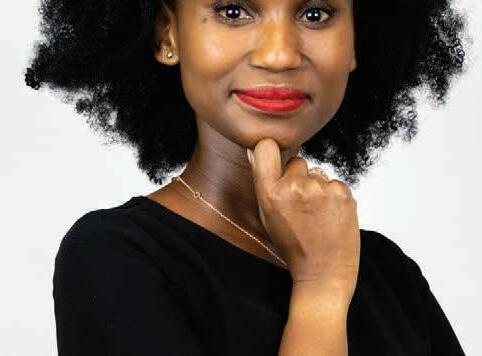
Khantse Radebe’s rise to Asset-based finance CEO for WesBank and FNB Commercial is a story of resilience and vision. Her journey began in high school where she was inspired by the many chartered accountants she read about in widely available printed integrated financial reports. So, she chose to study accountancy at university.
But, when she obtained her MBA, it marked a significant career shift, equipping her to lead cross-functional teams and focus on operational excellence.
“The MBA was my way of building legitimacy and an arsenal to lead a cross-functional team. It further prepared me for diverse roles, from strategy to profit accountability,” she says.
Early in her career, Radebe sought to understand and improve business processes. Her role as a joint venture manager in agriculture finance at WesBank was pivotal. “This opportunity changed my world view. Subsequent roles in client acquisitions and as asset-based finance CFO, honed my leadership skills.”
Her work in sectors such as agriculture, manufacturing, contract mining, and construction has been particularly rewarding. Asset-based finance, she says, stimulates the economy by funding productive assets. Additionally, her team’s innovative financing solutions for small and medium sized enterprises during load-shedding periods further sustained businesses and reduced electricity costs.
“Operational excellence shines through when we strive to give people meaningful work. Empathy for customers and solid relationships set us apart. Our goal is to grow solutions that anchor our customers’ ambitions sustainably,” she adds.
Meloney da Silva’s rise in the nancial sector is a story of passion, persistence and people. Starting straight out of matric as an enthusiastic enquiries clerk at FNB, she quickly discovered her knack for connecting with clients and enhancing their experience.
From these humble beginnings, da Silva navigated through various roles, mastering forex and digital banking, before nding her true calling in leadership. Today, she heads the Gauteng Platinum Business Segment at FNB Commercial, a testament to her unwavering commitment and natural leadership abilities. “Leadership roles always came naturally,” says da Silva, crediting her early mentors for nurturing her potential.
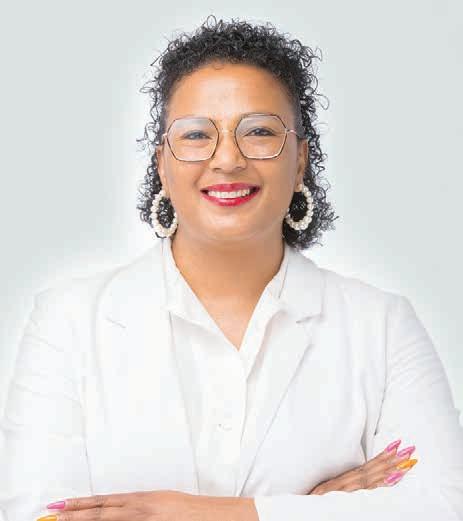
Motivated by a thirst for growth and new challenges, Janis Robson, Head of the Gold Segment at FNB Commercial, has implemented unique strategies to drive growth and support for her clients. In a competitive sector marked by the rise of ntechs, she emphasises the importance of building lasting relationships. “An ef cient on-boarding process not only ensures a smooth transition, but also enriches client interactions,” adds Robson. Her current role focuses on providing access to funding tailored to the speci c needs and challenges of small and medium enterprises (SMEs), unlocking educational
Pursuing a degree in marketing from the University of Pretoria signi cantly shaped her career. “The marketing degree has bene tted me in understanding the power of branding, consumer behaviour and the principles of law,” she says.
Her educational background, combined with her CAIB(SA) designation, also laid a solid foundation for her professional growth.
A key turning point in da Silva’s career was building strong relationships with major stakeholders and executives. “One cannot just stand back and wait for things to happen without being con dent and building one’s own brand within the organisation,” she adds. Her leadership philosophy revolves around open communication, empathy, and recognising team strengths.
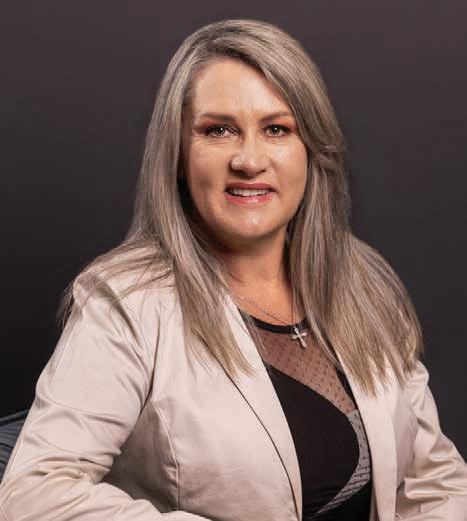
tools to support clients’ growth and enhancing their entrepreneurial skills.
“Every SME has a clearly de ned goal, the individual behind that has a dream,” she says, adding that contributing to their success fuels her passion.
“Being deliberate around nancial inclusion, advocating for youth and women in business and fostering an environment to bring more entrepreneurs on-board” are among her immediate objectives.
Her journey began with a solid decade-long foundation at another major bank, which enriched her understanding of the industry. She says moving to commercial banking further broadened her exposure and, though a demanding role, was an enriching experience.
“The opportunity to contribute to growing a business banking footprint with a leaner corporate structure provided me more chances to learn across functions. Each move, including my transition to one of the largest banks in Africa, was driven by a desire to innovate and experience rst-hand the brand’s strategy of disruption,” she says.
Da Silva envisions a transformative future for banking, driven by technology, digital adoption, cybersecurity, AI and ntech collaboration. Sustainable nance and environmental, social and governance criteria will be prioritised, as well, she says. “Personalised services and maintaining strong client relationships will remain crucial, ensuring agility and innovation for future success,” she concludes.


For more information: www.fnb.co.za
Learnership programmes are an effective platform for skills development, real-work experience and access to employment, writes XOE MFOKAZI, head of operations at TransUnion’s Global
Every year we hear that South African companies are pledging and spending billions of rands investing in training and skills development programmes for our young people. While these programmes teach valuable new skills to tens of thousands of young people, they don’t necessarily lead to jobs. In fact, Stats SA’s latest employment figures suggest things are getting worse, with more than four out of every 10 young South Africans currently being jobless. A more outcome-focused approach is needed. For a growing number of institutions and businesses, the answer lies in youth learnership programmes that lead to direct employment. The World Bank and the International Labour Organisation agree, stating that learnerships can have long-term positive effects on skills development, entrepreneurship and economic development. Stats SA also indicates that youth with work experience outperform those without by a margin of four to one when it comes to securing employment.
At TransUnion’s Global Capability Centre (GCC) Africa, as part of the growing, dynamic global business services (GBS) sector, we offer several opportunities for unemployed young South Africans through our learnership programme.
Since we opened in 2021, we have taken 50 per cent of the nearly 200 learners who completed our 12-month learnership programme into full-time employment.

We’ve seen first-hand the power of giving someone hungry for career growth the opportunity to learn in-demand skills and gain a qualification, all while earning a salary. For example, 26-year-old Ntombikayise Skosana from Tsakane matriculated in 2014 and was then unemployed for seven years, because she couldn’t get a job without having any experience, and she couldn’t get experience without a job. It’s a familiar challenge that millions of our youth are all too familiar with.
Skosana has an inspiring story to tell: she started her learnership at the GCC Africa in November 2021, and today, she’s
a human resources administrator, looking to build on her qualifications and develop a meaningful career.
At the GCC Africa, we have designed learnership programmes aimed at giving participants access to full-time employment at the end of their term. We do so by helping ensure that our learners, in parallel to their training, get real-work experience alongside experienced professionals in credentialing, legal, marketing and cybersecurity, among others, across the 30-plus regions where TransUnion operates. They are also cared for by a dedicated resource that manages their learnership journey.
As someone who started her career as a learner many years ago, I highly recommend learnership programmes as an effective platform for skills development and access to employment.


TransUnion’s Global Capability Centre Africa’s investment in women involves a multifaceted approach that includes education, training and coaching. By SHIVANI RAMSAROOP, head of human resources
At TransUnion’s Global Capability Centre (GCC) Africa, we have learned that it is one thing to drive the promotion of young women to chase targets and another to genuinely upskill, train and mentor them. The latter ensures that the right talent is nurtured for the right opportunities, and when they seize those opportunities, they show up with skill and confidence and they excel.
TransUnion’s GCC Africa has actively increased investment in women through a multifaceted approach that includes education, training and coaching.
Of our 70 per cent women workforce, we have seen a year-on-year increase in women moving up levels, from junior to middle and middle to senior management roles. The results have been phenomenal because our approach begins at the grassroots level with our learnership programme.
SO FORTH TO BE HIRED AT TRANSUNION OR ANY OTHER COMPANY.
The success of our learnership programme is due to the way we’ve designed it. Our head of operations, Xoe Mfokazi, who started her career as a learner, works closely with business and function leads across the 30-plus countries where TransUnion operates to understand where they need support from the GCC Africa teams.
In partnership with human resources and an internal learner support lead, she sources learners to fulfil available
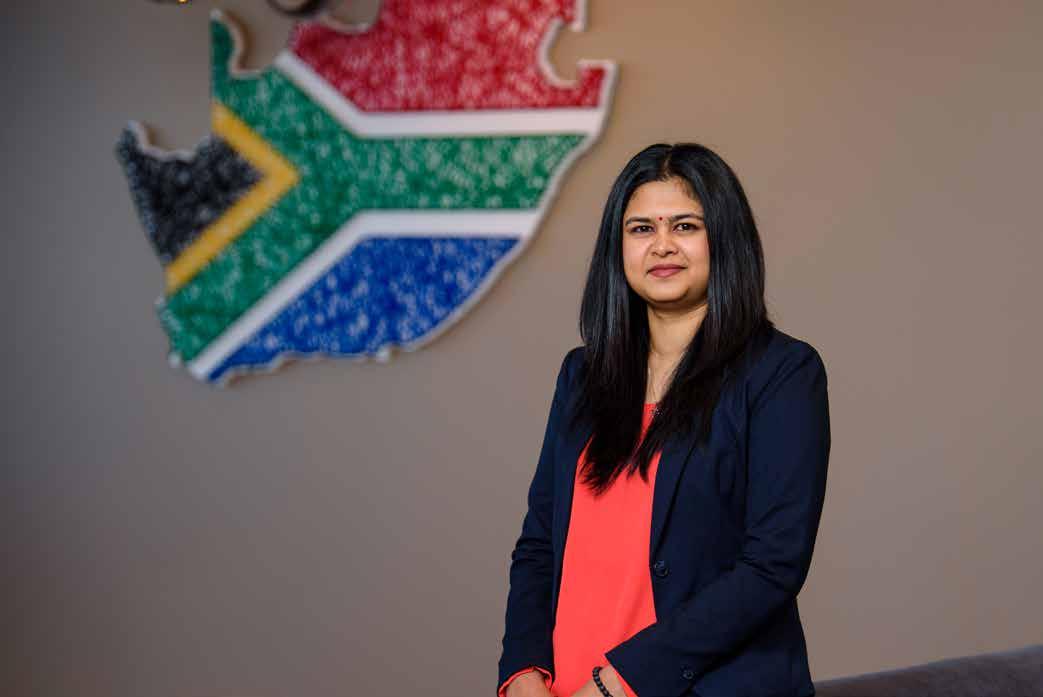
roles. Within the GCC Africa environment, many have the opportunity to work with colleagues in other countries, from the comfort of their own home, adding international depth to their experience.
At the end of the programme, learners will have acquired skills ranging from cybersecurity, marketing, credentialing, and so forth to be hired at TransUnion or any other company. This is our contribution to closing the skills gap, reducing unemployment and creating sustainable futures for women as they begin their career journey.
We nurture women for the right opportunities in the business through mentorship, learning and development and sponsored education and training. This ranges from short courses and diplomas to bachelor’s, MBAs and PhD degrees. Opportunities for ongoing education are available to our employees, no matter their level in the business.
At the GCC Africa, we have created a culture where women can see that talent and hard work are rewarded, and career progression is possible. This is evident in our 86 per cent female leadership team and the success stories of women who have joined and grown within the business. We’ve put clear interventions in place to ensure that we create a level playing field for women in South Africa, enabling them to step into their future leadership roles.


SHOBANA MAIKOO, head of TransUnion’s Global Capability Centre Africa, writes that the organisation’s goal has been to drive inclusion for women, and the benefits are plentiful
Female leadership is an integral part of any Diversity, Equity, Inclusion and Belonging (DEIB) strategy. However, this shouldn’t be a tick-box exercise. An honest, intentional drive for more female leadership results in a genuinely inclusive workplace and positive business impacts. This has been our first-hand experience at TransUnion’s Global Capability Centre (GCC) Africa.
Since the GCC Africa’s inception, our goal has been to drive inclusion for women in a way that is authentic, sustainable and impactful —
WE HAVE CONSISTENTLY PROMOTED WOMEN INTO LEADERSHIP POSITIONS, WHILE SOME YOUNG WOMEN WHO CAME IN AS LEARNERS HAVE NOW GROWN INTO PERMANENT EMPLOYEES WITH SPECIALISED ROLES.
women who came in as learners have now grown into permanent employees with specialised roles.
Our DEIB strategy aligns with the enterprise’s priorities to drive global gender parity in its senior leadership team by 2030, and a year-over-year increase at all levels of management for under-represented groups. Our localised DEIB strategy is deeply intentional with pillars that do not leave women behind on their journey to leadership. Rather than having a top-down approach to decisions that affect women’s growth in the business, our DEIB strategy, which also serves as our employment equity strategy, is designed and
mentorship of women as they grow and find their unique leadership paths. A flexible, remote working environment also ensures, if female employees are engaged in childrearing or other caregiving roles, they can build and progress their careers without the pressure of a traditional, office-bound workplace.
As head of the GCC Africa, I am passionate about how we can stimulate growth in South Africa through job creation, spotting potential in women and supporting them as they grow to become leaders and mentors in the industry. Our hands-on DEIB strategy has not only resulted in sustainable career and leadership opportunities for women, it also benefits our clients through the diverse skills, culture and talent our business offers.

This has resulted in greater

across the business and at all levels of management with 86 per cent of our leadership team being female. I believe
attributed to learning and development initiatives, which nurture potential female leaders, and our ongoing provision
sponsorships and

GRACE KADZERE , head of marketing communications, TransUnion’s Global Capability Centre Africa, writes that the centre enables employees to work from home but still gain global experience
Several South Africans have ambitions to work abroad to get exposed to different business cultures and gain valuable experience. However, not everyone has the resources to travel or move abroad to realise that dream and not everyone gets the opportunity to be hired for a global role in a foreign country.
Nonetheless, we learned during the pandemic that there are sectors where work can be done remotely. This means South Africans have opportunities to get global experience, locally – and TransUnion’s Global Capability Centre (GCC) Africa makes this possible.
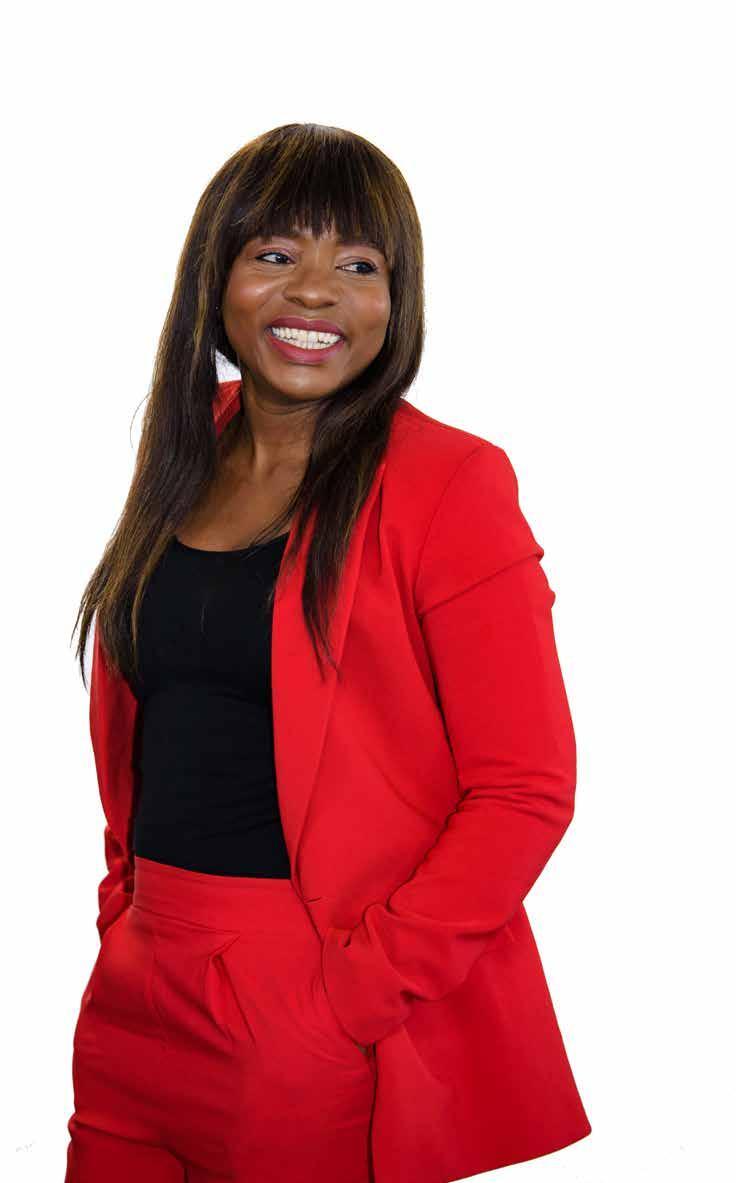
The centre was established in 2021 as part of TransUnion’s global operating model, part of the business’s network of global capability centres along with four in India and one in Costa Rica. The GCC Africa is fully virtual with the business supplying all the necessary equipment to employees, wherever they are in South Africa. This agility means that the business can draw on the best possible talent. The GCC Africa’s 850-plus employees now service TransUnion’s businesses across more than 30 countries, providing extended time zone and language coverage.
The skills and roles included in the GCC Africa are diverse, from PR writers servicing countries as different as Chile and Hong Kong (and many others in between), marketing communicators looking after the South African, Indian and Costa Rican markets to credentialing specialists working across
THE GCC AFRICA IS FULLY VIRTUAL WITH THE BUSINESS SUPPLYING ALL THE NECESSARY EQUIPMENT TO EMPLOYEES, WHEREVER THEY ARE IN SOUTH AFRICA.
Latin America, the Philippines, the United Kingdom and the United States of America to name but a few. There are roles and opportunities for growth and experience working with colleagues across the world.
Currently, all the GCC Africa employees live in South Africa, with just over 70 per cent of them servicing TransUnion operations outside the country. The remote nature of the business offers increased flexibility, making it much easier to work with stakeholders in different countries and across various time zones. Add in the organisation’s matrix structure and we find ourselves immersed in different business cultures and norms, discovering how diverse the world of work is.
Many South Africans need to work and care for relatives or children. A flexible work environment means that they can flex around these needs more easily. Differently-abled people can achieve their potential in their own customised spaces that cater for their needs.
While the GCC Africa benefits from having access to a wider talent pool in South Africa, we are building a culturally healthy work environment that helps our people grow their careers and gain international experience.





ELSABE COETZEE , strategic business acceleration specialist at CommStrat Communication and Ideation, writes that employee engagement is more than a feel-good concept




For women, disengagement can stem from several factors, including limited access to leadership roles, unsatisfactory representation in senior management, lack of recognition, and gender biases. These biases include assumptions about gender roles, unequal opportunities for advancement, pay disparities and a lack of representation in leadership positions. Additionally, work-life balance challenges, often due to societal care burdens, exacerbate the issue, preventing the workplace from fully leveraging women’s unique strengths.
Despite these challenges, females possess unique strengths that can transform their workplace experience. If women intentionally lean into these strengths, they can create a more ful lling professional journey and overcome workplace disengagement.
Consider the case of a leading tech company that implemented a mentorship programme for women, resulting in a 20 per cent increase in female employee engagement and a 15 per cent reduction in turnover rates.
Such successful initiatives can be better understood through Self-Determination Theory (SDT), which emphasises the importance of three fundamental
psychological needs: autonomy, competence and relatedness. When these needs are met, women feel more motivated and engaged. Conversely, when these needs are unmet, engagement is likely to suffer. Therefore, fostering an environment where women have the autonomy to make decisions, the competence to excel in their roles and the relatedness to feel connected to their colleagues is crucial.
Looking at how female strengths can boost engagement, there are seven key takeaways.
1. Embrace discomfort and adaptability. Step outside your comfort zone intentionally and take on new challenges, even if they seem daunting. Growth occurs when stretching beyond what feels familiar.
2. Build positive relationships with emotional intelligence. Understanding your colleagues’ needs and feelings leads to better support systems, ultimately boosting job satisfaction and engagement.
3. Foster inclusivity through collaboration and teamwork. Valuing teamwork and seeking input from others creates an inclusive atmosphere.
FOSTERING AN ENVIRONMENT WHERE WOMEN HAVE THE AUTONOMY TO MAKE DECISIONS, THE COMPETENCE TO EXCEL IN THEIR ROLES AND THE RELATEDNESS TO FEEL CONNECTED TO THEIR COLLEAGUES IS CRUCIAL.


When everyone feels heard, respected and valued, engagement naturally improves. Engaging with diverse teams can further enhance collaborative skills.
4. Master continuous learning and networking. Attend workshops, conferences and webinars regularly. Read widely to stay updated on industry trends. Active participation in networking events and mentorship programmes provides valuable insights, career growth opportunities and emotional support, fostering sustained engagement.
5. Enhance problem-solving with creativity and resilience. Viewing setbacks as opportunities for growth, analysing what went wrong and adapting accordingly builds resilience. Remain innovative in problem-solving approaches.
6. Attention to detail. Precision ensures ef cient processes, reduces stress and increases overall engagement. To elevate this strength, continually re ne organisational skills and seek out responsibilities that challenge your attention to detail.
7. Champion assertiveness and empowerment. Women who advocate for themselves and others drive positive change. Assertiveness in expressing needs, ideas and concerns fosters empowerment and engagement. By amplifying their voices, women contribute to a more inclusive and impactful workplace. By leveraging these strengths, incorporating self-stretching and addressing the fundamental psychological needs outlined in SDT –autonomy, competence and relatedness – we can create a more dynamic, resilient and thriving workplace for all.
MARI JANZEN, group executive, Hollard, is encouraged by the deepening of ESG beyond metrics, emerging to create an intentional dialogue with more diverse stakeholders about the issues currently rendering us stuck
The world in 2024 is on re: global tensions rising, devastating wars, deepening poverty and climate change. We live in a brittle, anxious world. Our future is uncertain and somewhat scary. The things that fuelled our growth and development as a human race to date are the very things that are at the heart of the demise of our future home. The only question for each of us is: What do you and I do today that will make life possible tomorrow?
In my experience, people typically have one of three responses to this question: The rst, “will never happen”, is the response of the denialists, who choose to look the other way or keep busy with anything and everything but that which matters. Examples of this group of people are known to us, think of the many politicians gracing our media with manufactured drama, personal politics and diversionary tactics, utterly silent on anything substantial to the regeneration of our world. This group is close-minded and lacks the curiosity to explore possibilities.
The second response comes from people driven by fear, who say: “This is disastrous, how do I protect myself and those I love from it.” These people circle the wagons of their known competence and conviction to control their fate. At their best, they are risk-aware, competitive and innovative. When threatened, this group can become exploitative and confrontational. At its worst, this group will dehumanise others
OUR JOB IS TO MOVE BEYOND OURSELVES, INCLUDE OTHERS AND RESTORE A WEB OF HEALTHY EXCHANGES THAT SUSTAINS ITSELF.
to the point of justifying violence – they lack empathy with the other, manifesting as closed-hearted.
The third group typically says: “That is bad, let me tell you how to x it.”
This group of people live in a world of concept and abstraction. They lack the will to engage in the messiness of reality. They cling to ideas in an ivory castle, often depressed and disconnected from their true potential to effect transformation.

While completely humanly understandable, each of these responses is inadequate to deal with our dilemma. They lack the perspective, presence and openness to see the rich nuances of the dif culties we need to solve.
In his book, Leading from the Emerging Future , Otto Scharmer describes the shift from ego systems to eco systems as the key to solving our dilemma. Our job is to move
beyond ourselves, include others and restore a web of healthy exchanges that sustains itself. This is possible, but it is messy and requires bravery to become what is necessary to bring life beyond our current ego attachments. It principally asks us to:
• Be open to braving the messiness, disconnects and con icts of our experience.
• Be present to ourselves and others as we step into these spaces –bringing our minds, hearts and wills concurrently online as the “operating system” for navigating this territory.
• Be curious about the perspectives of others – very speci cally of those on the periphery or not included yet.
• Listen, listen and listen to the other, not to defend, not to debate, but to understand what matters to them.
• Change ourselves rst. If we want to change others, we must be willing to change the way we show up rst. We do not think ourselves into new ways of living, we live ourselves into new ways of thinking. Far too often we remain stuck in the comfort of our current ways, professing that we changed our thinking – becoming preachers rather than practitioners. The deepening of environmental, social and governance beyond metrics creates an intentional dialogue with more diverse stakeholders about the issues currently rendering us stuck. This creates a real moment for creativity and innovation. May these moments aggregate and create momentum to stay with the “cracks” as an experience that will teach us the next possibility. May we all sing with Leonard Cohen: “…Ring the bells that still can ring, there is a crack in everything, that is how the light gets in … that is how the light gets in.”
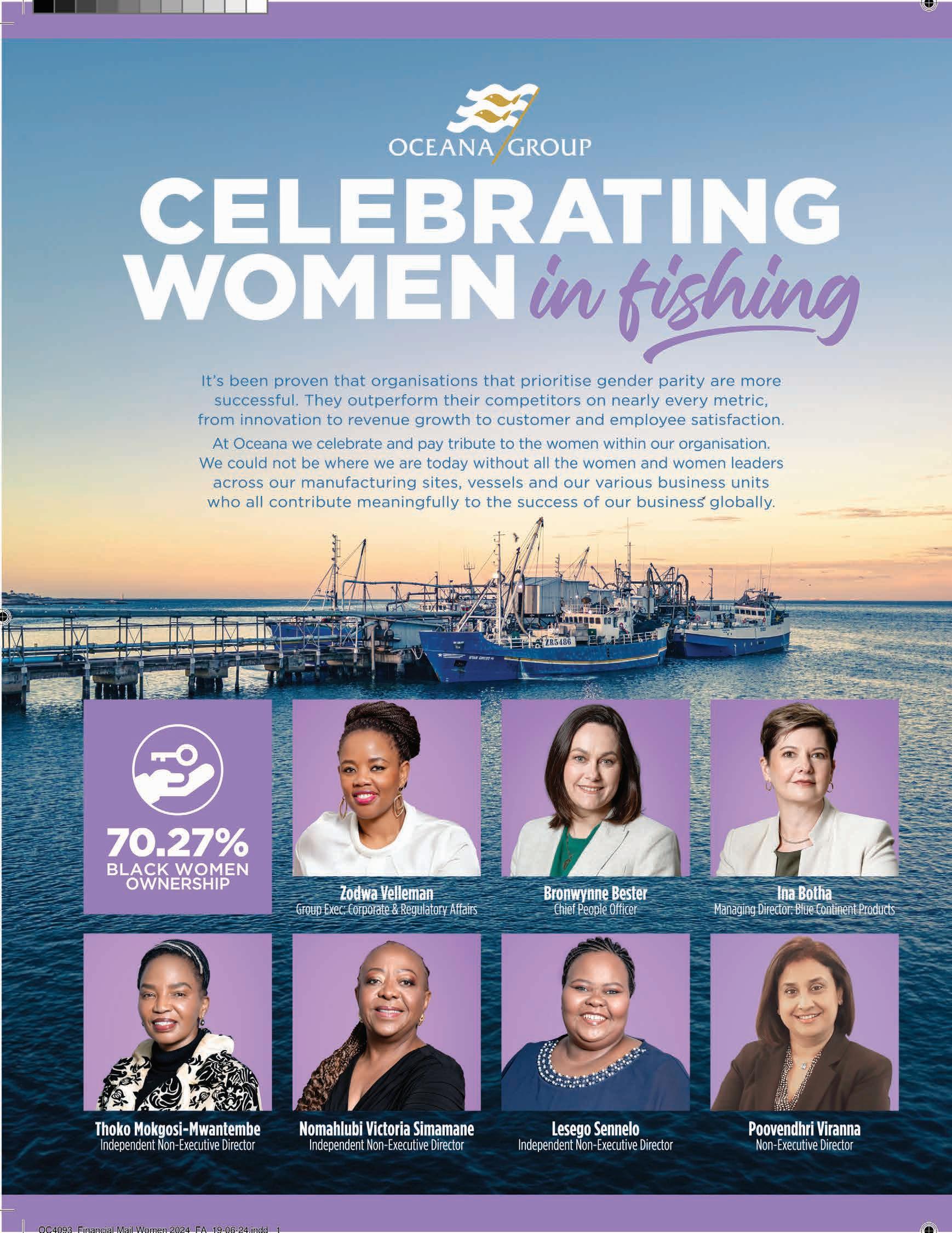
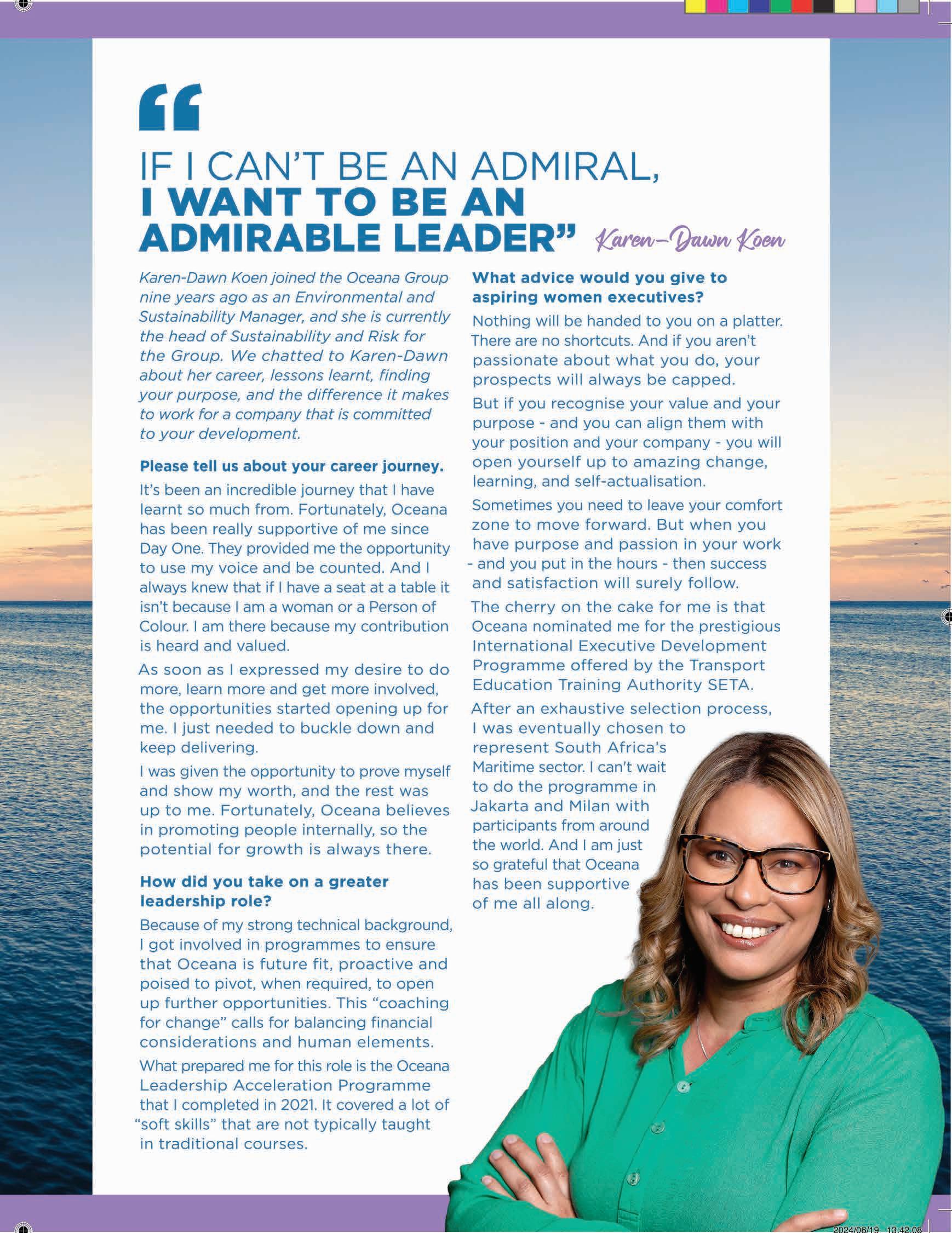
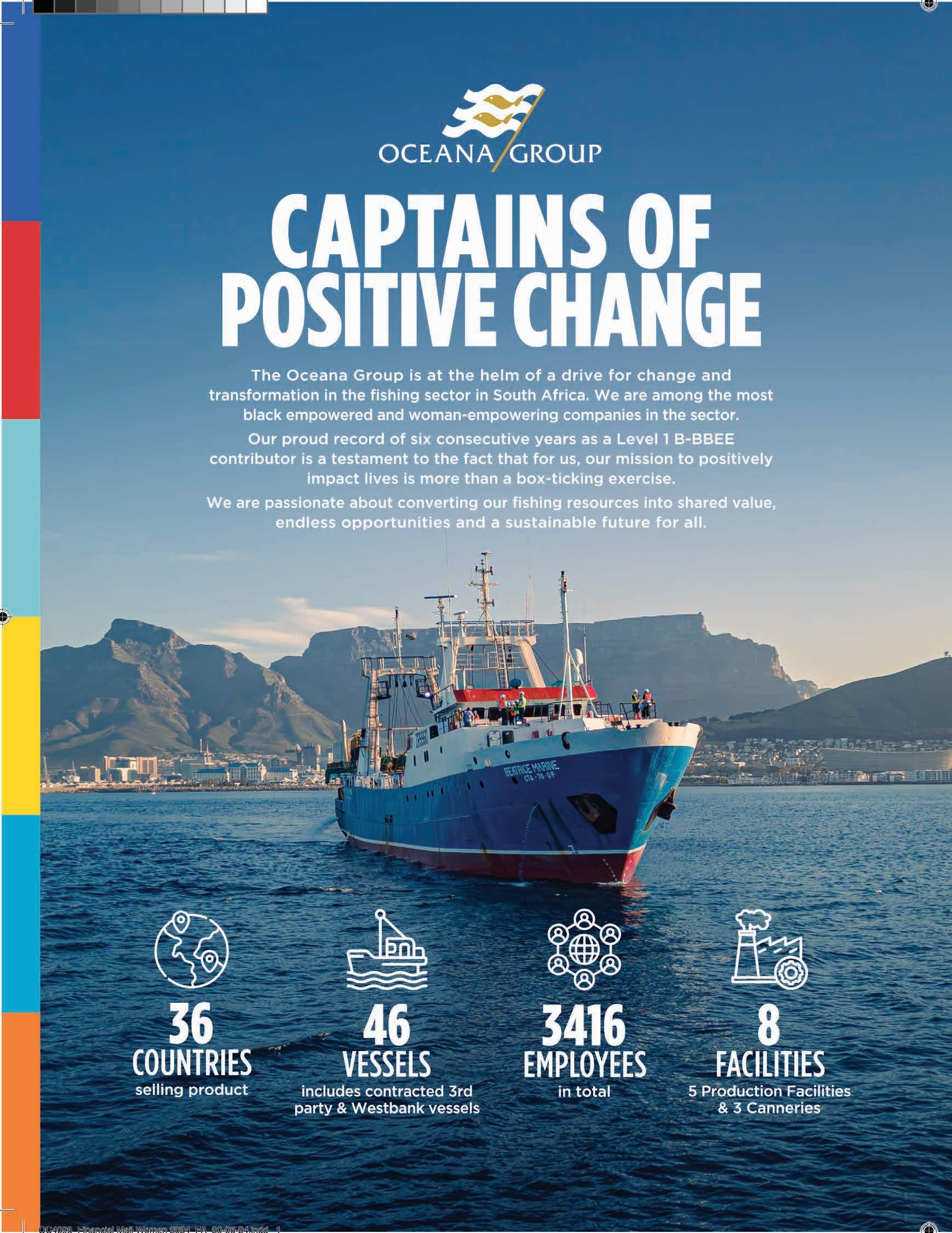

CARL VAN DER RIET, CEO of AVBOB, writes that societal norms and values are constantly evolving, as do the expectations and requirements of workforces
The trend of hybrid/remote working has become a fundamental differentiator for corporates in the battle for talent. Corporates that can offer flexible and convenient working alternatives are at a distinct advantage. The shift in expectations, however, goes far deeper than simply flexible working arrangements.

Research shows that one of the key motivators for employees is to work for a business that has significant purpose and societal impact. Employees look for environments and work cultures that are diverse, inclusive and offer the potential for the individual’s contribution to be recognised and acknowledged. As such, ensuring a diverse, inclusive and gender-positive workforce in business today is important for any organisation.
The business benefits of a diverse workforce are well understood and accepted. The more diverse minds applied or eyes looking at a problem from different angles, the better the quality of the outcome. However, diverse views are meaningless unless the company has a culture that respects inclusion and diversity. On the other hand, a culture that demands conformity will stifle diverse views and the benefit will be lost to business.
AVBOB has always had a culture of respecting diversity. The organisation currently has a 70 per cent female workforce, over 95 per cent of our employees are from previously disadvantaged groups and the business

has a Level 1 B-BBEE (broad-based black economic empowerment) rating. We believe that we have successfully created an environment where everyone feels respected and engaged. The role and contribution of women in AVBOB are central to the achievements and growth of the business.
All employees should have an aligned expectation of how diversity is to be respected, particularly that diversity does not necessarily mean agreeing with everyone or every viewpoint but valuing and respecting different perspectives.
The bottom line of business has long been expanded from profit to inclusion – people and planet. However, in our experience, there is a direct correlation between inclusion and business performance or profitability. For employees to perform at their best, they need to experience real inclusion.
Companies can assist the drive towards a gender-positive workforce by implementing initiatives centred around the important role and contribution of women in the workplace. Perceived marginalisation or unconscious bias against women often comes from a lack of understanding, appreciation and knowledge. Sensitising employees and management to differences, while celebrating and embracing those differences will make everyone understand and respect each other better, cultivating strength and unity.
The value of family is an important cornerstone in AVBOB’s culture. Our
corporate identity as a diverse, caring and inclusive organisation engenders a sense of community and pride in our employees. Our recognition of societal challenges and our commitment to address these resonates with our employees and reinforces the message that the issues impacting our employees outside the workplace are also important to us. Of particular relevance is our investment in supporting anti-gender-based violence initiatives.
Our business growth depends on having the right people with the right skills to provide the best quality service to our customers and embracing a future workforce that is diverse, complex and able to reshape our prospects for success continuously. We are committed to embracing new ways of working in a rapidly changing environment.
We will continue to evolve as society and the needs of our diverse workforce change. AVBOB’s family focus is a golden thread running through the business and will remain central to the core of our culture.
A demonstration of this – a move with the times – is our new office building, offering a modern, fit-for-purpose working environment suited to the future requirements of a diverse, inclusive, gender-positive workforce, with mothers’ rooms, a clinic on the premises and a new, more interactive way of working.
AVBOB believes that part of its responsibility as a corporate citizen is to help ensure a better future for South Africa by contributing to the economic empowerment of all people. Through our unique value proposition, we believe in creating meaningful change.
ALL EMPLOYEES SHOULD HAVE AN ALIGNED EXPECTATION OF HOW DIVERSITY IS TO BE RESPECTED, PARTICULARLY THAT DIVERSITY DOES NOT NECESSARILY MEAN AGREEING WITH EVERYONE OR EVERY VIEWPOINT BUT VALUING AND RESPECTING DIFFERENT PERSPECTIVES.
LATIEFA BEHARDIEN, chief food technology and sustainability officer at Woolworths, shares what three decades of leadership have taught her
Approaching the 30-year mark of my career is a good time to re ect. I was born in District Six and grew up on the Cape Flats. My father was a bus driver and my mother worked in the clothing industry and cared for my siblings and me. It was a humble beginning, and at an early age, I learnt that resilience and hard work would be my path to success.
After school, I studied food technology. I trained in the Woolworths food department as part of my in-service training and worked part-time while completing my studies. Once I graduated in 1995, I was appointed as an assistant microbiologist at the company. Next year, I celebrate 30 years with Woolies.
Today, as chief food technology and sustainability of cer, I’m responsible for food safety, quality and sustainability of the Woolworths Food business, leading a team of 91 talented Woolies employees.
My experiences as a leader have been hugely rewarding, and I’ve learnt many lessons along the way.
The rst lesson is that opportunity comes to those who work hard. Some say that fortune favours the bold, I say that fortune favours the hardest workers. In my early years, I relished taking new challenges, even if they weren’t strictly in my job description. This led me to opportunities to connect with senior leaders in the organisation, and before long, I found myself with a seat at the table.
A consistently good work ethic never goes unnoticed.
The second lesson is never stop learning. Since earning my rst degree, I’ve studied at various universities countrywide. I obtained my master’s degree and a PhD is on the horizon. A healthy curiosity and an enduring quest for knowledge means
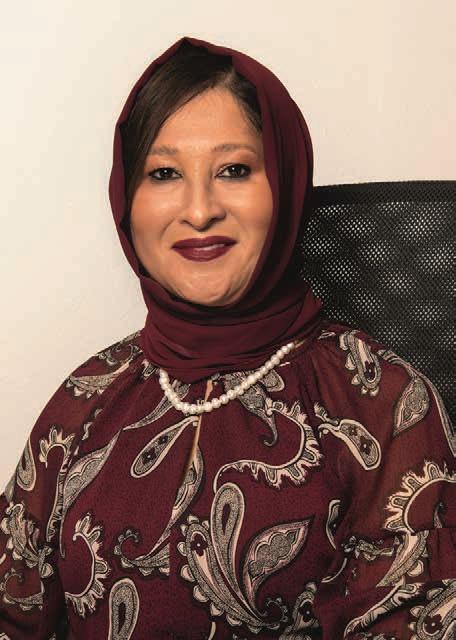
RESILIENCE, THE DRIVE TO KEEP GOING AND THE ABILITY TO BOUNCE BACK ARE VIRTUES WE CAN CULTIVATE EVERY TIME WE ARE FACED WITH A CHALLENGE. IN THAT WAY, A CHALLENGE IS OFTEN AN OPPORTUNITY, TOO.
I’m never bored and am always open to improving a process or learning a new way to achieve the best result. An open mind is an invaluable asset.
The third lesson is to understand that there are no problems, only challenges. Taking the time to understand the unique context of each challenge, and truly getting to the core of why an issue has been presented, means it’s easier to reach a pragmatic solution. Resilience, the drive to keep going and the ability to bounce back are virtues we can cultivate every time we are faced with a challenge. In that way, a challenge is often an opportunity, too.
My fourth lesson is that mediocrity should never be an option. While perfection is unattainable, excellence should always be the standard to strive for. I have a reputation for running a tight ship and setting the bar high – perhaps to a fault. I’m learning to nd a balance and try to let go (because it’s important to keep learning, see lesson one) but I’m passionate about high standards. It costs nothing to apply yourself to the very best of your ability.
The fth lesson is about collaboration. Collaboration is incomplete without connection. In my team of over 90 people, I rely heavily on other people and their insights. I work with incredibly talented and specialist scientists who are authorities in their elds, from the intricacies of regenerative farming to researchers who are experts at forecasting the legislative impacts on our business. But before each of my team is a technologist, an analyst, a scientist or a lawyer, they are a human being. Understanding and appreciating each person’s humanity is the basis for connection. Without it, collaboration runs the risk of being stilted and unproductive.
Above all, leadership has taught me who I am. It has taught me that I can make an impact and that the work I do matters. I’m fortunate to work for a business that shares my values for making a difference and improving the lives of others and the environment.
Leadership can be challenging and good leadership can be extremely challenging. It’s not easy to bear responsibility and carry the weight of expectations, but it has afforded me a purpose and a passion – I wouldn’t change a thing.
CUMMINS INC. has evolved into a global leader in clean energy technology and innovation, serving diverse industries worldwide. Diversity, equity and inclusion power its success and give the company a competitive advantage
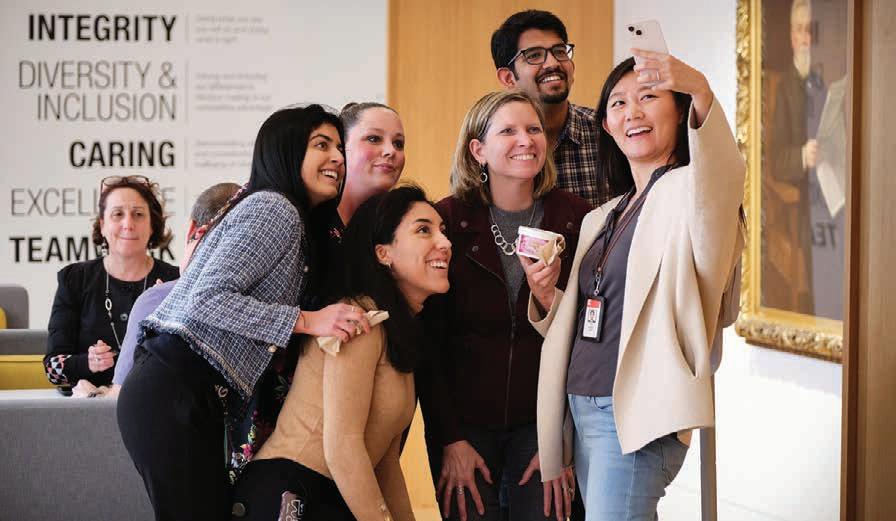
Cummins Inc. is a global power solutions leader in the design, manufacture, distribution and service of a broad portfolio of products with a rich legacy dating back to its founding in 1919. Headquartered in Columbus, Indiana, USA, Cummins serves diverse industries across nearly every corner of the globe. At its core, Cummins is synonymous with innovation, dependability and sustainability. Beyond engines, Cummins is a pioneer in developing advanced technologies, setting benchmarks for industry standards and environmental stewardship.
Climate change is an existential crisis. The world will forever need power. Cummins has made nding solutions to these twin challenges our responsibility. Destination Zero is the
road we’ve paved to a zero-emissions future where we continue to provide the power our world needs.
By harnessing the power of collaboration and technology, research and innovation, Cummins not only meets current market demands, but also anticipates future needs, ensuring a brighter, more sustainable future for generations to come.
Cummins’ global footprint and dedication to excellence make it more than a manufacturer; it is a catalyst for progress, powering industries, communities and ambitions worldwide.
Diversity, equity and inclusion (DEI) power innovation and success among our employees, helps us gain a competitive advantage and
guides our actions and contributions to communities worldwide. Our company, teams and society thrive when everyone is included and respected, and we are unwavering in our commitment to creating a culture where everyone belongs.
“We are courageous in our commitment and united in a relentless desire to see a world, a workplace and culture where all people are embraced for who they are, what they contribute and what they aspire to achieve,” says Jennifer Rumsey, Chair and CEO of Cummins Inc.
With an international workforce of almost 60 000 employees operating in 59 countries, diversity, equity and inclusion have always been critical to our success as a global power leader. Global diversity facts and statistics show that when companies excel at diversity and inclusion, they perform better. Inclusive environments enable us to operate better across cultures, functions and languages to solve the challenges and seize the opportunities of a global customer base and ever-evolving demographic shift. DEI is integral to how we conduct ourselves as a corporate citizen, and we embrace our legacy and responsibility to be a values-driven, positive force in society.

DEI Initiatives at Cummins Inc.
• CumminsPowersWomenisa multimillion-dollarinvestment designedtocreatelarge-scale changeinthelivesofwomenand girlsglobally.Whenwomenand girlshaveequalopportunitiesfor education,skillsdevelopment,pay, childcareandhealthcare,girls, women,familiesandeconomies prosper.Ourpartnershipswith respected,globalnonprofit organisationsthatfocusongender equalityhelpuscreatechange.
• OurCumminsAdvocatingforRacial Equity(CARE)initiativeintheUnited Statesaimstodismantleinstitutional racismwhilecreatingsystemic equity.TheCAREinitiativeadvocates forracialequityforblackpeoplein
policereform,criminal justice,socialjusticeand economicempowerment.

• TheGlobalDisabilityInclusion Strategyaimstocreateaccessible, inclusiveworkplacesand communitieswherepeoplewith disabilities are enabledtofulfil theirpotential.Througheducation, strategicpartnershipsandfinancial investmenttowardsimprovingthe accessibilityofourtechnologyand facilities – toname a few – westrive tobecomeanemployerofchoice forpeoplewithdisabilitiesandto workinourcommunitiestoreduce barrierstoemploymentforpeople withdisabilities.
• LGBTQ+SafeLeaderTrainingis a globalskill-buildingprogramme
Cummins South Africa’s apprenticeship programme stands as a beacon of inclusivity and excellence in vocational training, exemplifying the company’s commitment to fostering a diverse workforce reflective of South Africa’s demographics.
Since March 2019, the representation of female apprentices has surged from 45 per cent to an impressive 66 per cent by March 2024. This growth underscores Cummins’ dedication to gender diversity in traditionally male-dominated fields, setting a positive industry standard.
The programme’s demographic breakdown is equally noteworthy, with 53 per cent African, 23 per cent coloured, 16 per cent Indian, and 8 per cent white apprentices, creating a richly diverse learning environment that promotes inclusion and mutual respect.
The programme will be expanded to accommodate 45 apprentices by 2025, including placements in mining
environments. This expansion not only supports professional growth, but also sustains local industries.
Academic achievements have been outstanding as have retention rates, with 80 per cent of the 2019 cohort and 60 per cent of the 2021 cohort retained as permanent employees within Cummins.
Promotions within the programme highlight its impact on career progression, including advancements to roles such as service information technical writers and field service technicians within PowerGen. This demonstrates Cummins’ ability to nurture talent and support long-term career paths.
Innovation continues with the introduction of marine apprenticeships in 2023, reflecting Cummins’ adaptability and commitment to meeting diverse industry needs.
The programme collaborates closely with Sedibeng TVET College through the Cummins TEC Programme, ensuring a pipeline of
createdanddeliveredbythe CumminsPrideEmployeeResource Groupforover a decade.The programmeisavailabletoour employeesandsharedwithexternal organisationsthroughprofessional networksandbusinesspartnerships. Thetrainingincludesanuanced overviewofhowtoeffectively addresstopicsthatcanconsciously orunconsciouslymanifestbiasin theworkplaceinvolvingthelesbian, gay,bisexual,transgender,queer andallotheridentitiesthatspan thesexualorientationandgender identity/expressiondimensionof diversity(LGBTQ+).

skilled talent and supporting local educational institutions.
Cummins South Africa’s apprenticeship programme not only trains, but also builds careers, fosters diversity and prepares apprentices for success in the workplace through a comprehensive soft skills curriculum.
As Cummins continues to expand and innovate, its apprenticeship programme sets a national standard for vocational training, emphasising empowerment, diversity and industry excellence.
Cummins South Africa’s apprenticeship programme is a testament to the company’s dedication to diversity, training excellence and nurturing talent. It serves as a model for corporate investment in skills development, contributing to individual success and economic growth alike.


Pearl Mashabane, diversity, equity and inclusion (DEI) leader at Cummins Africa and Middle East (AME) region, is deeply committed to promoting cultural diplomacy and equality and aspires to leverage technology and education for the betterment of humanity. She shares more about her role.
“WE ARE ALSO INTENTIONAL IN ENSURING WE USE INCLUSIVE LANGUAGES TO ENSURE EQUITABLE AND OPTIMAL PARTICIPATION OF OUR BUSINESS PRACTICES.” – PEARL MASHABANE
Many organisations have adopted a B”, belonging, would you consider this?
I think of belonging as our secret recipe and an integral pillar of our business success in the diverse global market in which we operate. It fosters a sense of acceptance and connection that allows everyone to thrive. For us, belonging is woven into our holistic and intentional efforts to build an inclusive culture across our people value chain.
Thus, while it may not be explicitly stated, belonging is expressed in both
our DEIC (diversity, equality, inclusion and culture) and other organisational values such as instilling a caring and ethical culture for our employees, customers and communities.
A sense of belonging is also created by focusing on building the right work environment where leaders are equipped to cultivate spaces where all employees feel safe, welcomed and empowered to bring their authentic selves to work.
Do you feel that diversity efforts within organisations are focusing too much on individual identity and not enough on team cohesion?
In my experience, individual identity and team cohesion are two sides of the same coin in building effective and impactful DEIC efforts in the workplace. Individual identity represents the unique characteristics, experiences and
Pearl Mashabane is a prominent leader in diversity, equity and inclusion (DEI) at Cummins Africa and Middle East. Born in Limpopo province, South Africa, she holds a postgraduate degree in psychology from the University of Pretoria and various executive education certifications.
Pearl’s career began as a senior counsellor for voluntary counselling and testing/HIV programmes at the Society for Family Health. She later served as the assistant director for employee health and wellness at the national Department of Public Service Administration (DPSA), where she also acted as a gender focal point. Her experience includes roles such as employee wellness and diversity manager at DPSA, a diversity and inclusion consultant at Inclusion South Africa and various DEI management positions in the financial and higher education services sectors before joining Cummins.
Pearl credits her mother as the most influential person in her life, instilling firm principles and challenging sexist cultural norms. She is deeply committed to promoting cultural diplomacy and equality and aspires to leverage technology and education for the betterment of humanity.
backgrounds of each team member, while team cohesion refers to the bond of understanding, trust and collaboration within a team. Strong team cohesion is enabled by building a safe environment where there is acknowledgement and respect for individual identities, thus fostering inclusion and performance.
So, while it may appear that organisations are focusing on individual identity, it is typically done as part of an intercultural awareness and learning journey ensuring the valuing of differences for dimensions of diversities present in teams and stakeholder communities.
Operating globally, what are the similarities or contrasts in Cummins’ AME diversity, equity, inclusion and culture (DEIC) journeys?
AME is an exciting space to operate in because of the vast diversities and unique cultural contexts of the countries in these regions. This presents a wonderful opportunity for cross-cultural learning and a deep dive into a marketplace of ideas, world views and experiences.
There are certainly similarities and contrasts in the diversity journeys between the regions.
The rst noticeable similarities are that countries in AME regions are still grappling with colonial legacies that in uence their socioeconomic dynamics and the need for building inclusive societies.
Both regions also have young populations, which necessitates intentional engagement and empowerment of the youth for driving critical socioeconomic development. Another key similarity is around noticeable albeit slow progress in advancing gender equality.
The contrasts are that countries in this region are at different developmental trajectories. There are different political, economic, regulatory, religious and cultural diversities and contexts, which are essential for us to consider when developing our DEIC strategies and
initiatives for different countries within the Africa and Middle East region.
How do you see Cummins making DEIC tangible for employees?
DEIC is one of the core values of our organisation. It is supported by leaders who have crafted a compelling vision for DEIC and who ensure concrete strategic actions and initiatives that demonstrate our commitment to these values.
All employees are expected to be co-creators of a culture of inclusion, allowing collective responsibility for DEIC. DEIC is also part of our human resources strategy, woven into all people processes and policies such as hiring, development, promotions, decision-making processes and our internal and external stakeholder engagements.
Employees are tangibly involved as leaders and members of various employee resource groups to advance diversity and inclusion efforts. These various actions ensure DEIC is not merely symbolic but a lived experience in our organisation.
What are the primary cultural nuances you consider in the markets you impact?
When operating in global markets, developing a global mindset is key to driving business and people success because it ensures we are aware of and respect the various cultures we work with.
Some considerations we make in building relationships and trust with our global partners include respect for hierarchical structures, communication styles, religious and cultural practices, business etiquette and time orientation. We are also intentional in ensuring we use inclusive languages to ensure equitable and optimal participation in our business practices.
These factors promote understanding and respect, mitigate risks and con icts and enable us to harness the collective wisdom and ideas needed to develop innovative solutions and products.
“All employees are expected to be co-creators of a culture of inclusion, allowing collective responsibility for DEIC.” – Pearl Mashabane
How do you see the DEIC landscape shifting over the coming years?
DEIC is an exciting and dynamic eld that is always evolving to meet contextual developments. This allows us to be agile and continue evolving towards more comprehensive and relevant strategies to serve the needs of our diverse stakeholders.
Presently, we are seeing a shift towards more emphasis on intersectionality and understanding the unique challenges people from multiple marginalised identities face. There is also a strong emphasis on the catalytic role of inclusive leadership for building psychological safety and enabling environments to ensure all people can show up authentically and fully in the workplace.
Other key developments in the eld include further integration of technologies to track and analyse DEIC efforts and integrating sustainability and climate strategies to enhance social equity and environmental stewardship where companies operate.



